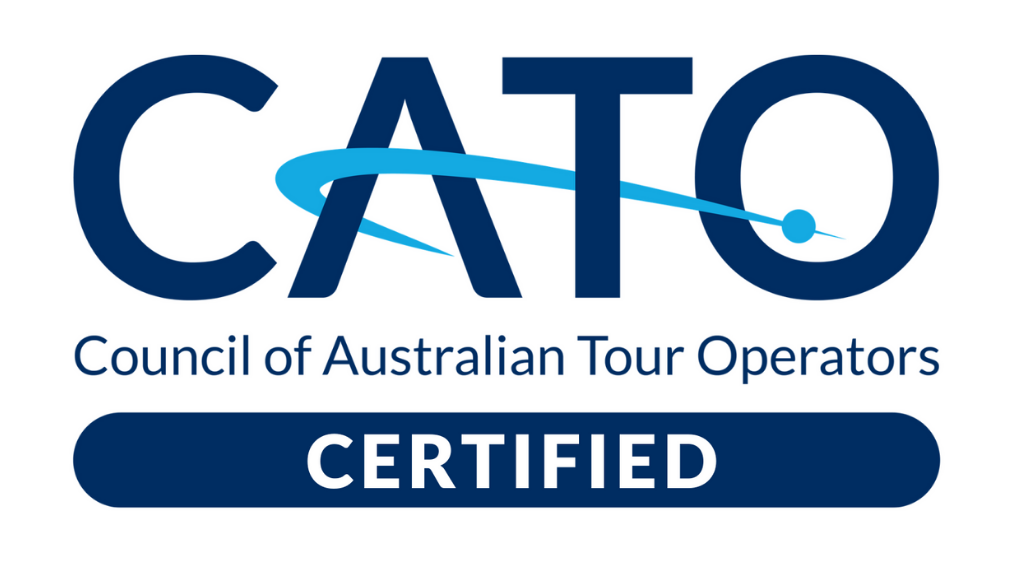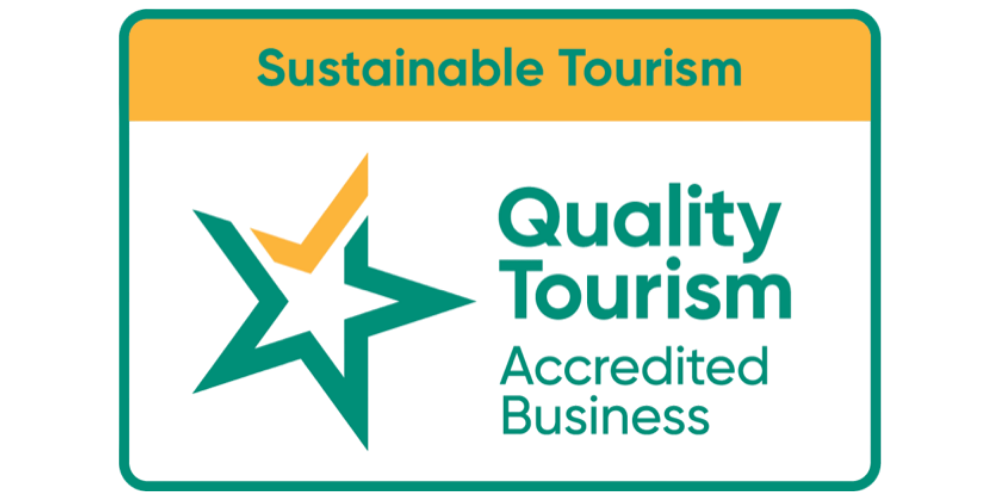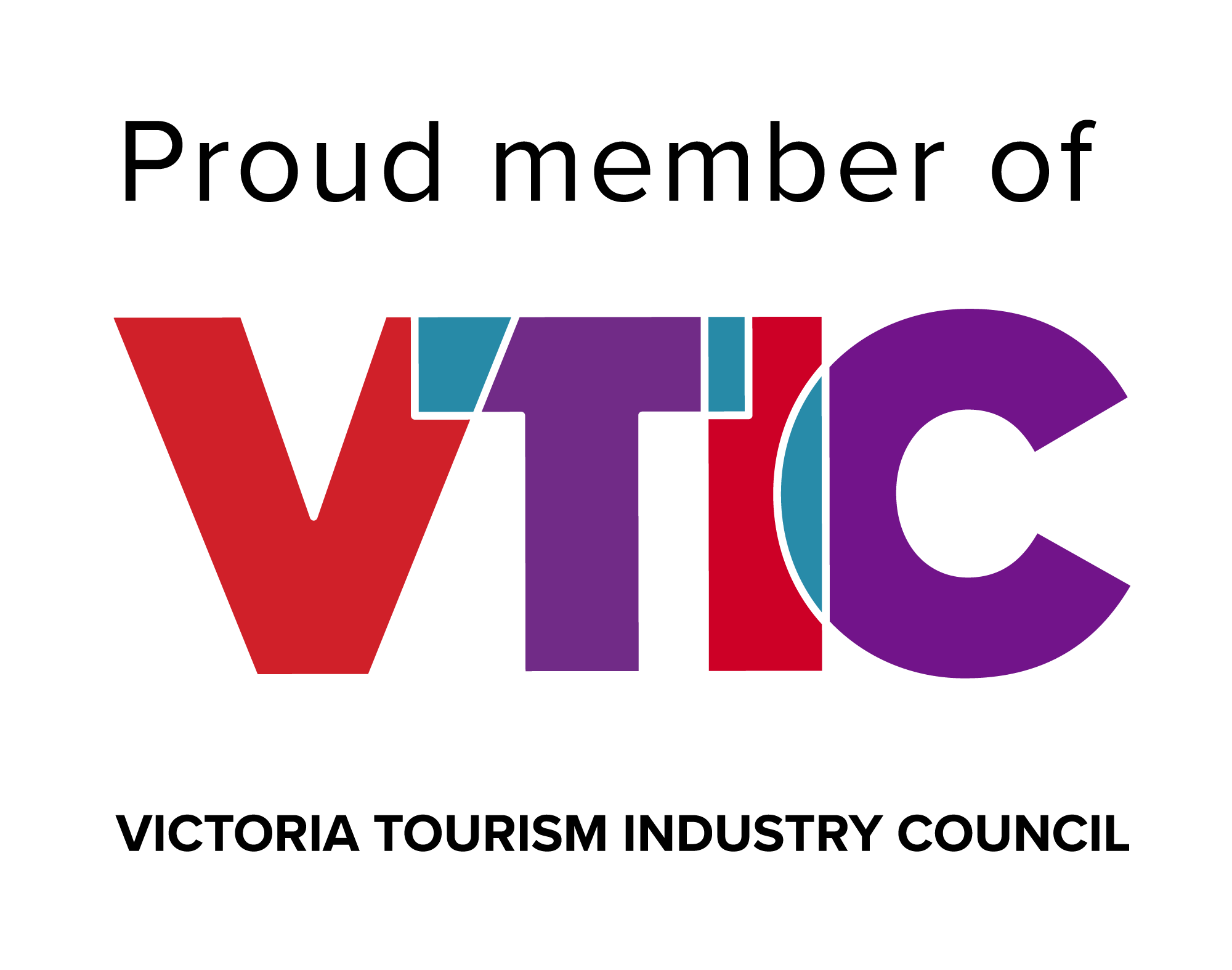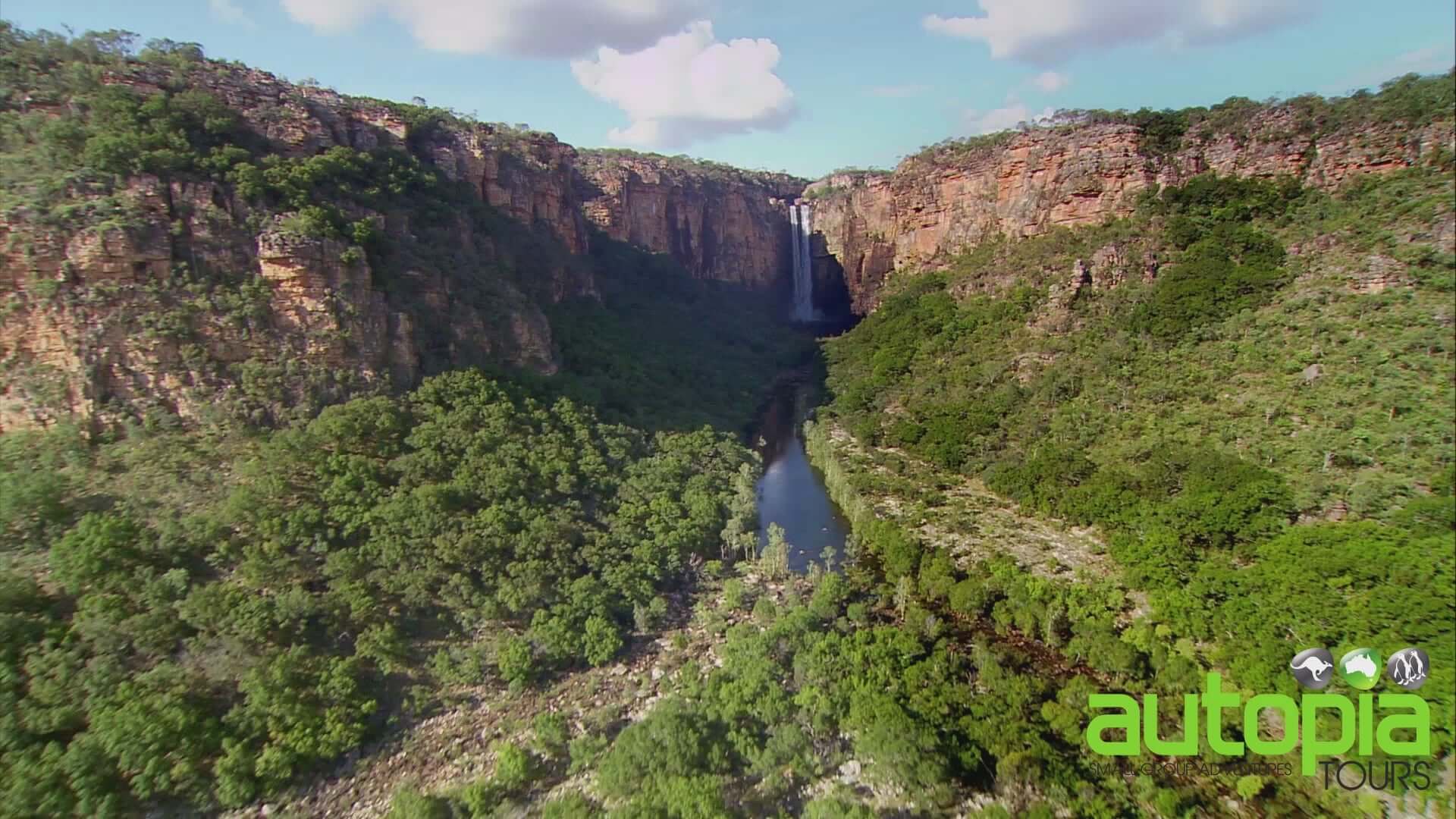
Kakadu Highlights with Katherine Gorge | 4 Days in Comfort Stays
📍 Darwin, Aus | Guided | All Inclusive ✅
Kakadu’s ancient rock art and wide, wild wetlands meet Nitmiluk’s soaring sandstone on this 4-day small-group journey—comfortable stays each night.
Darwin > Darwin
Easy
Hotel
200% CO₂ Offset
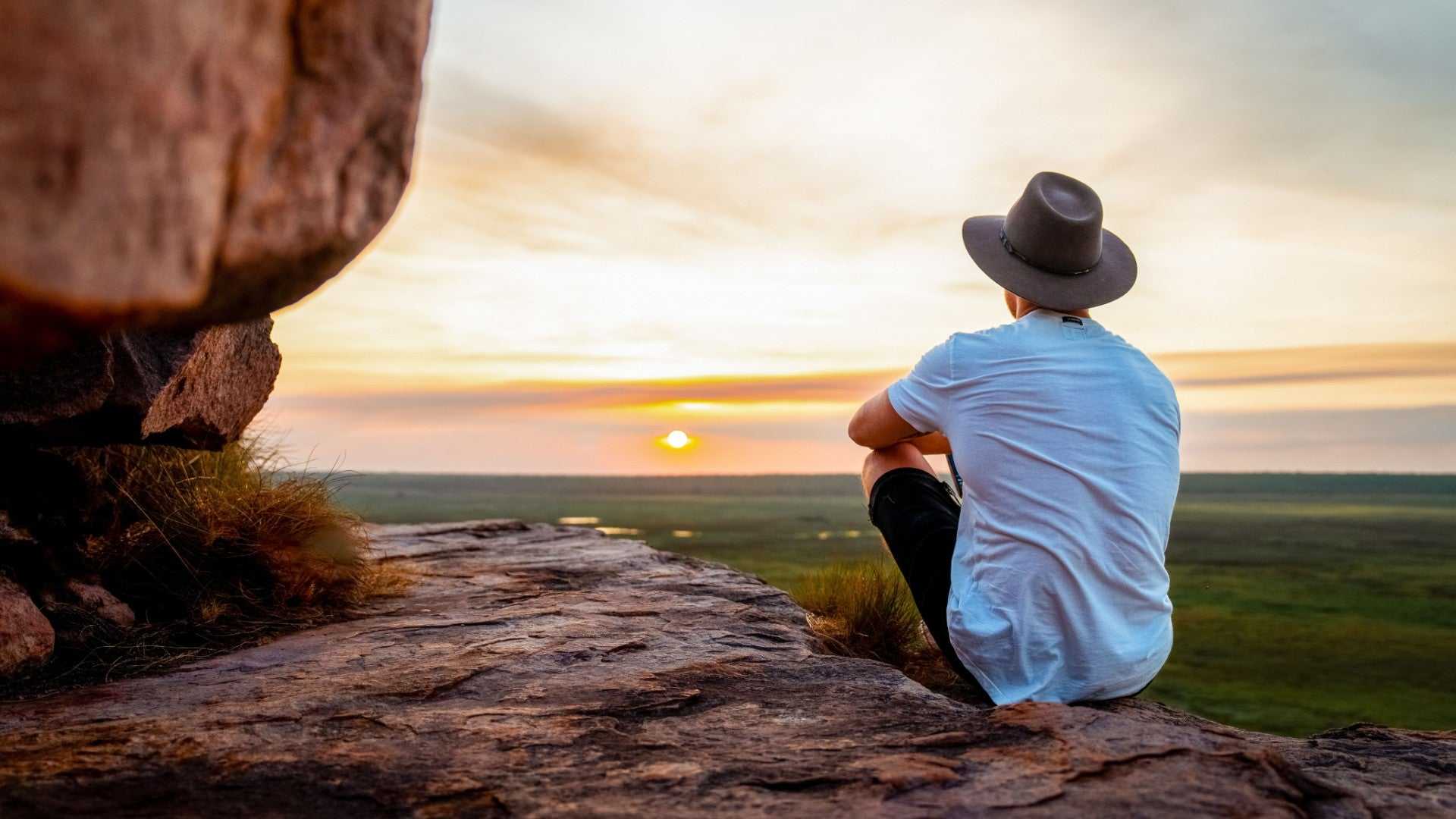
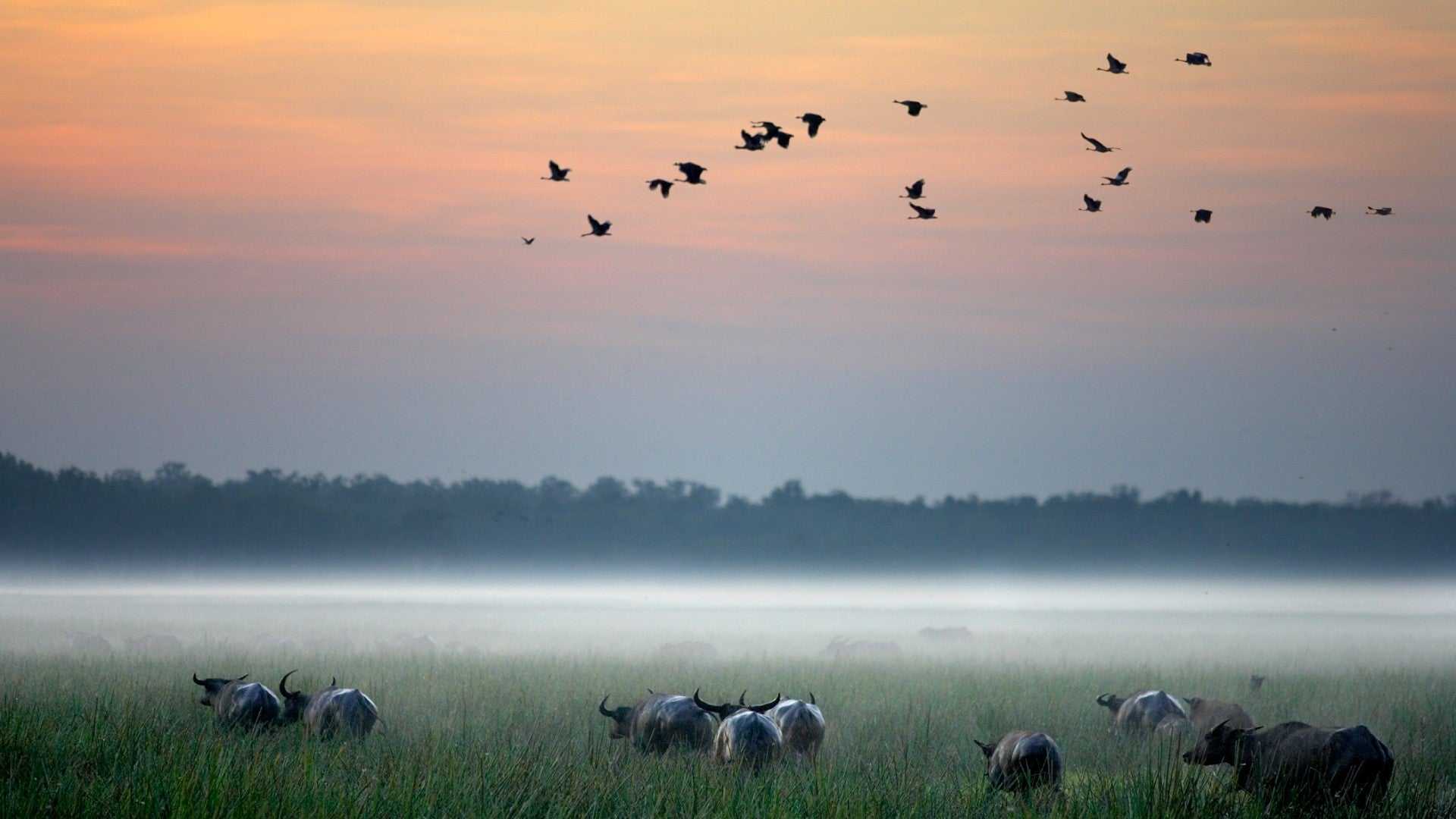
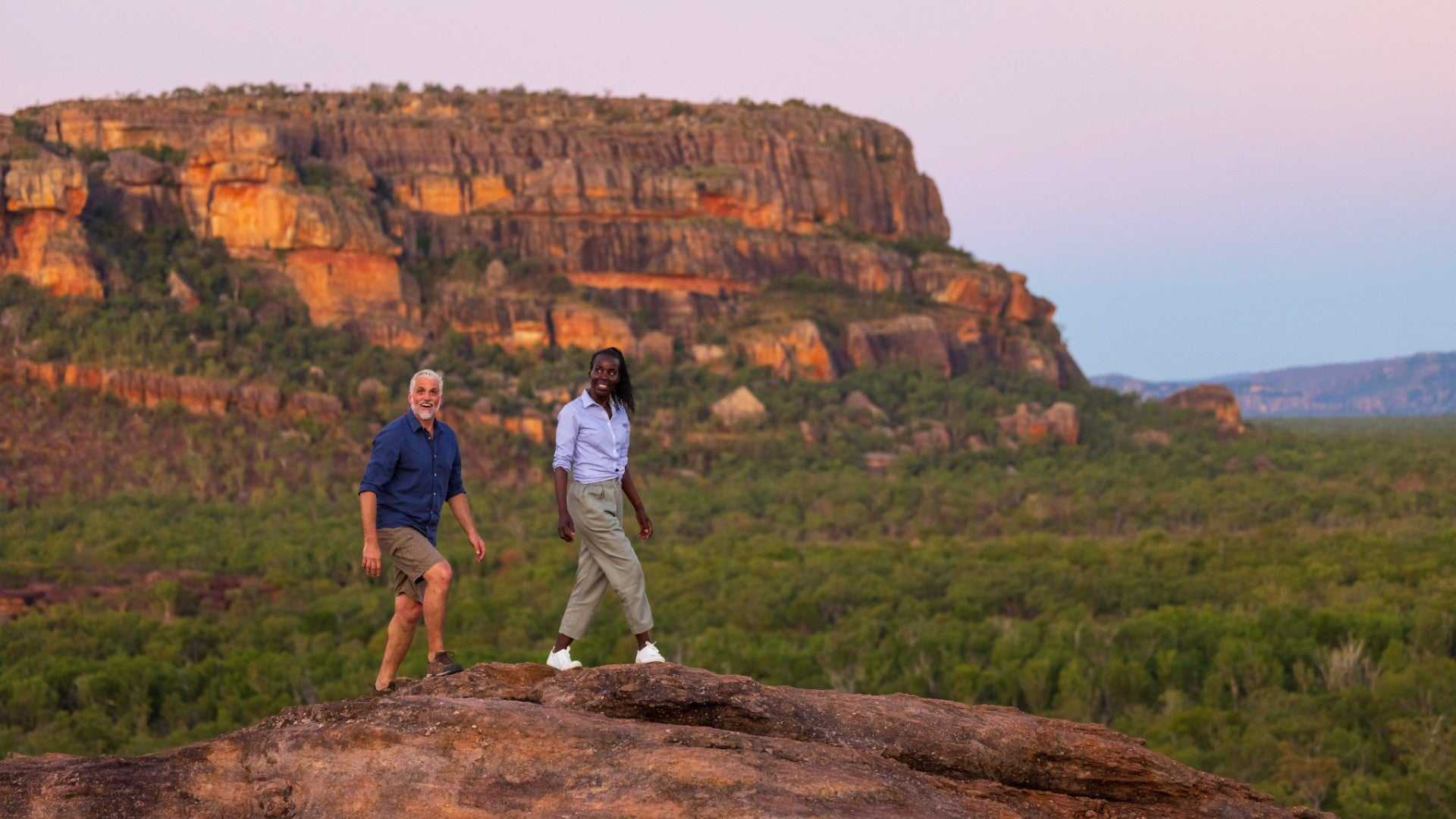
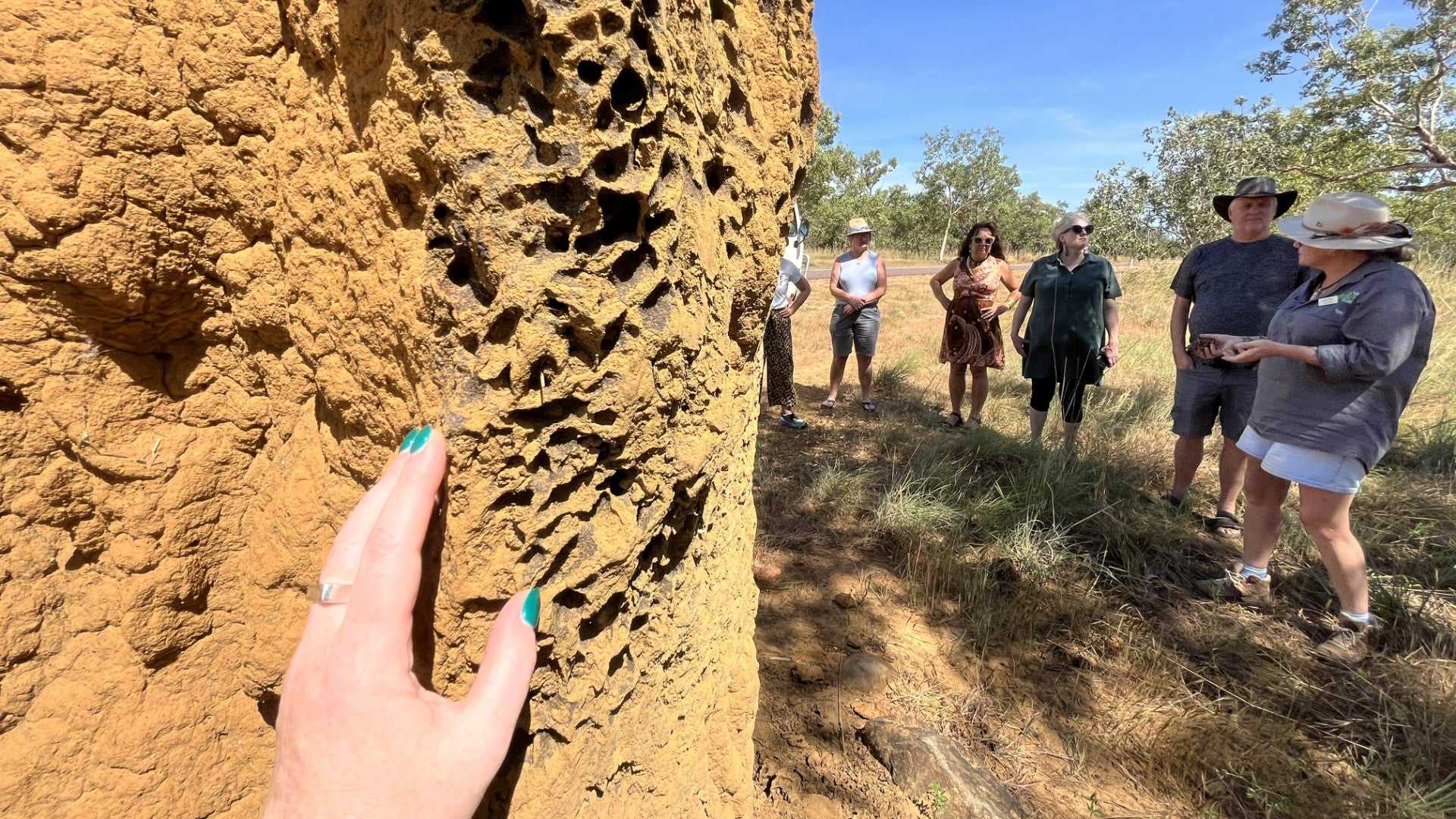
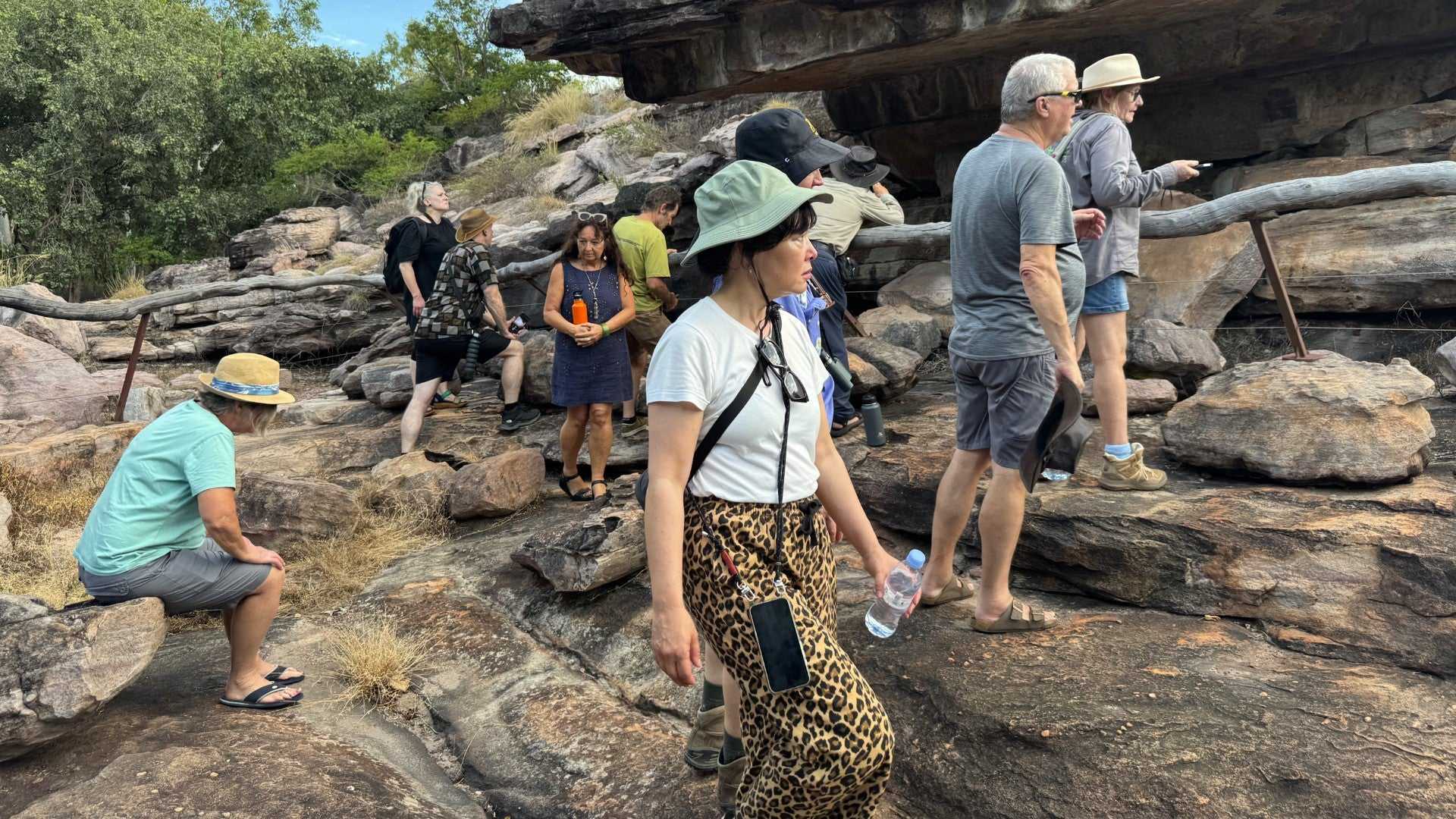
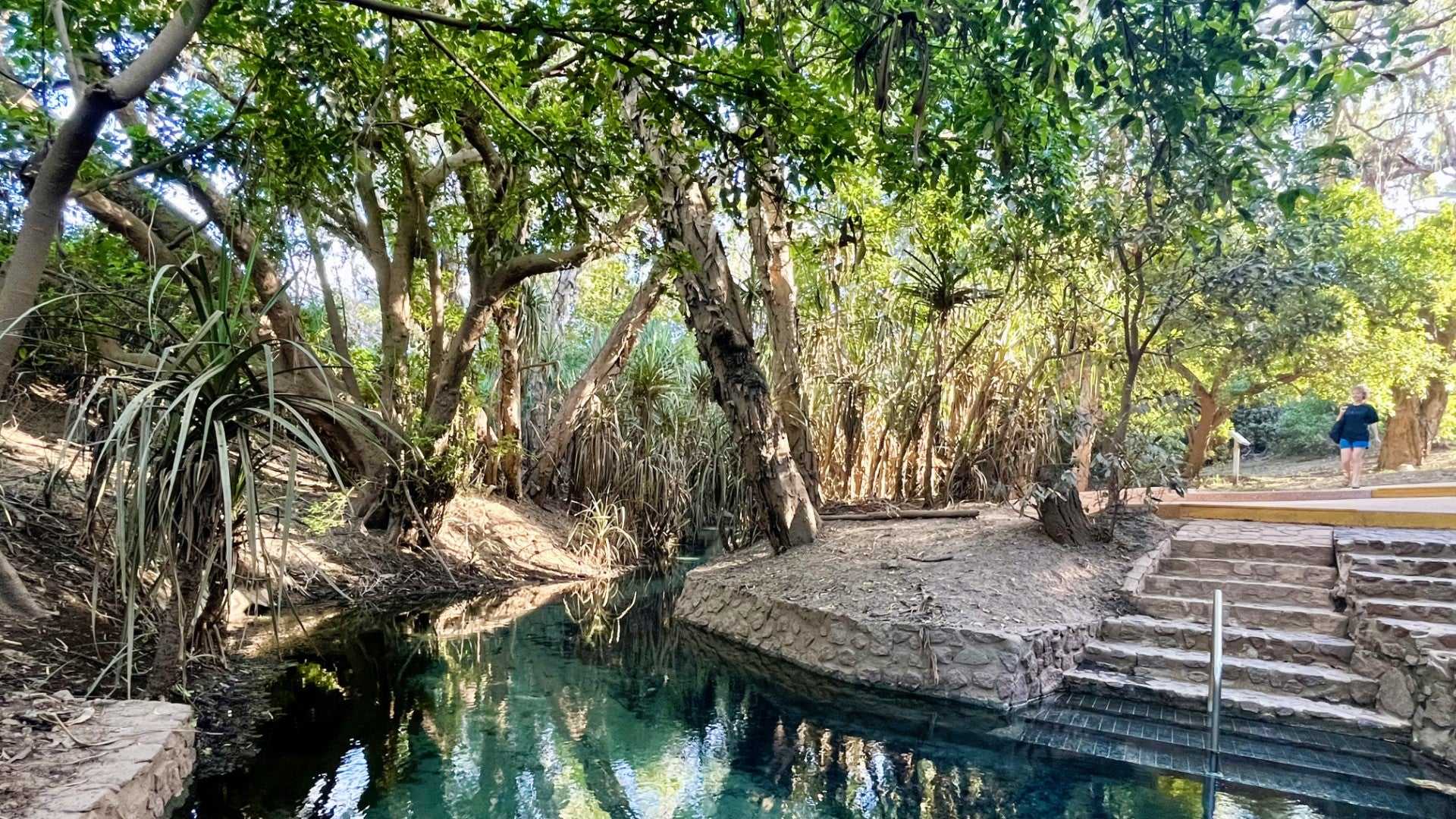
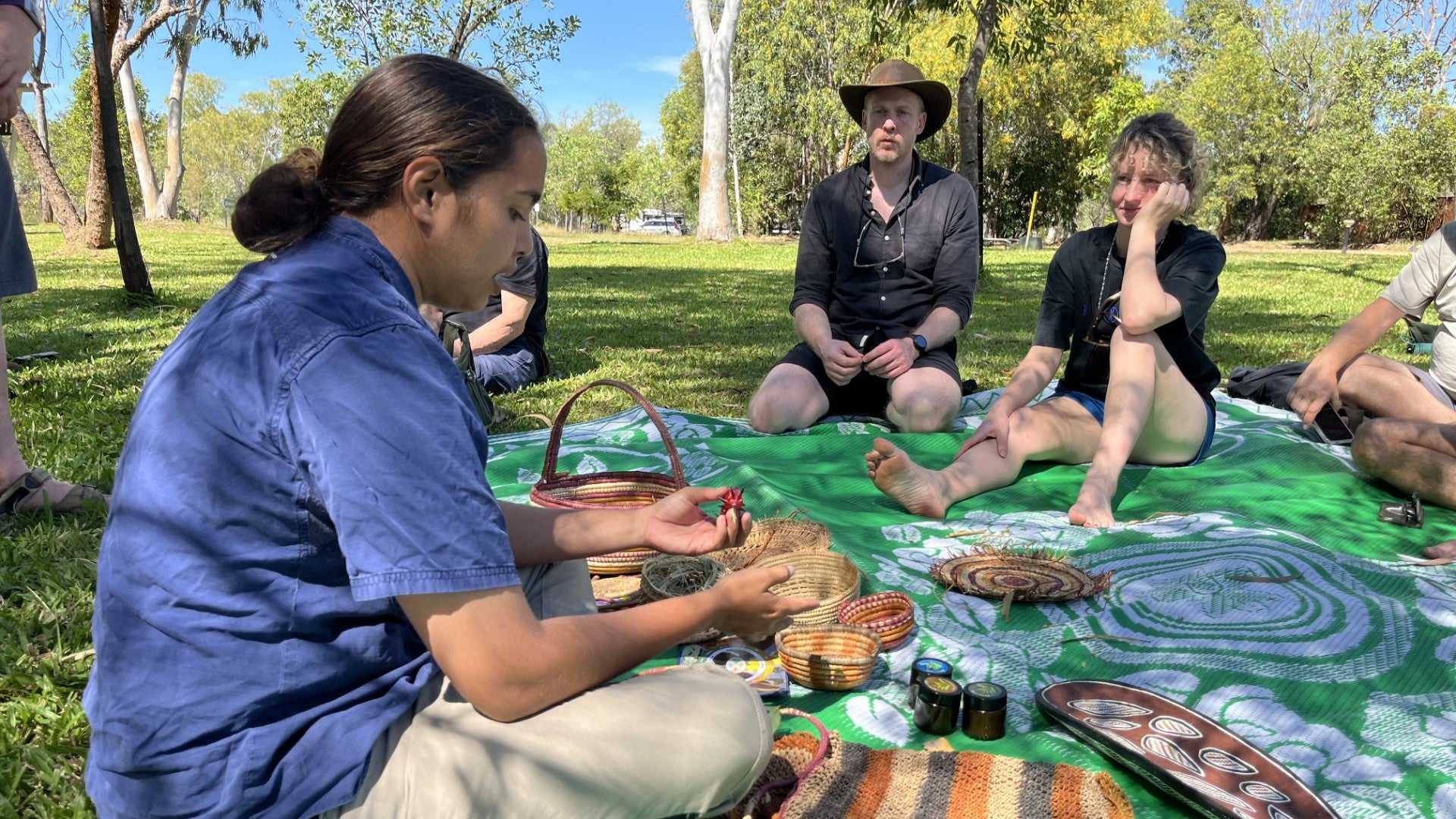
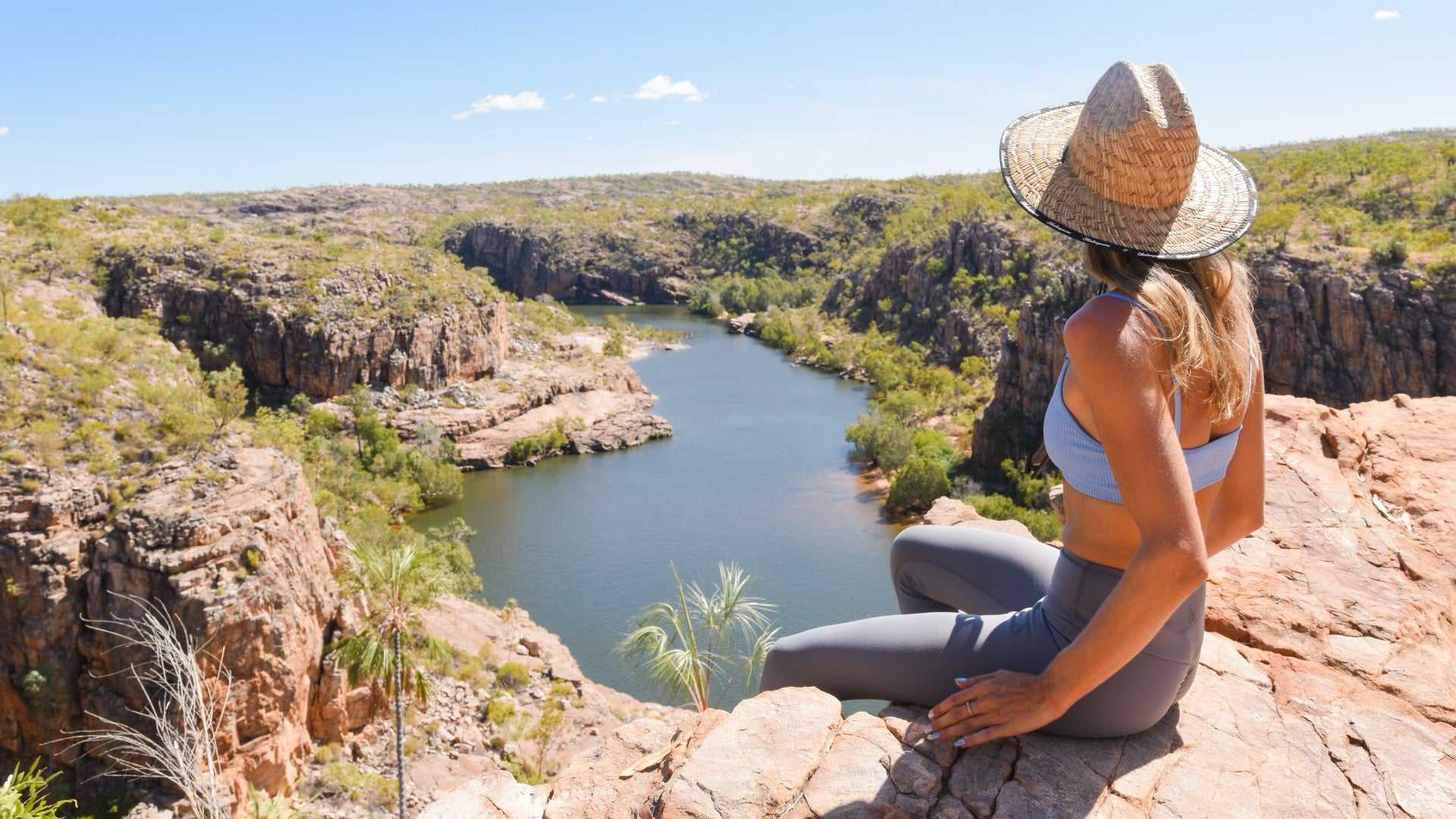
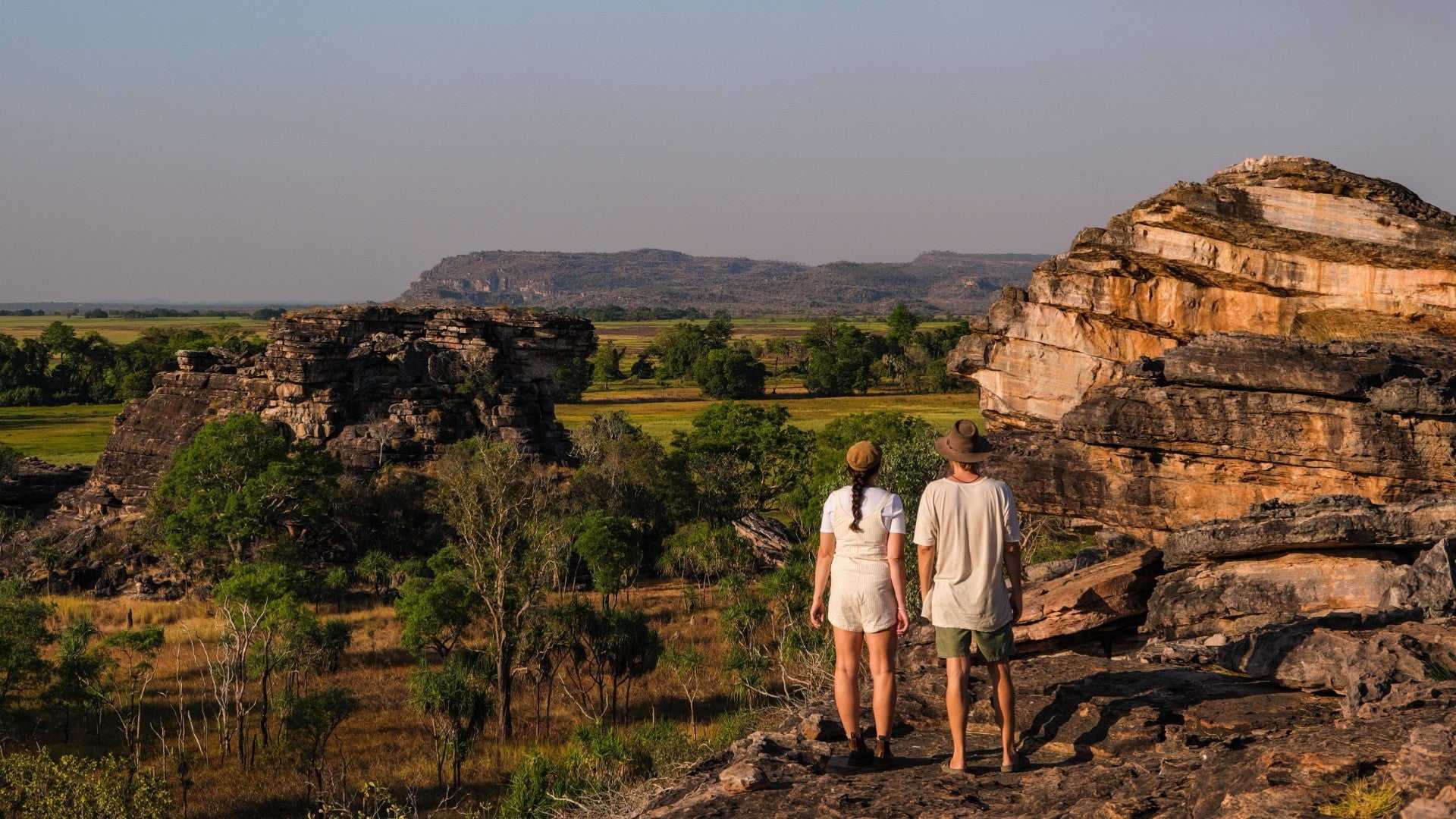
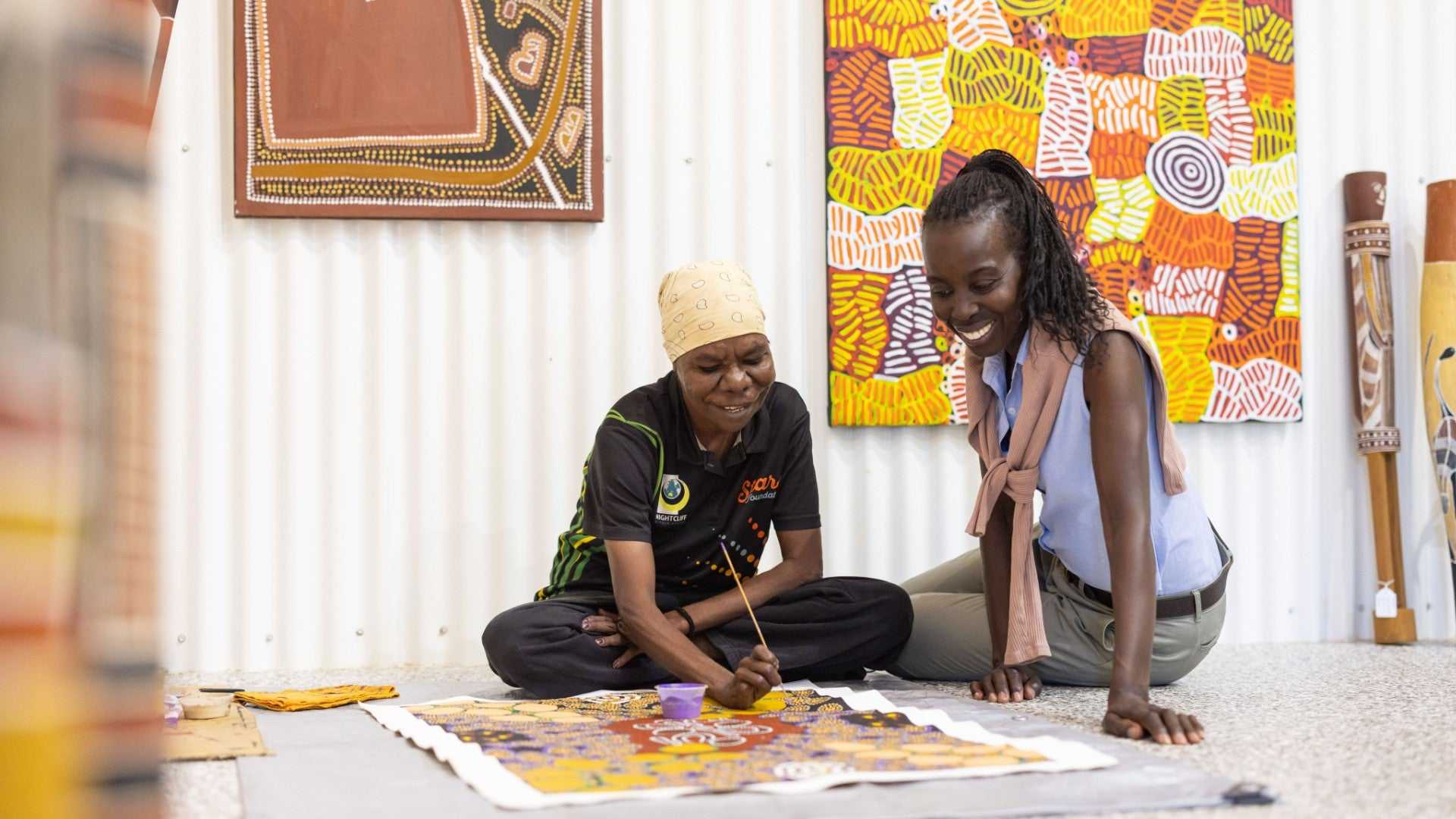
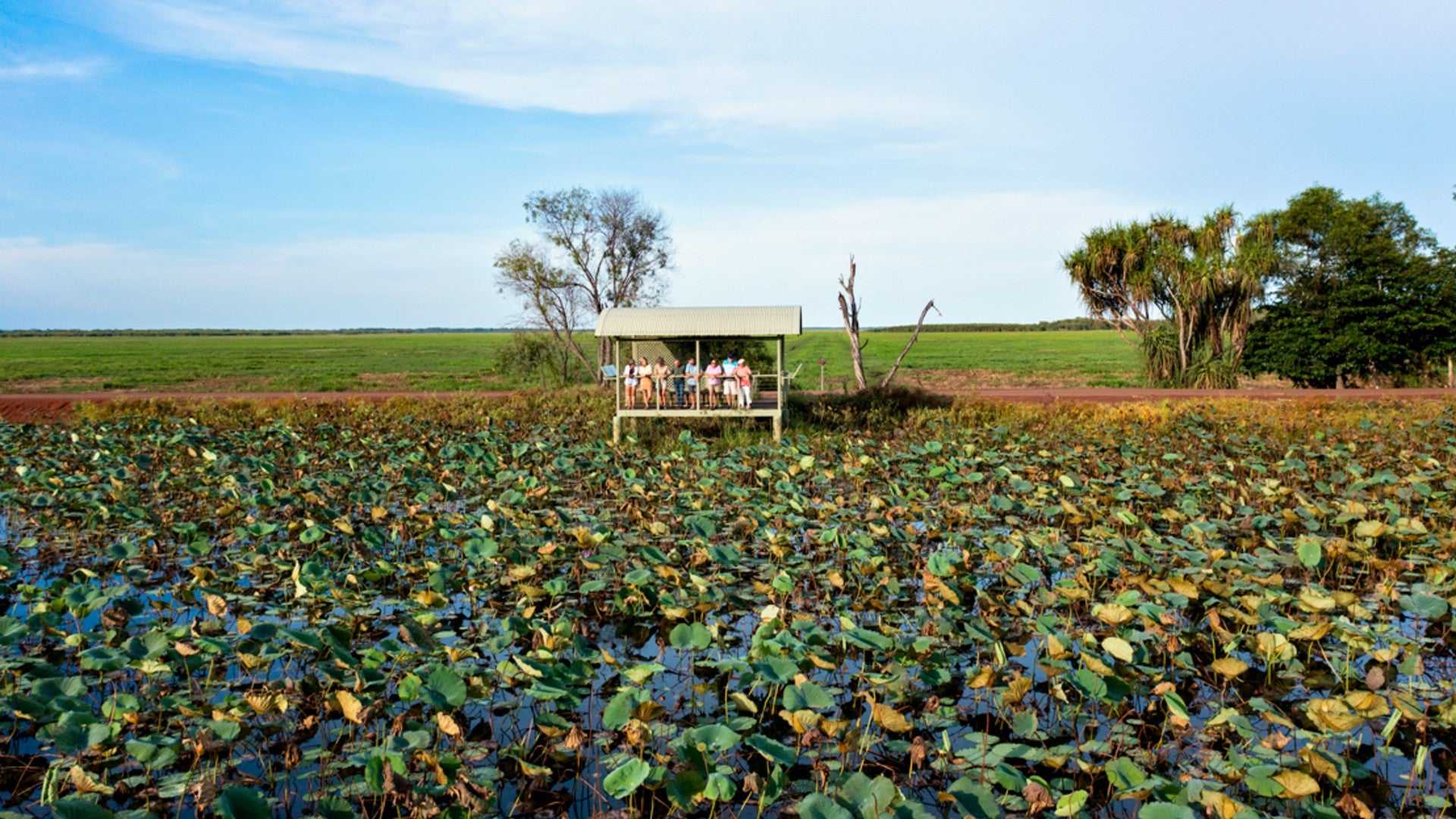
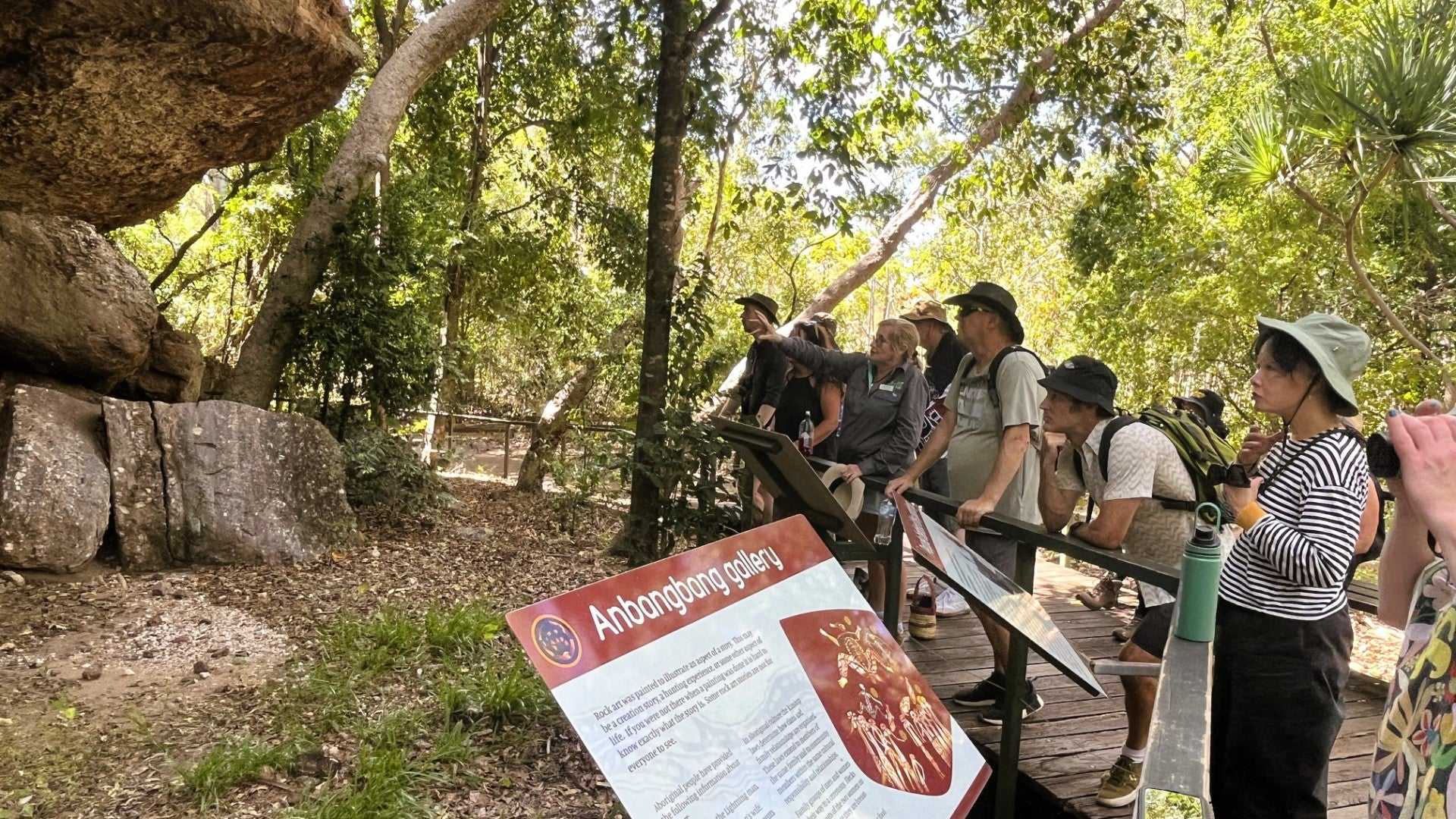
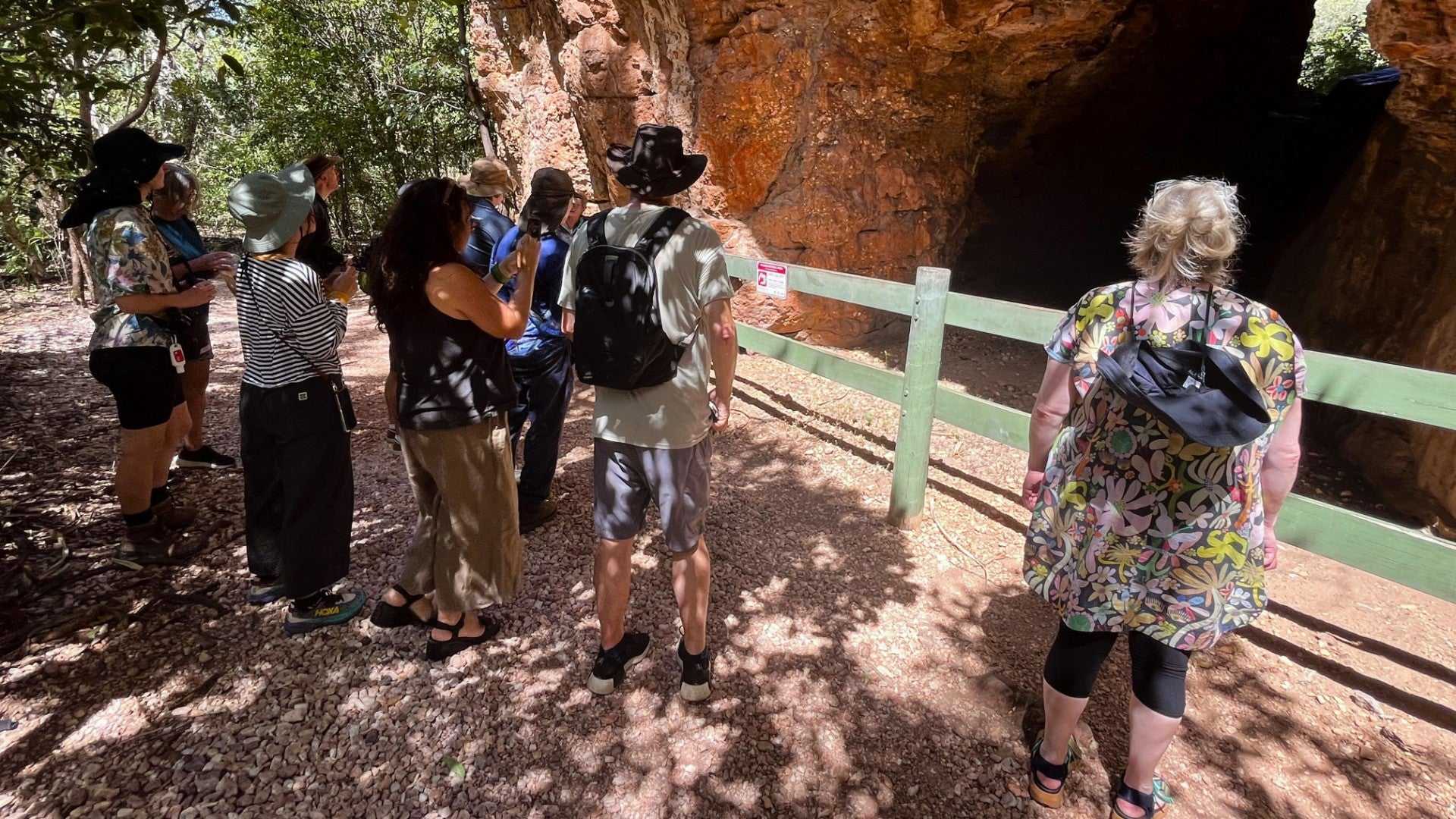
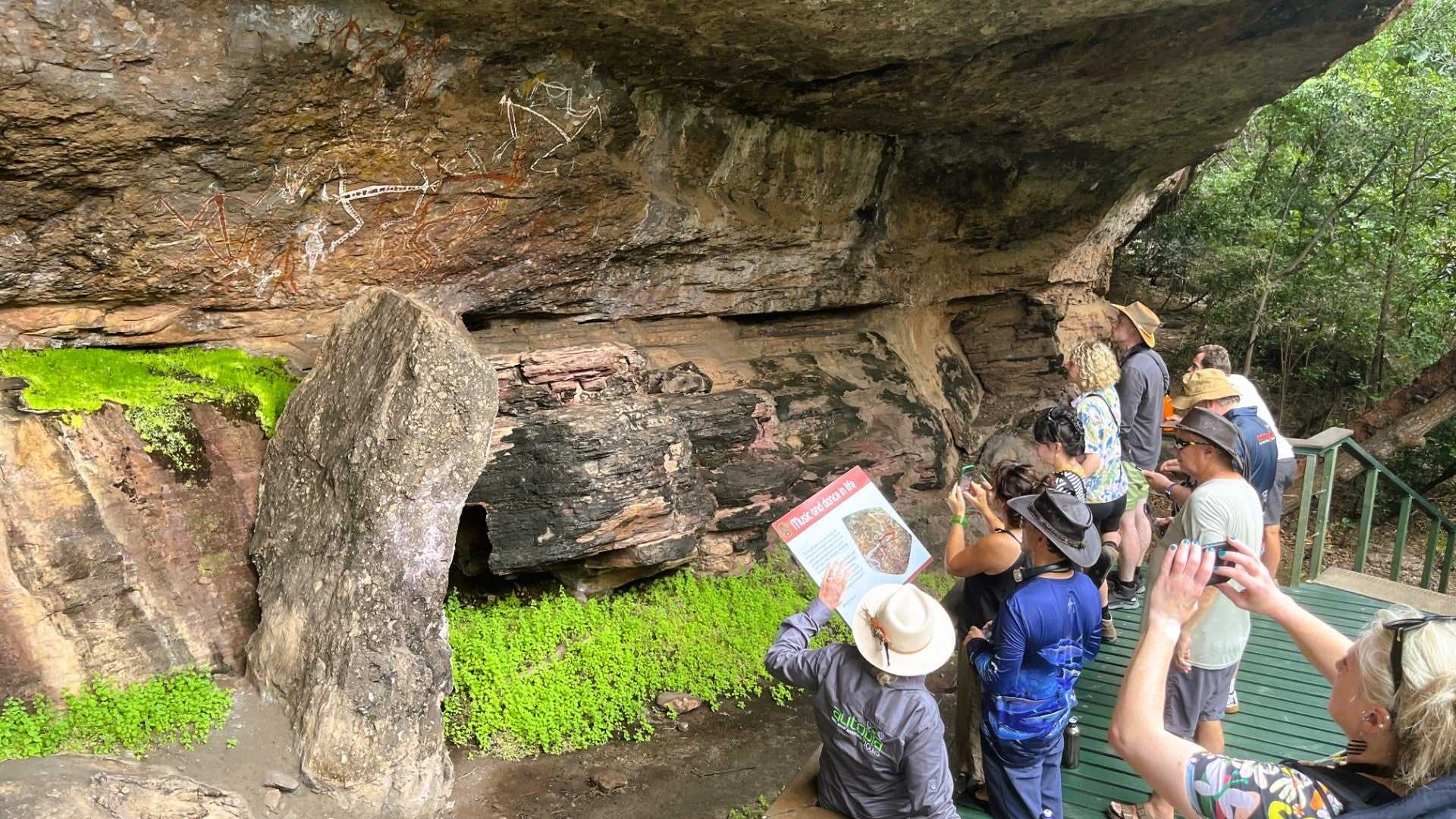
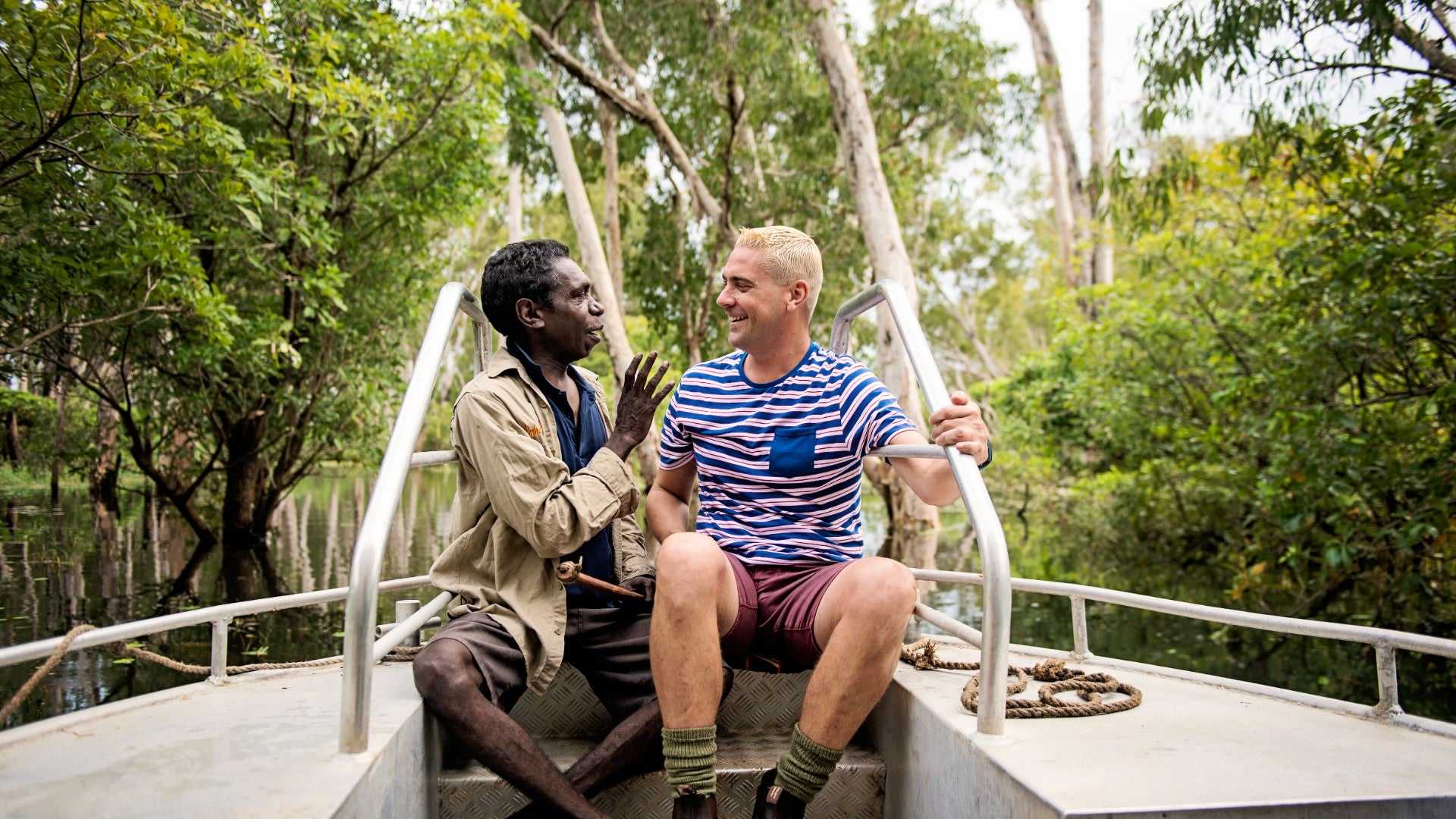
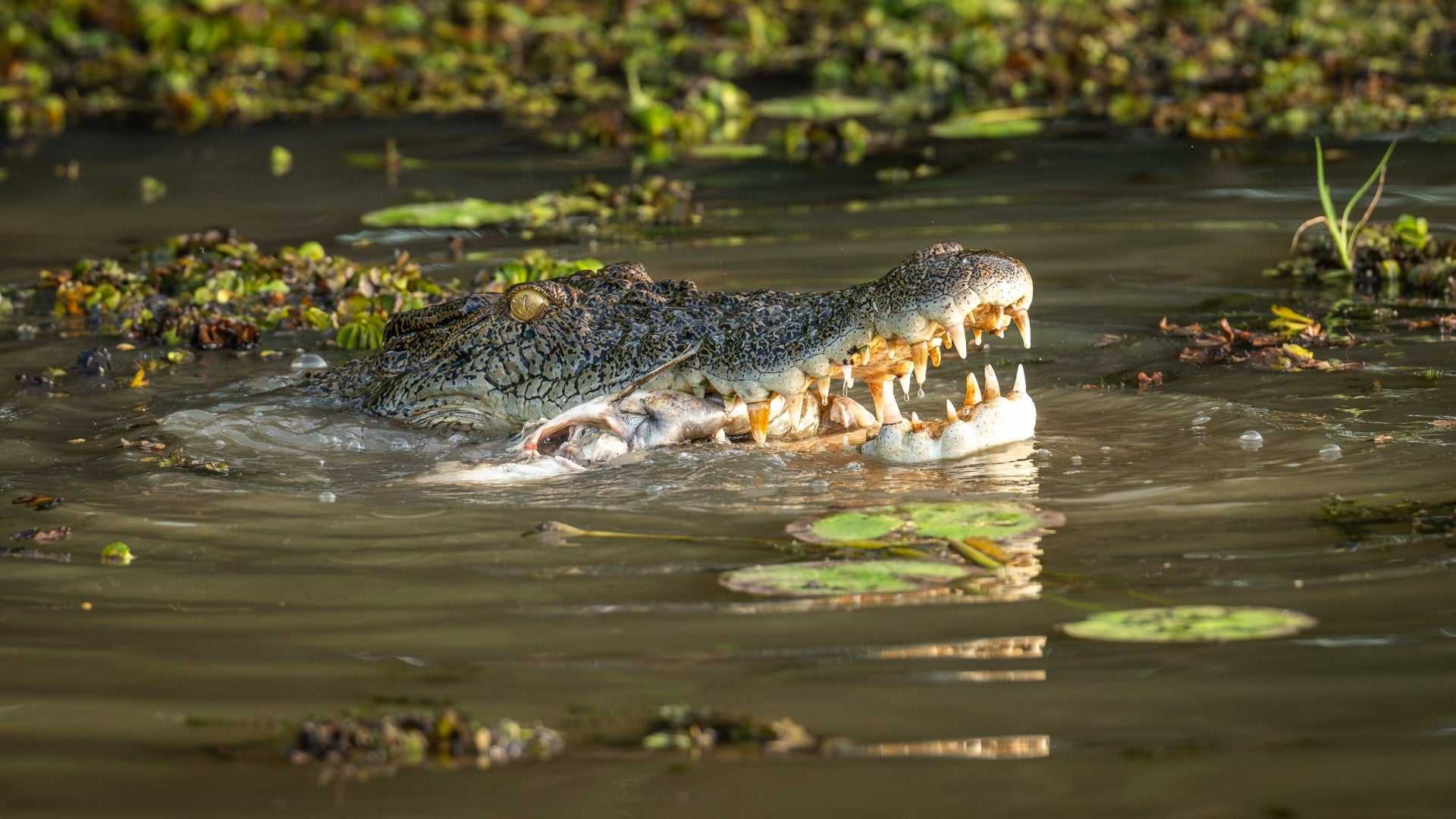
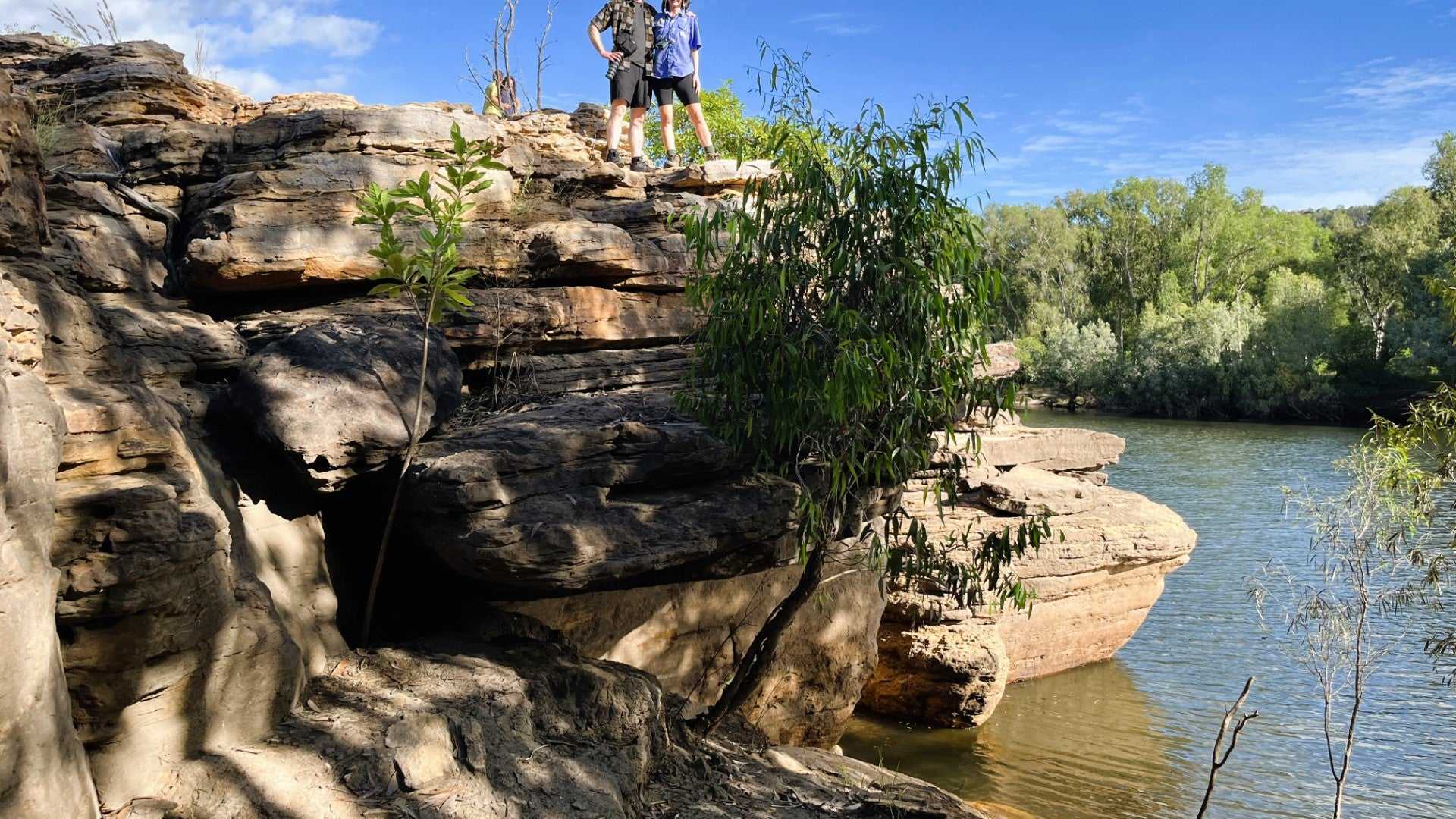
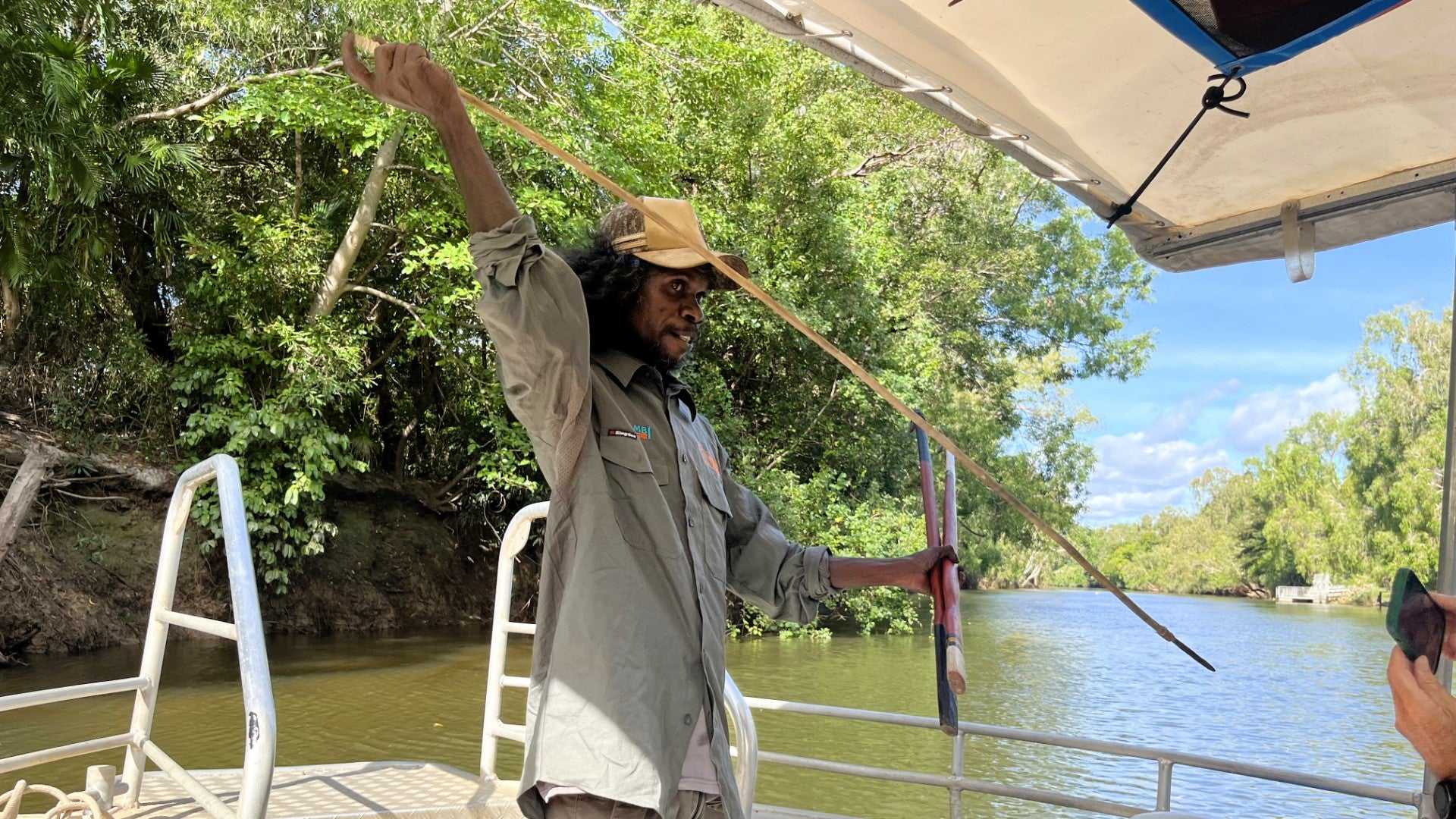
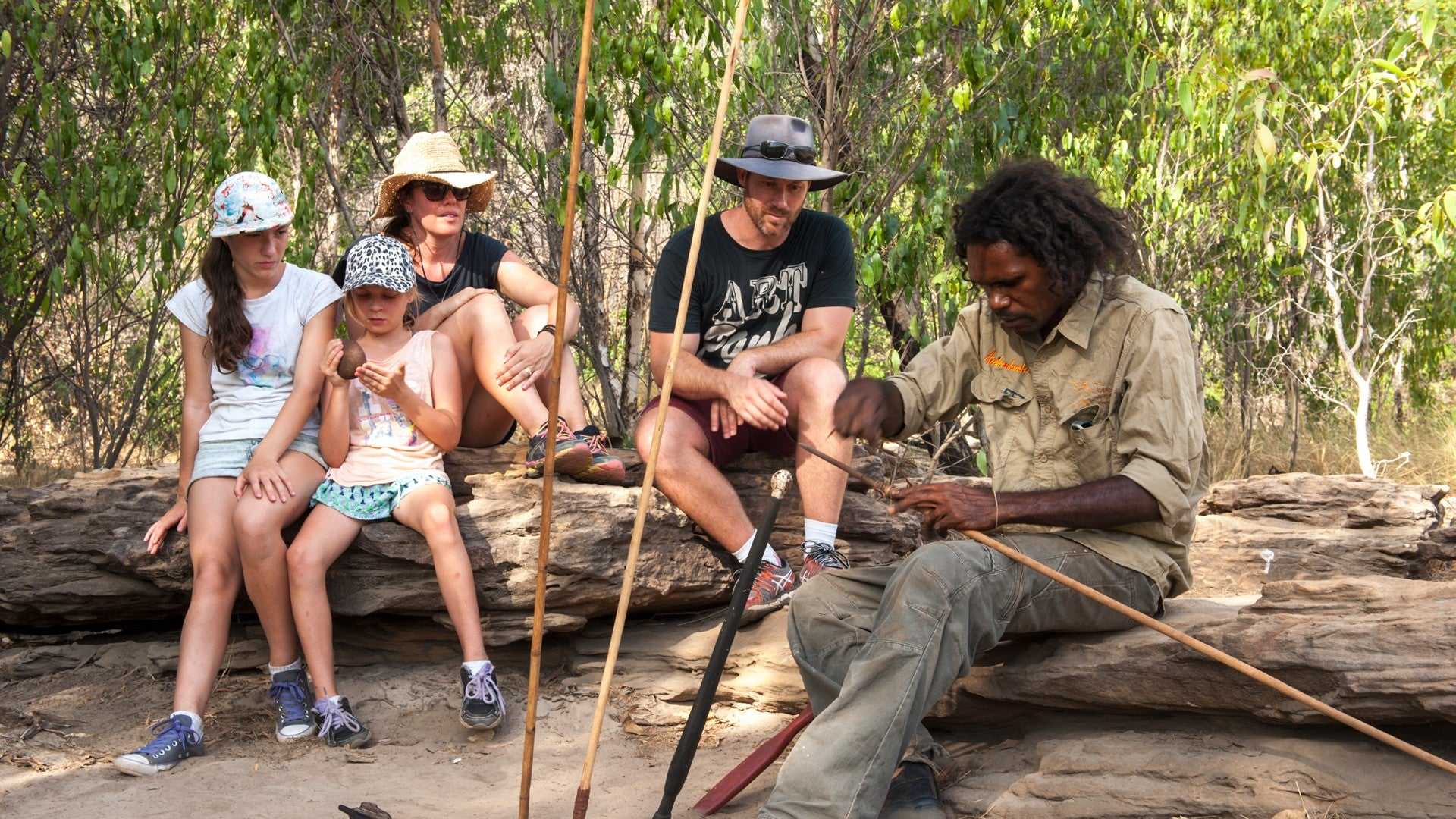
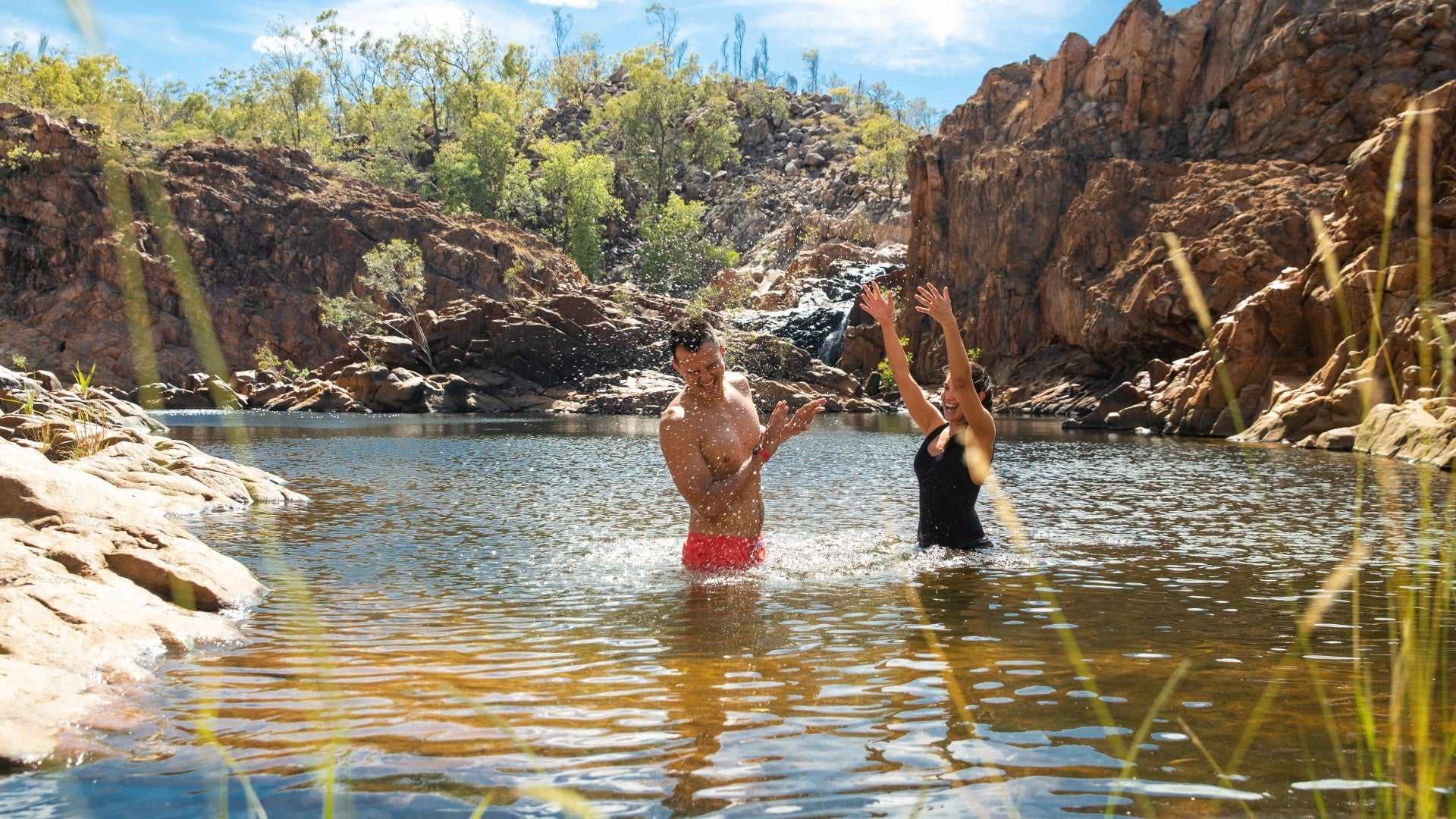
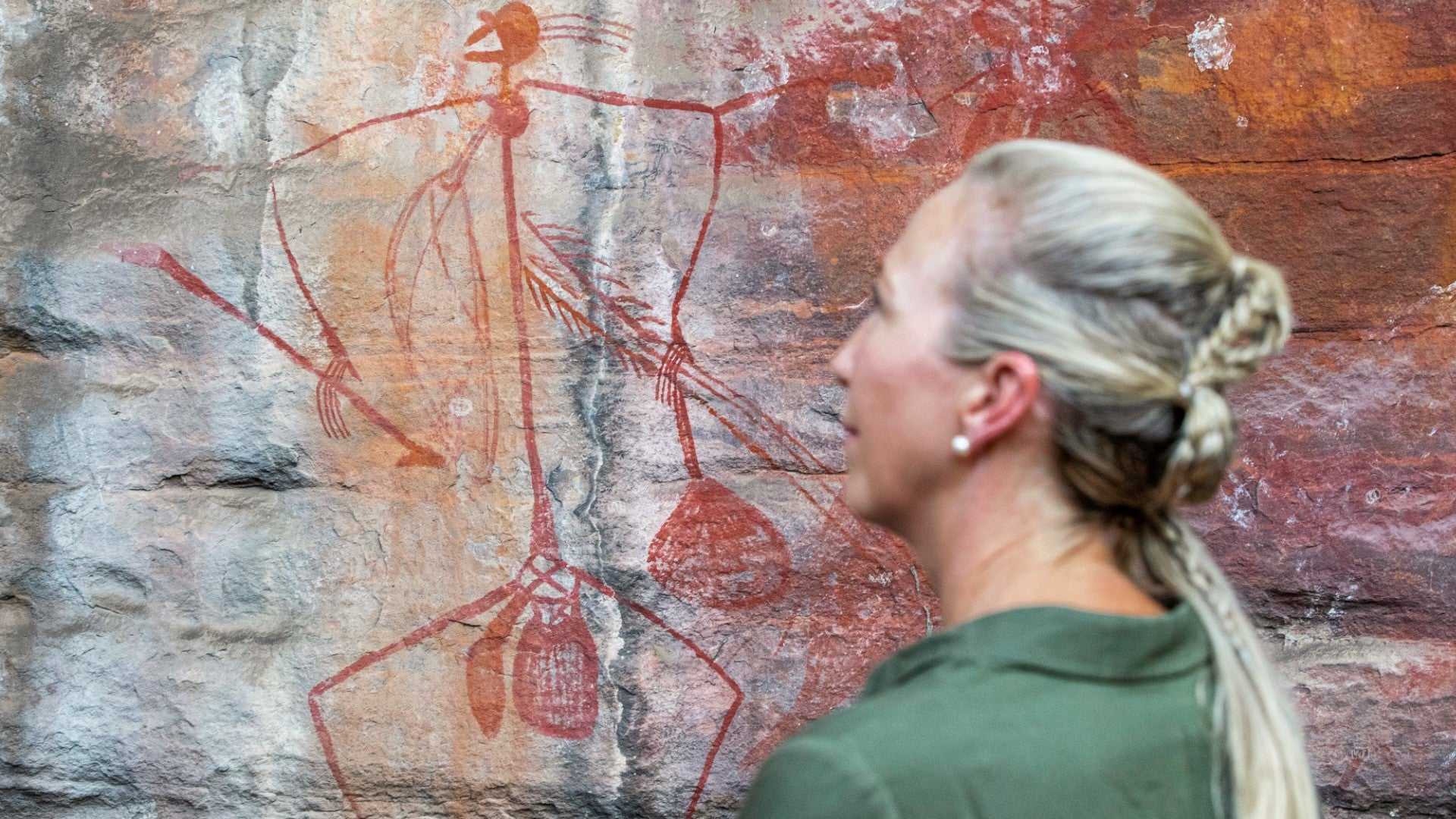
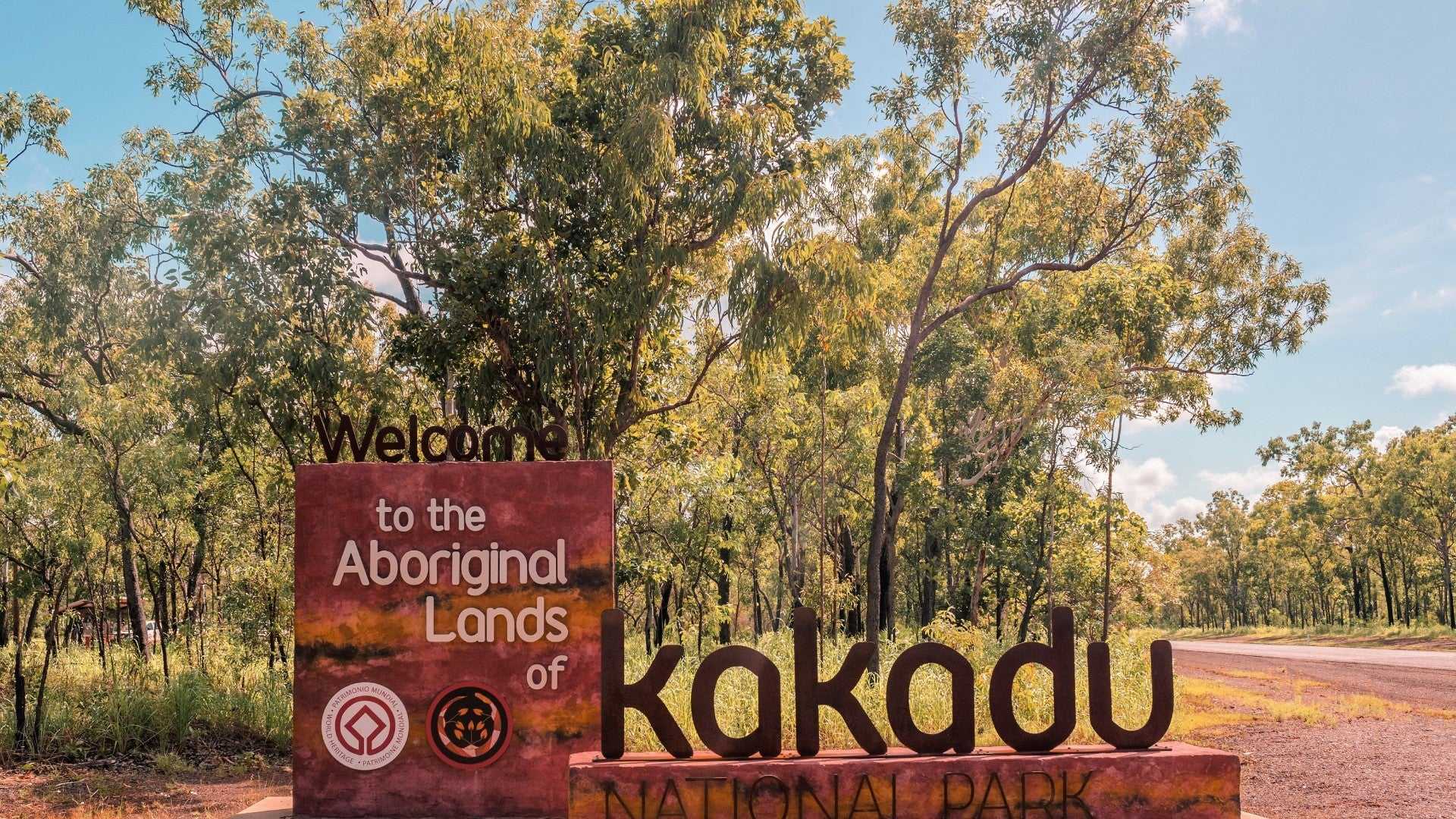
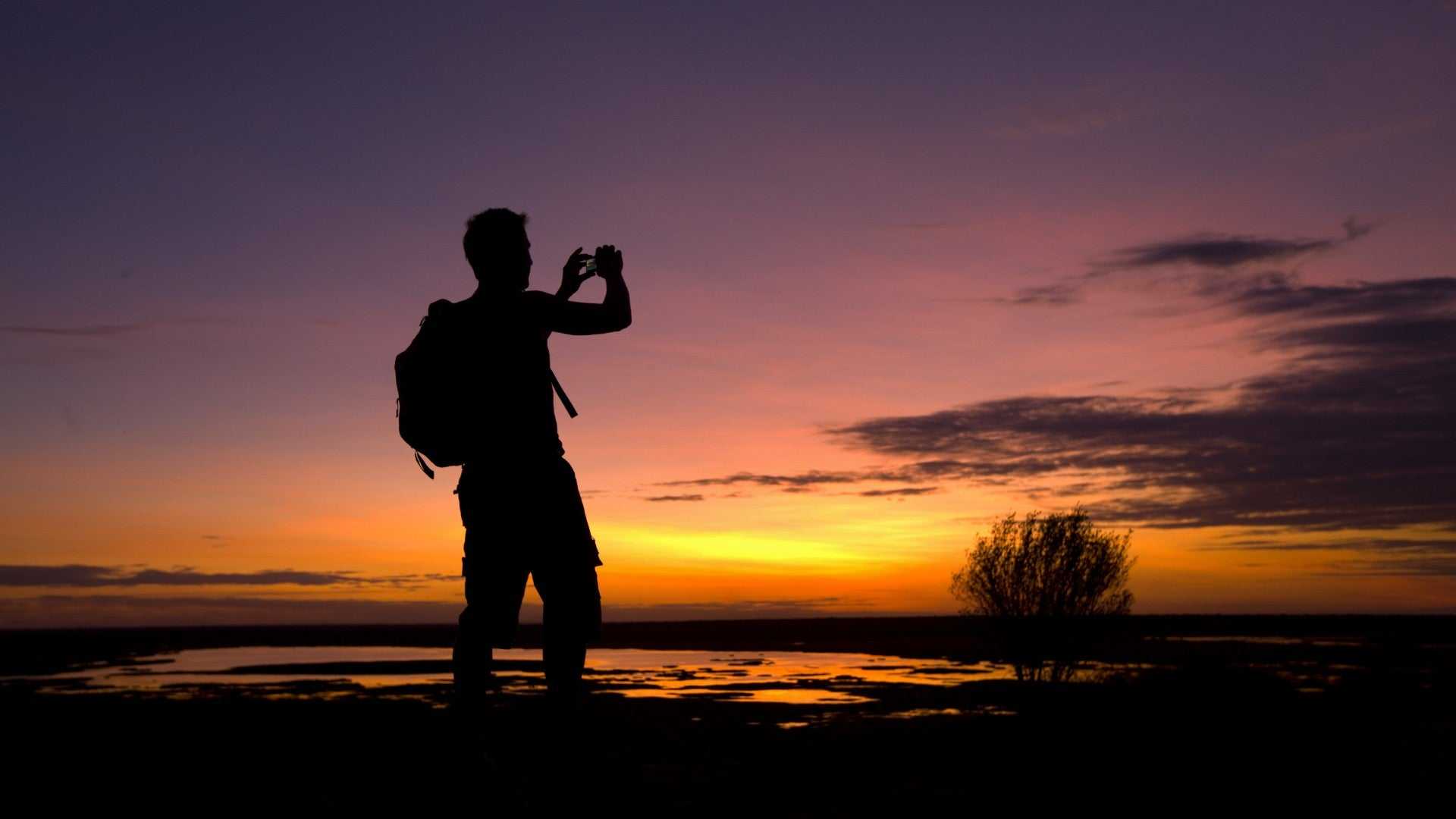
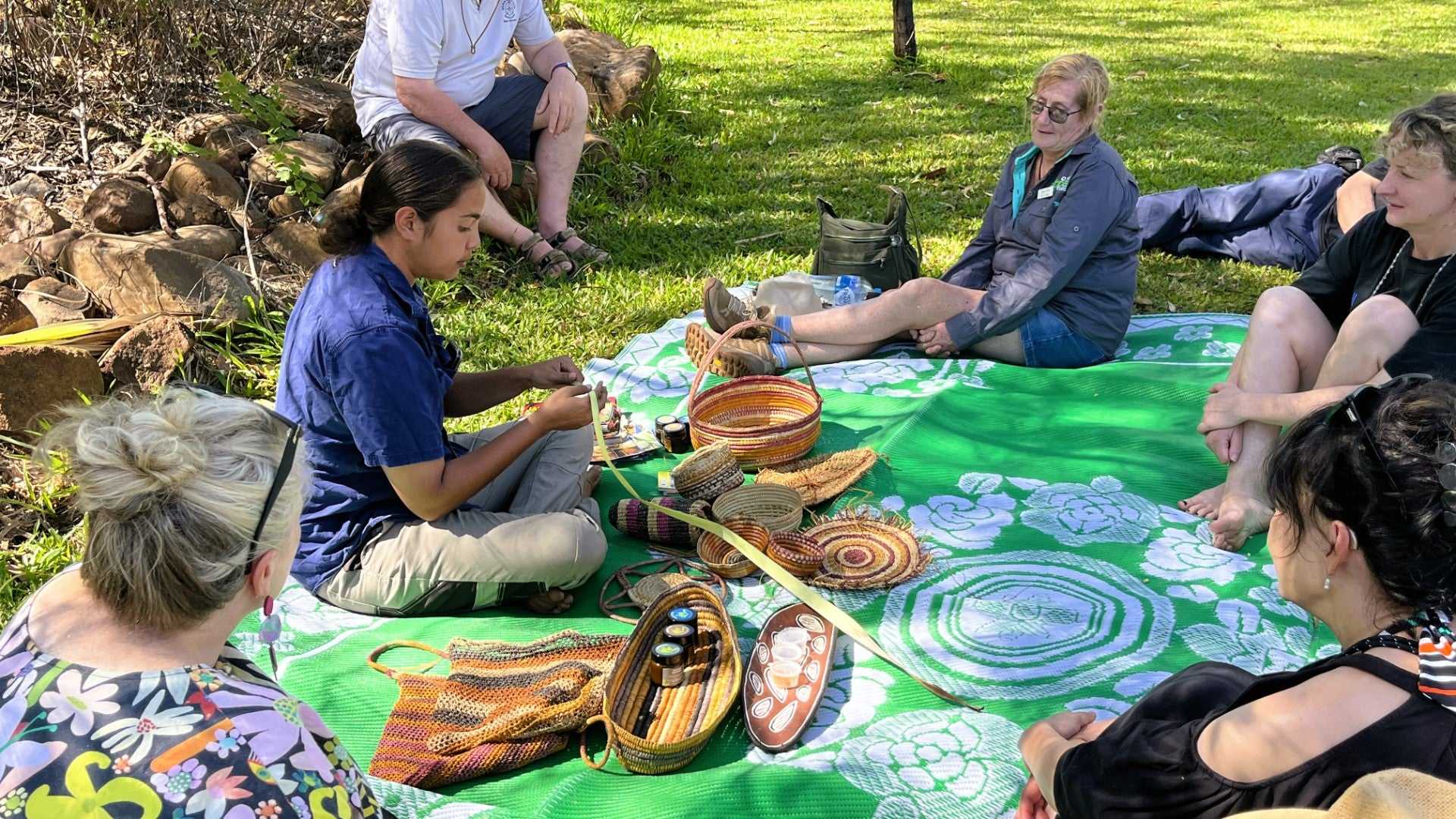
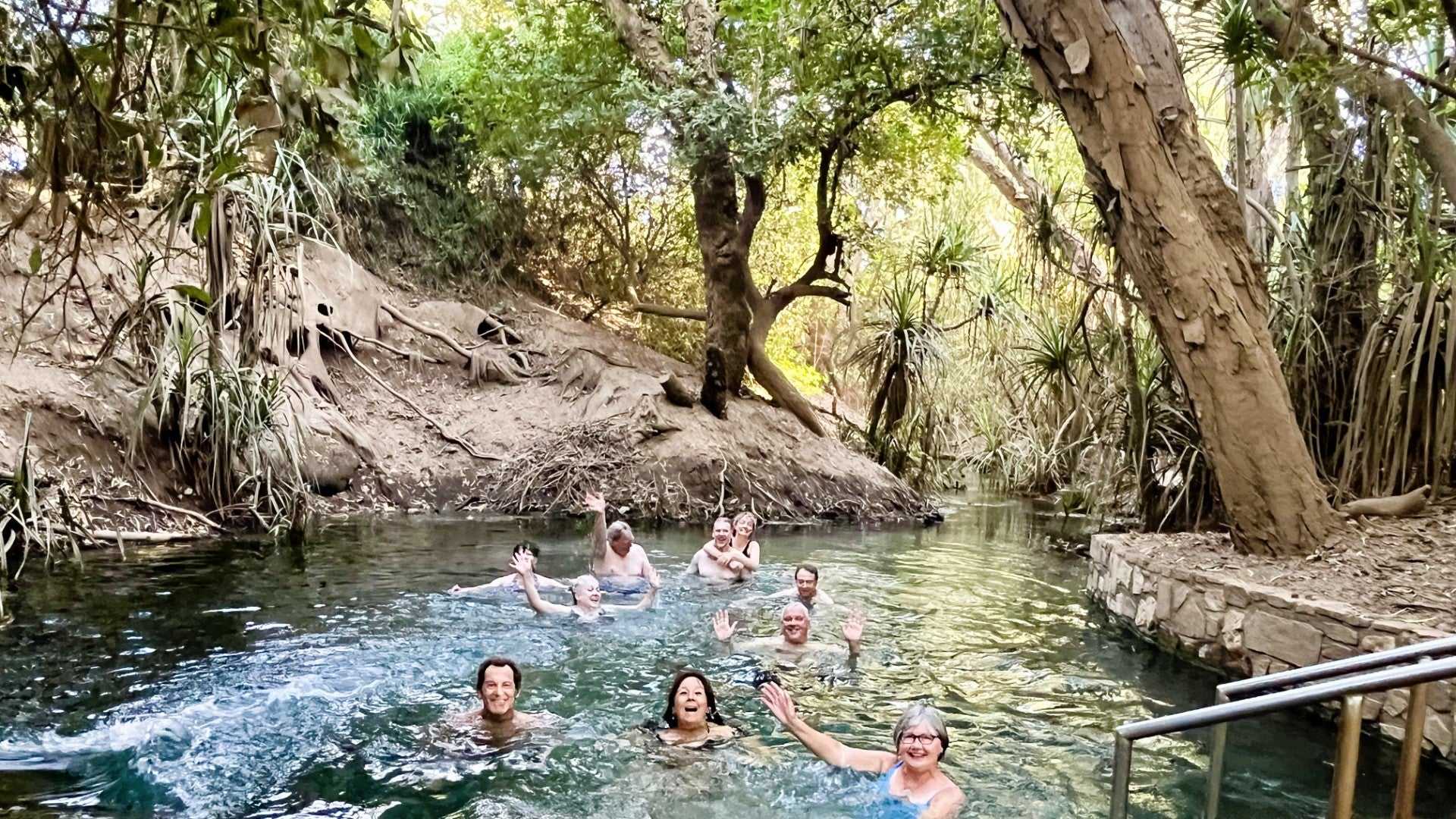
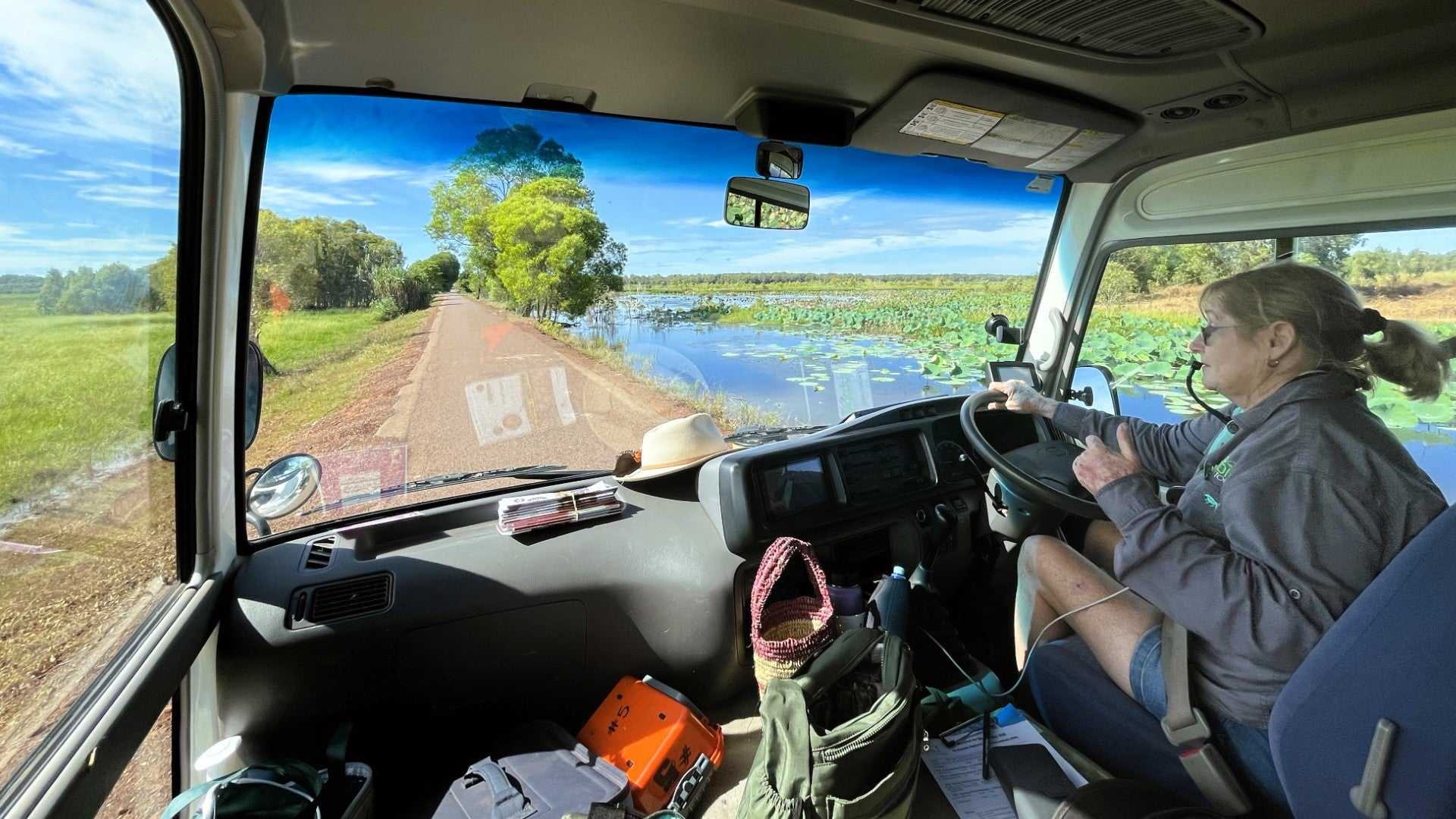
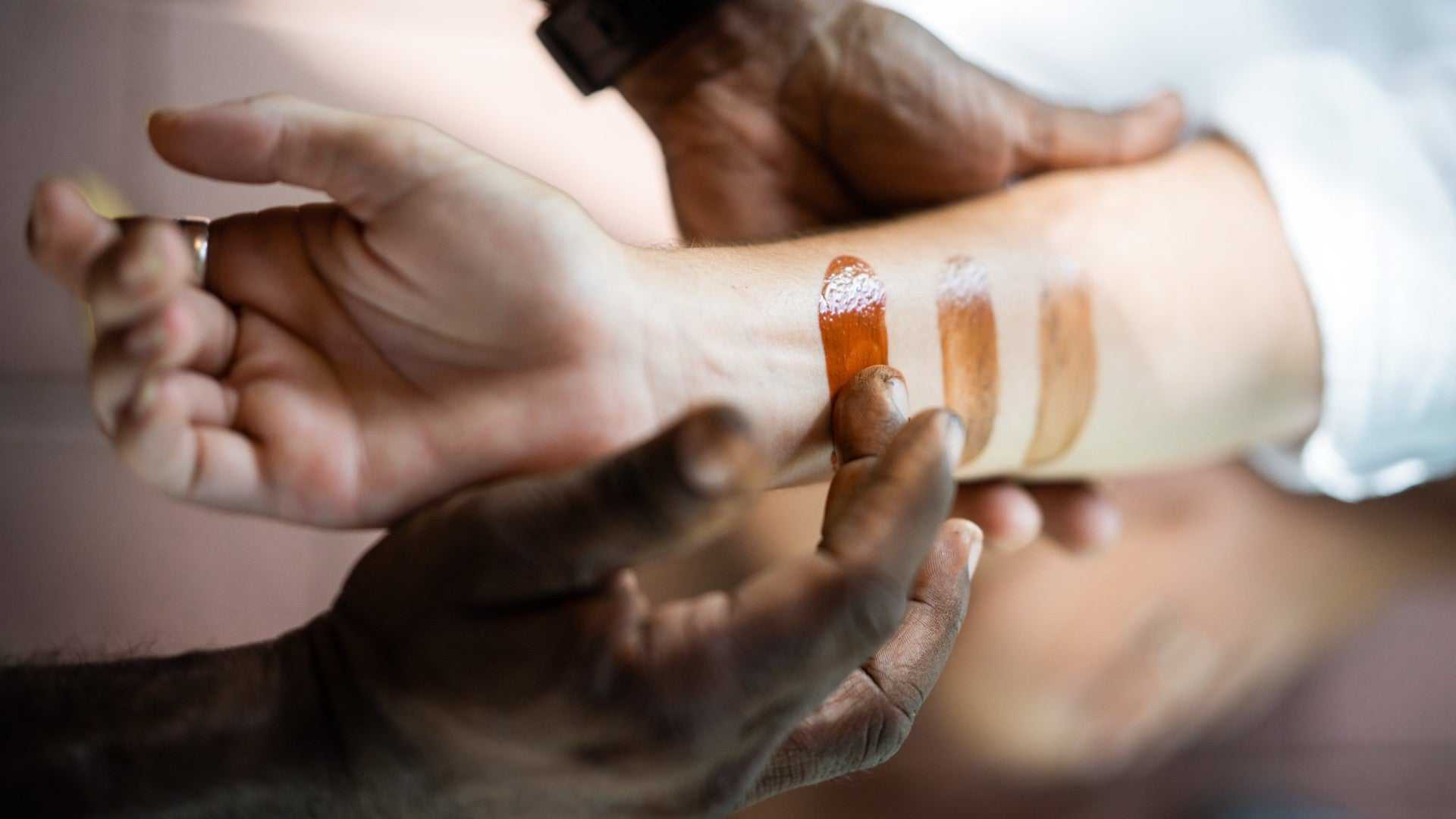
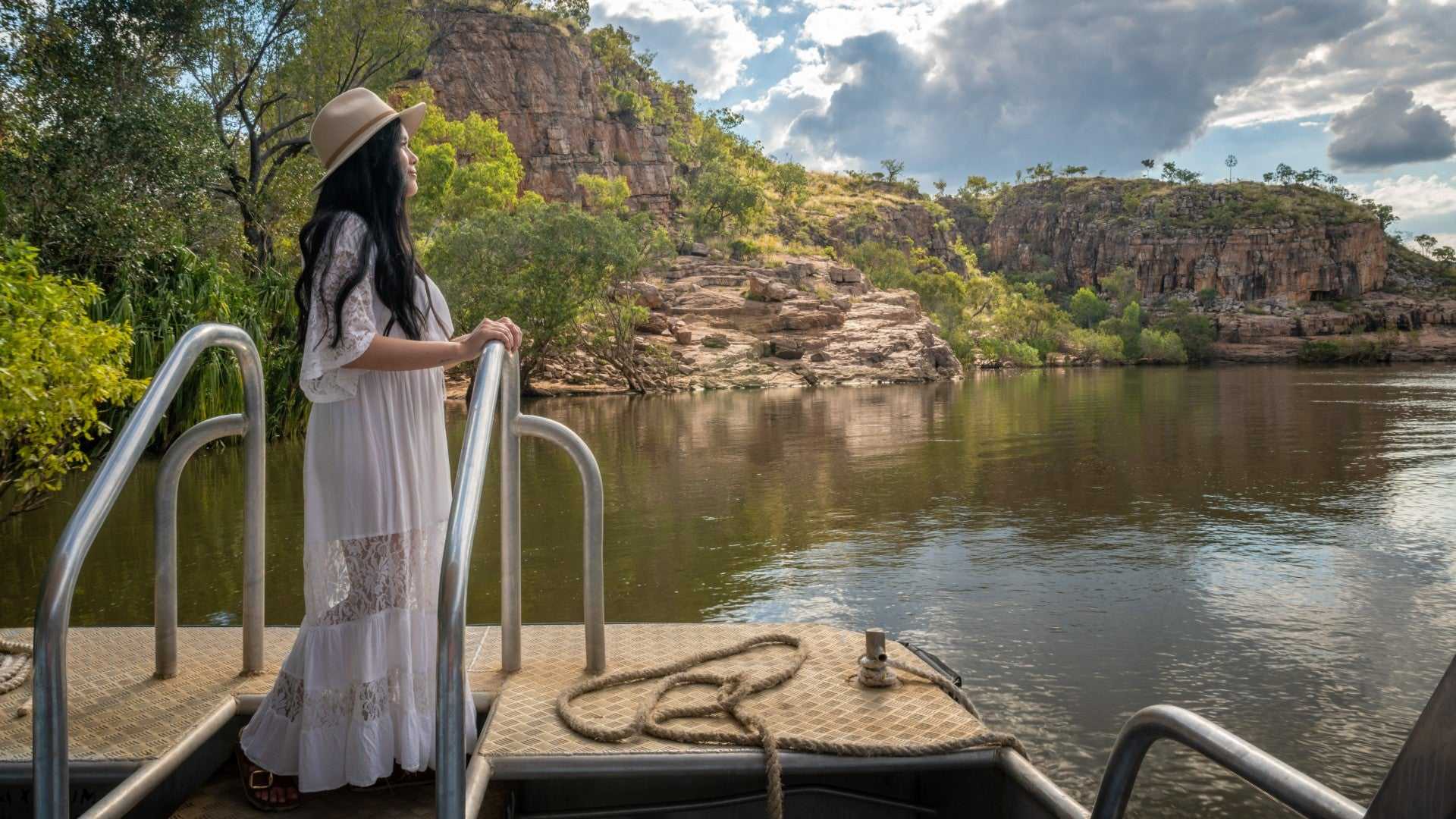
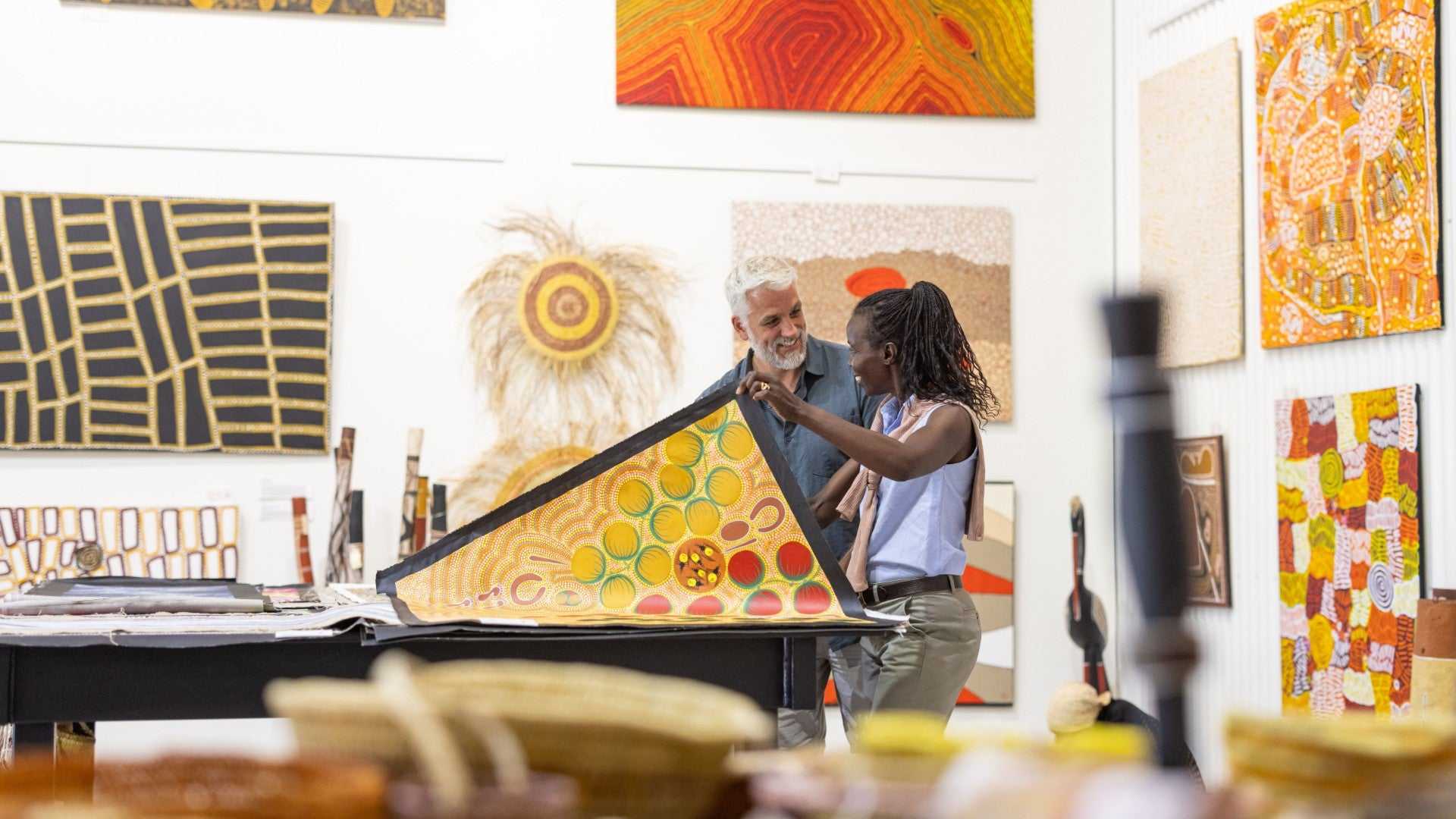
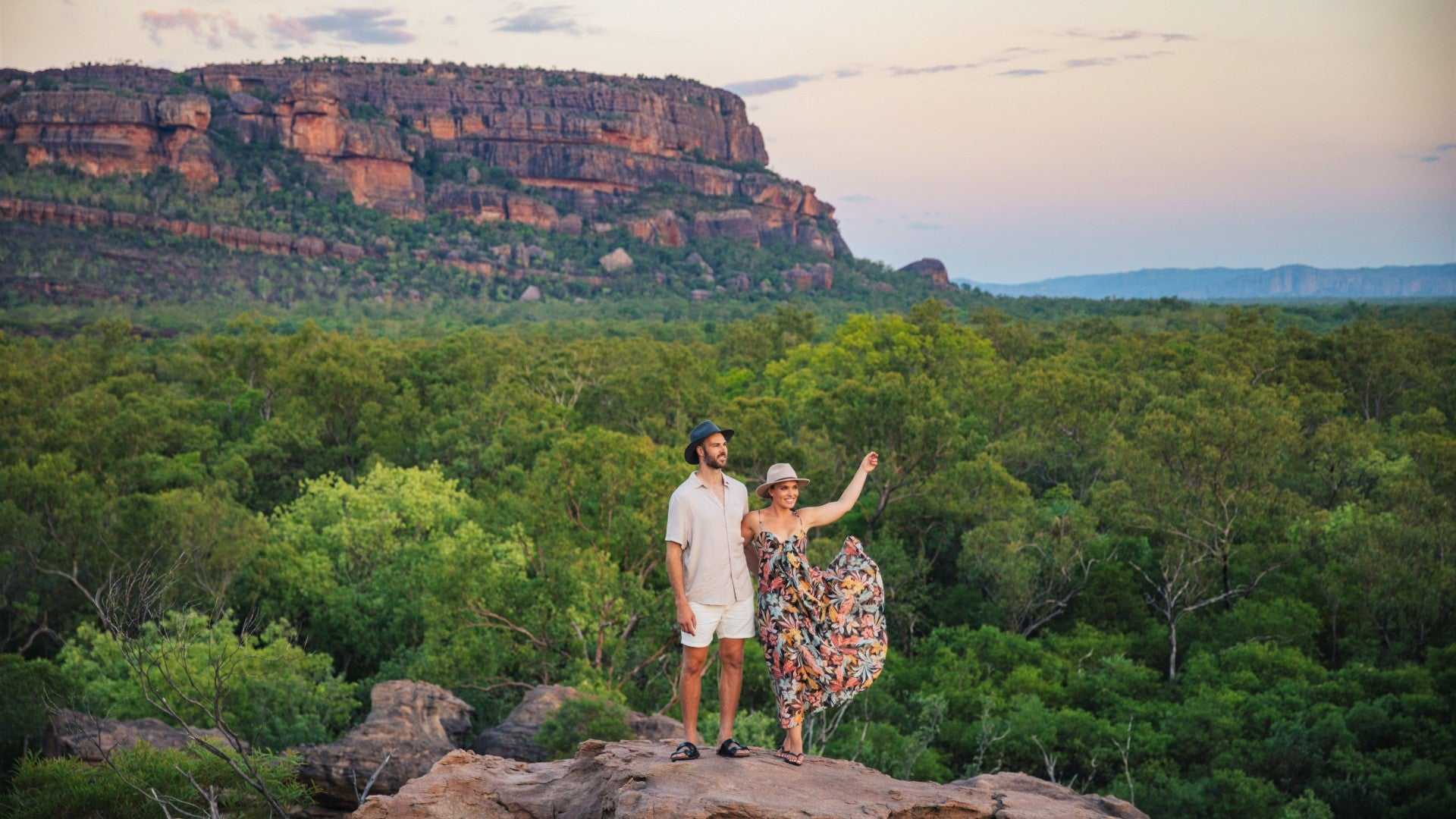
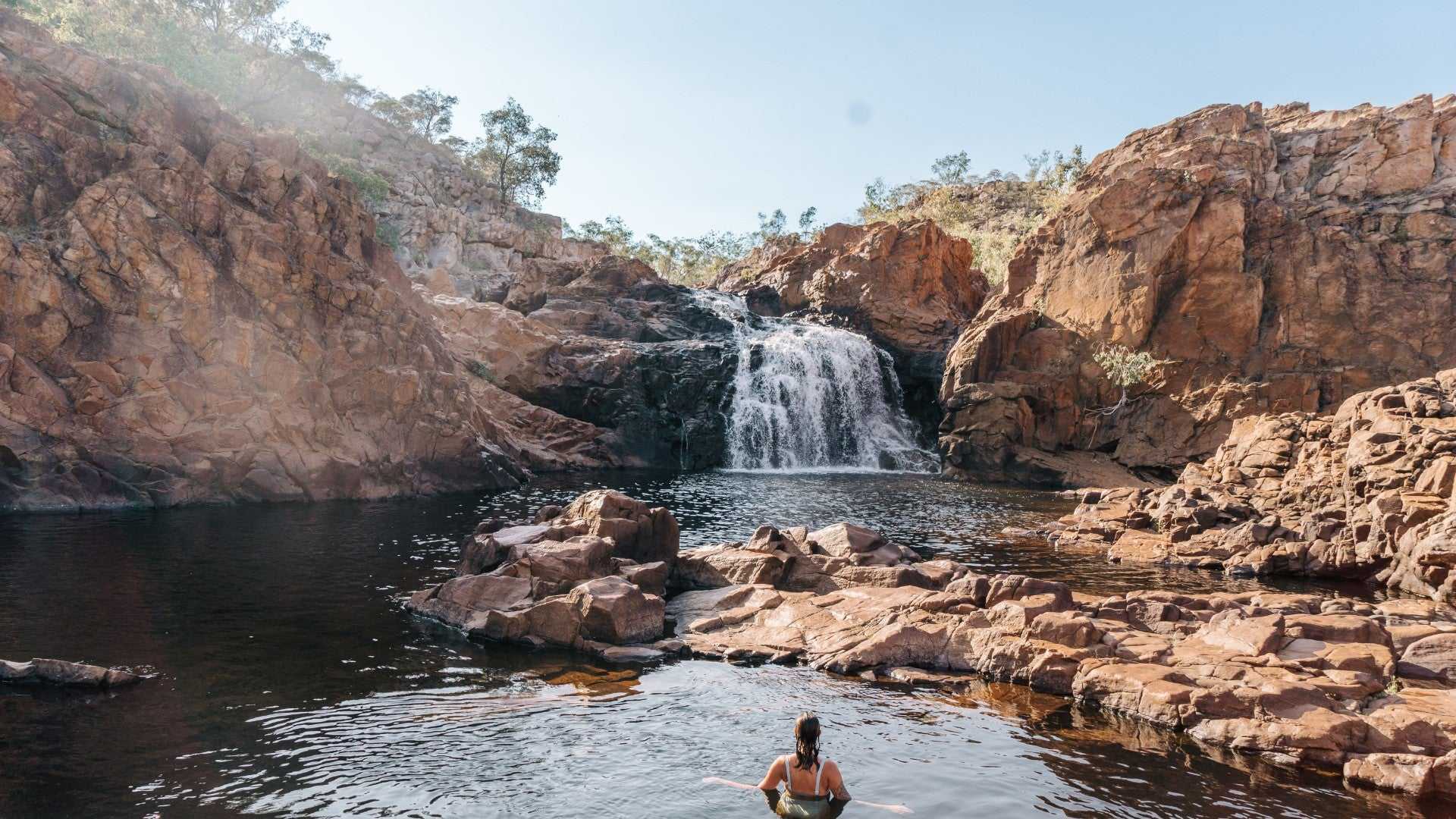
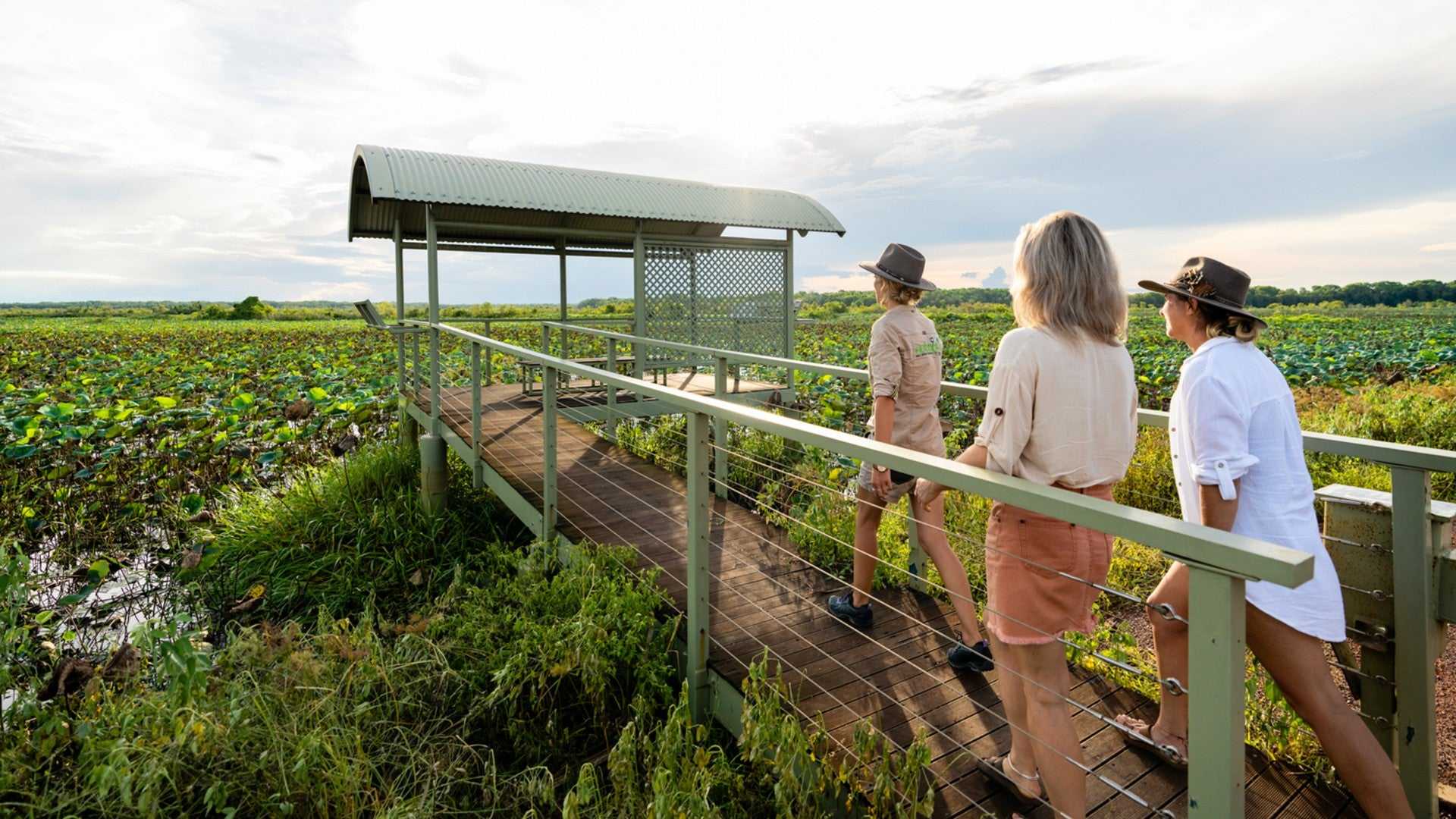
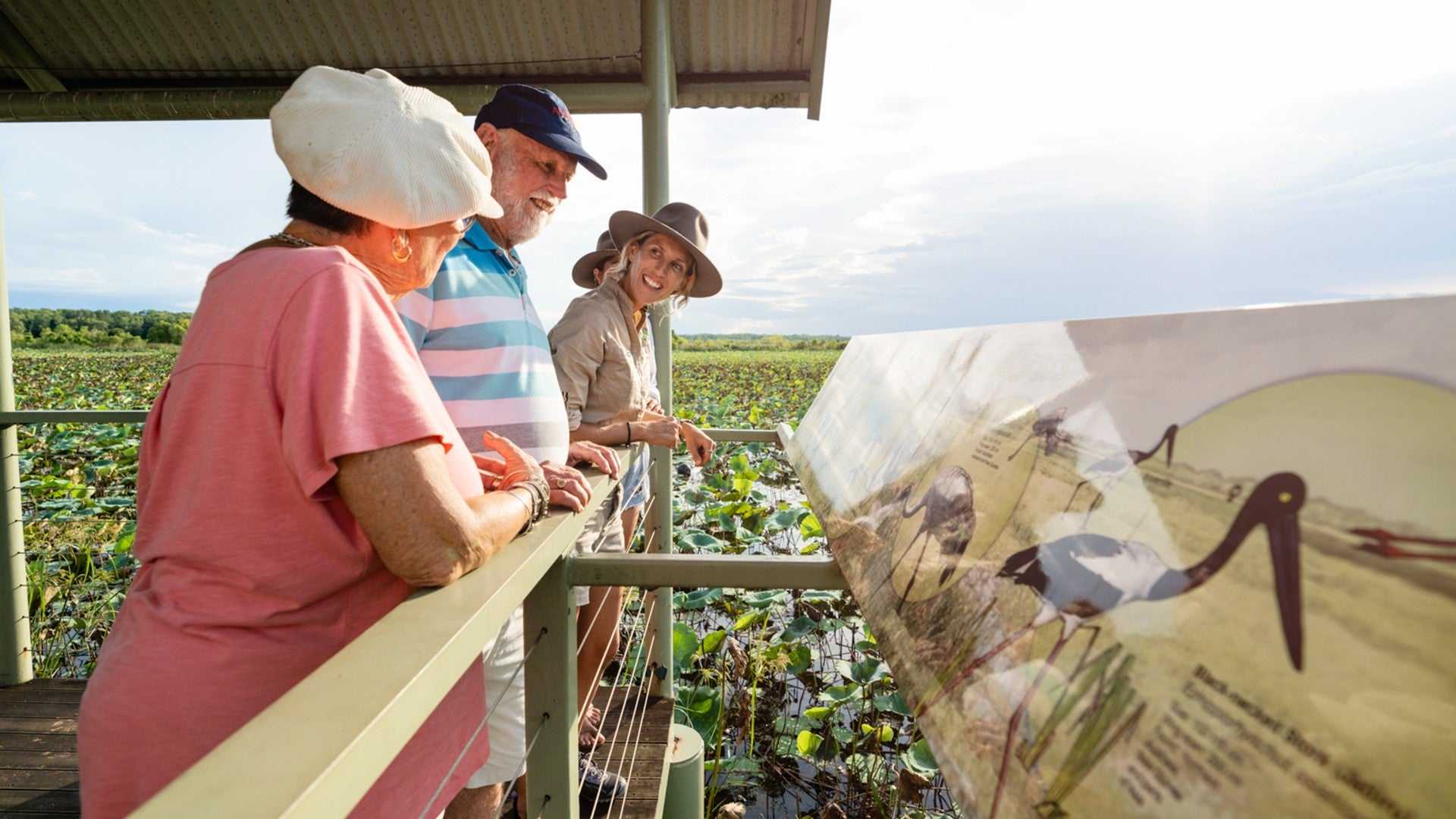
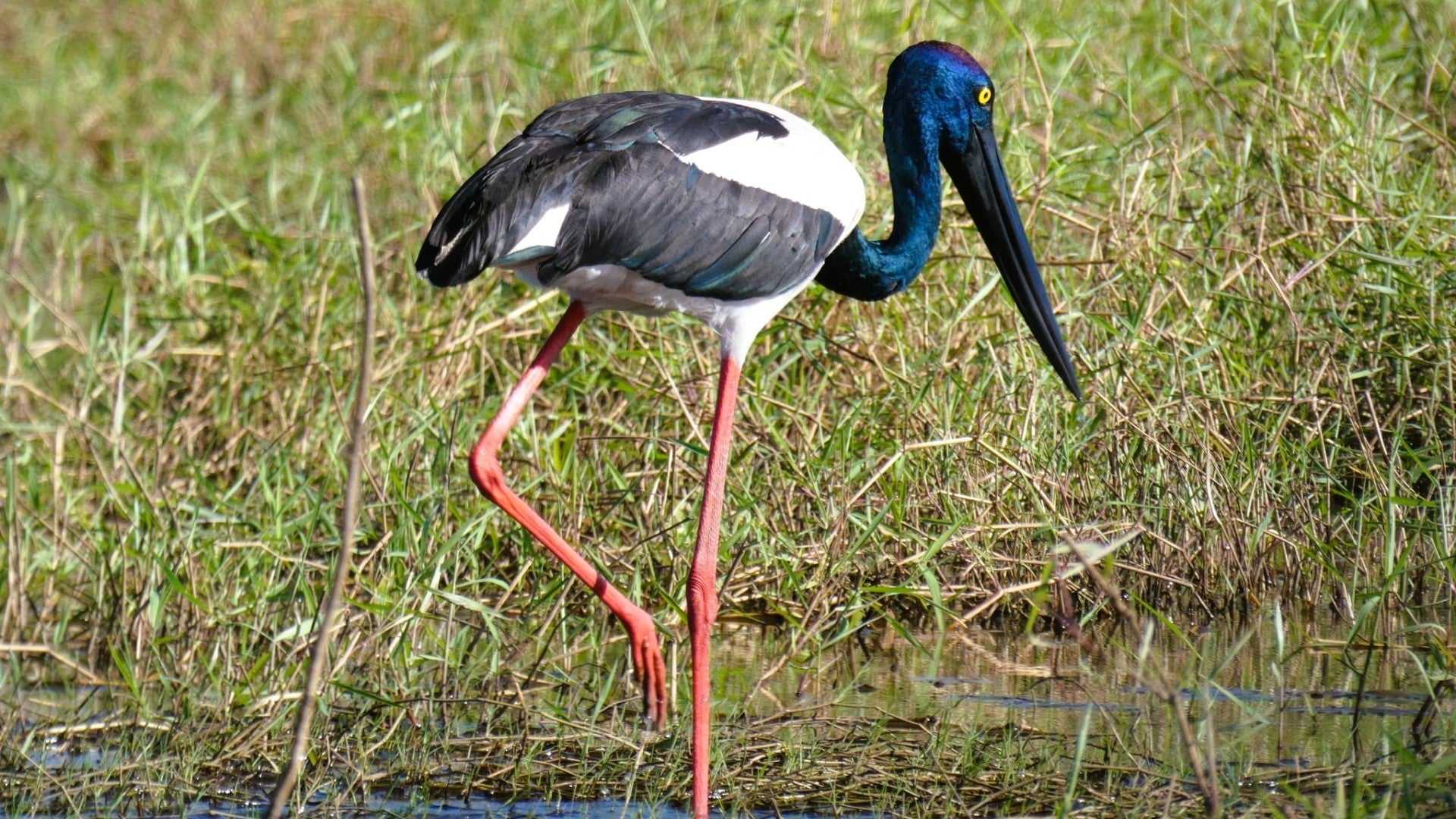
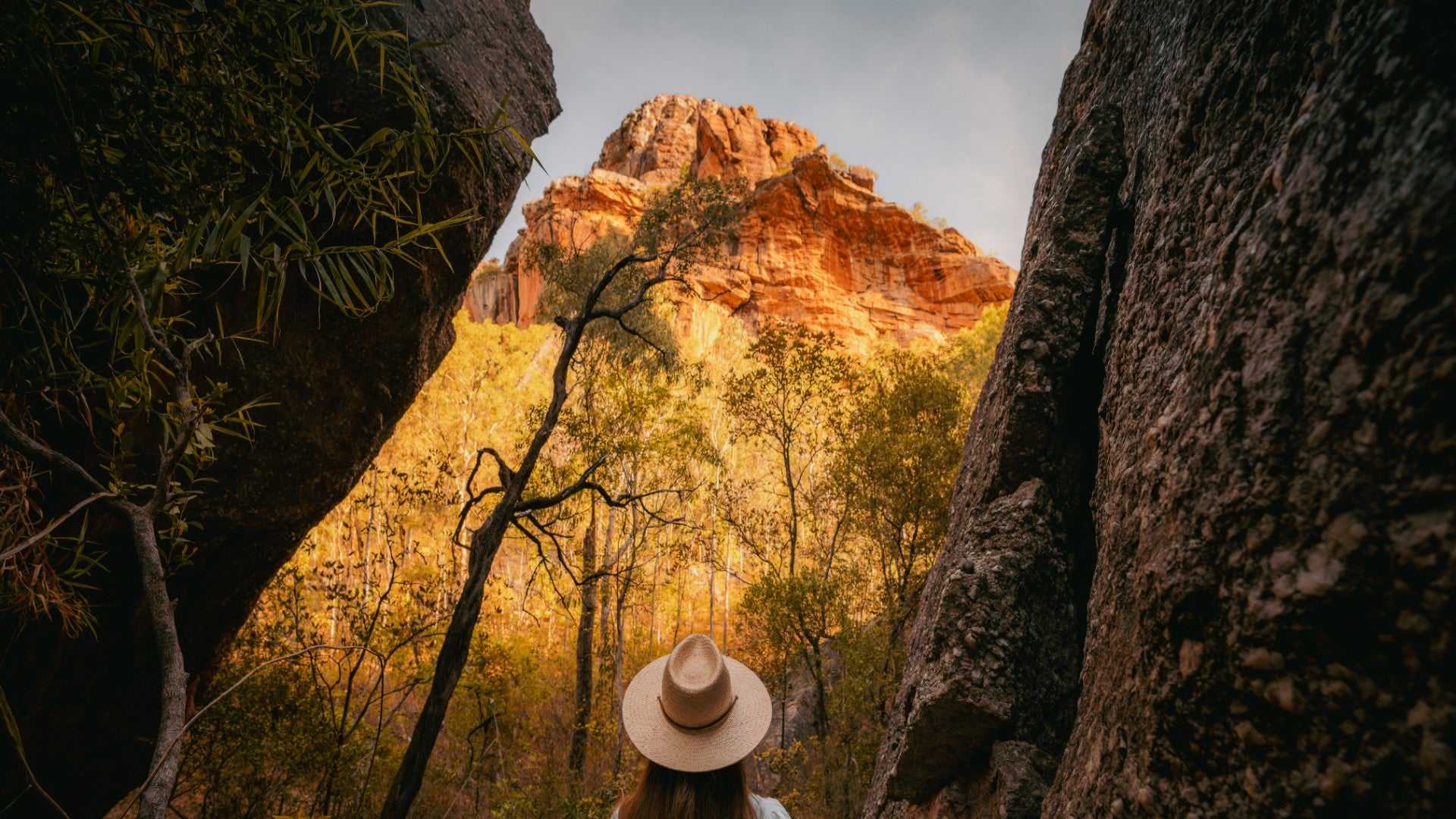
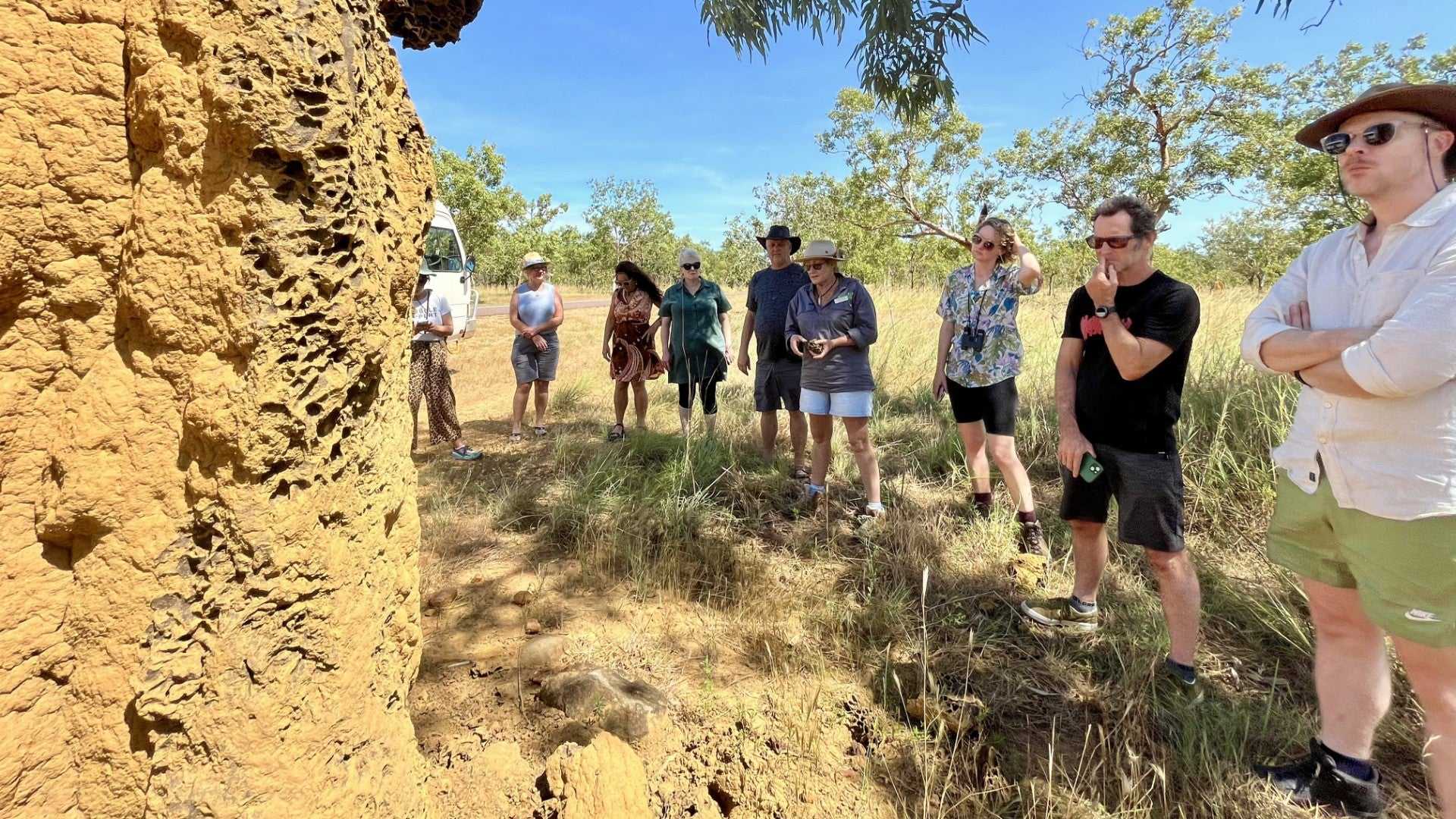
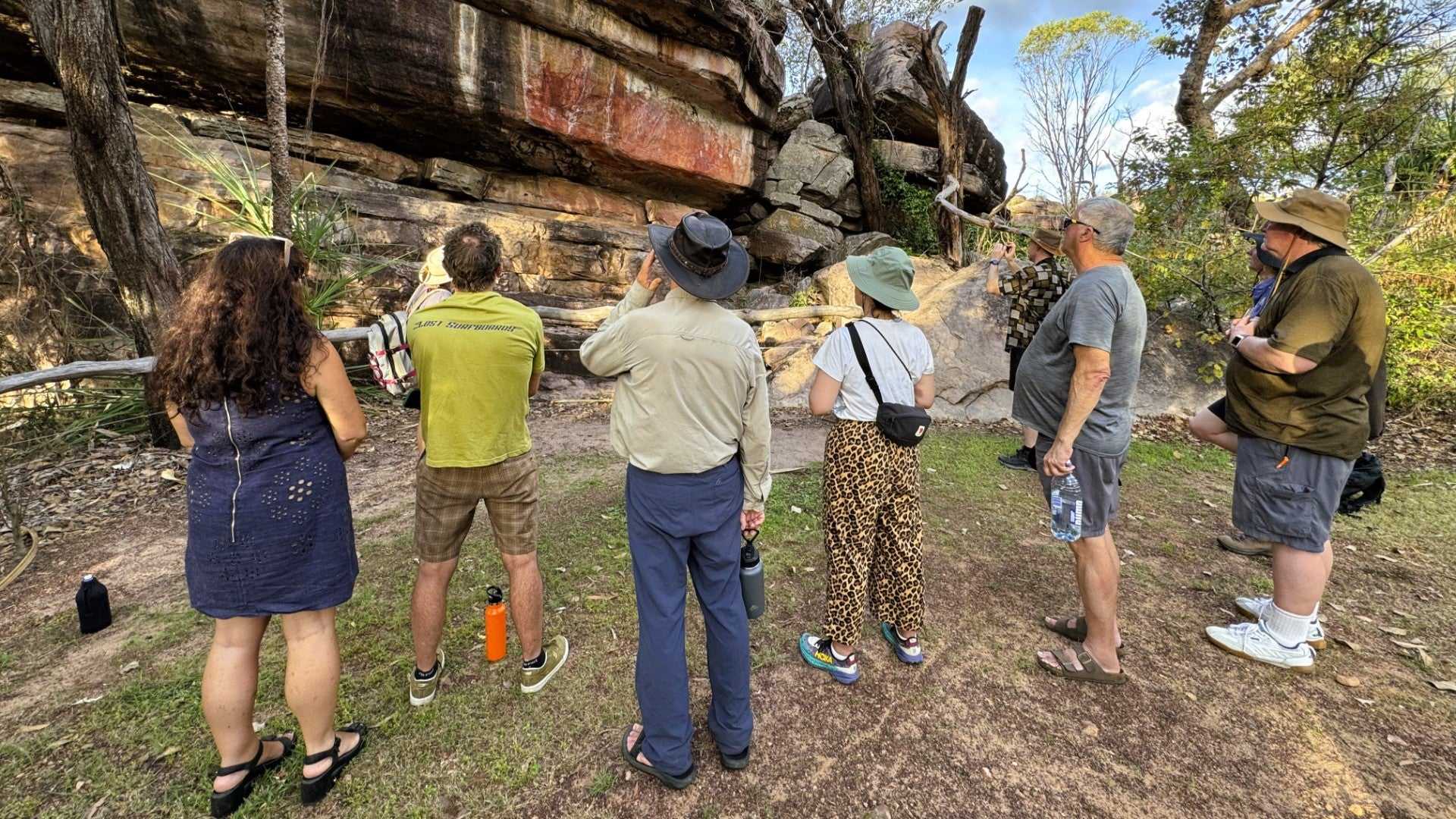
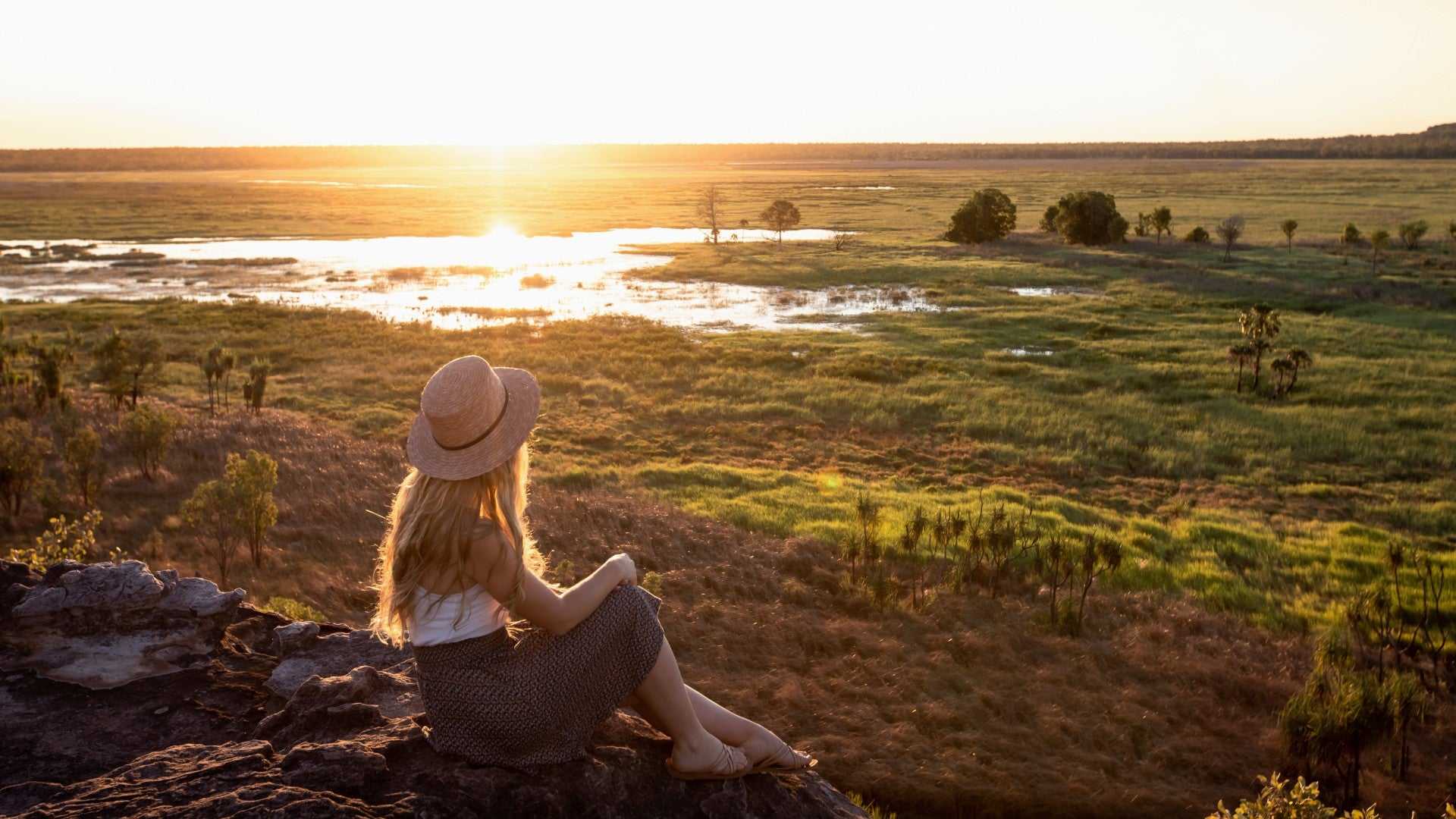
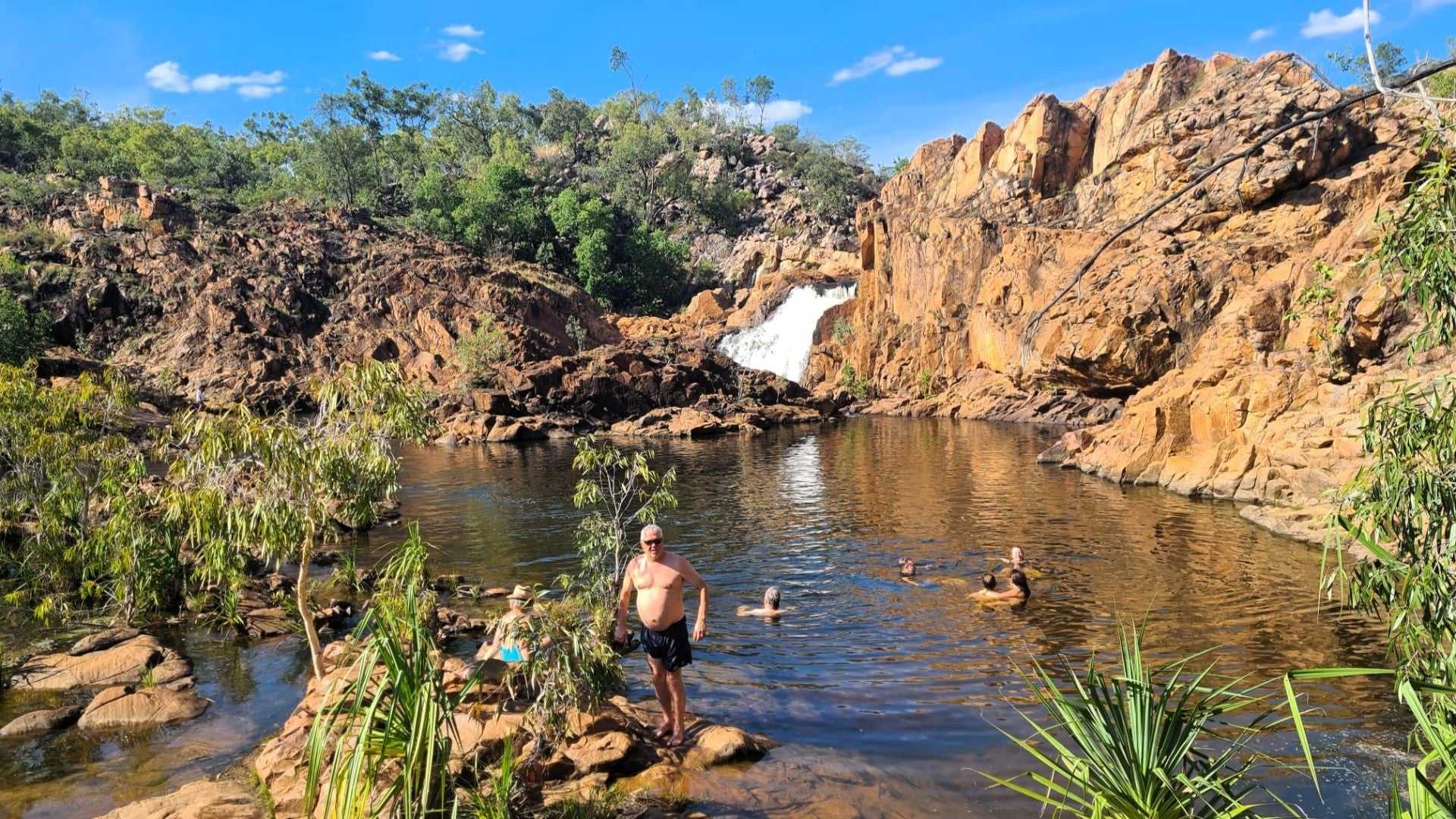
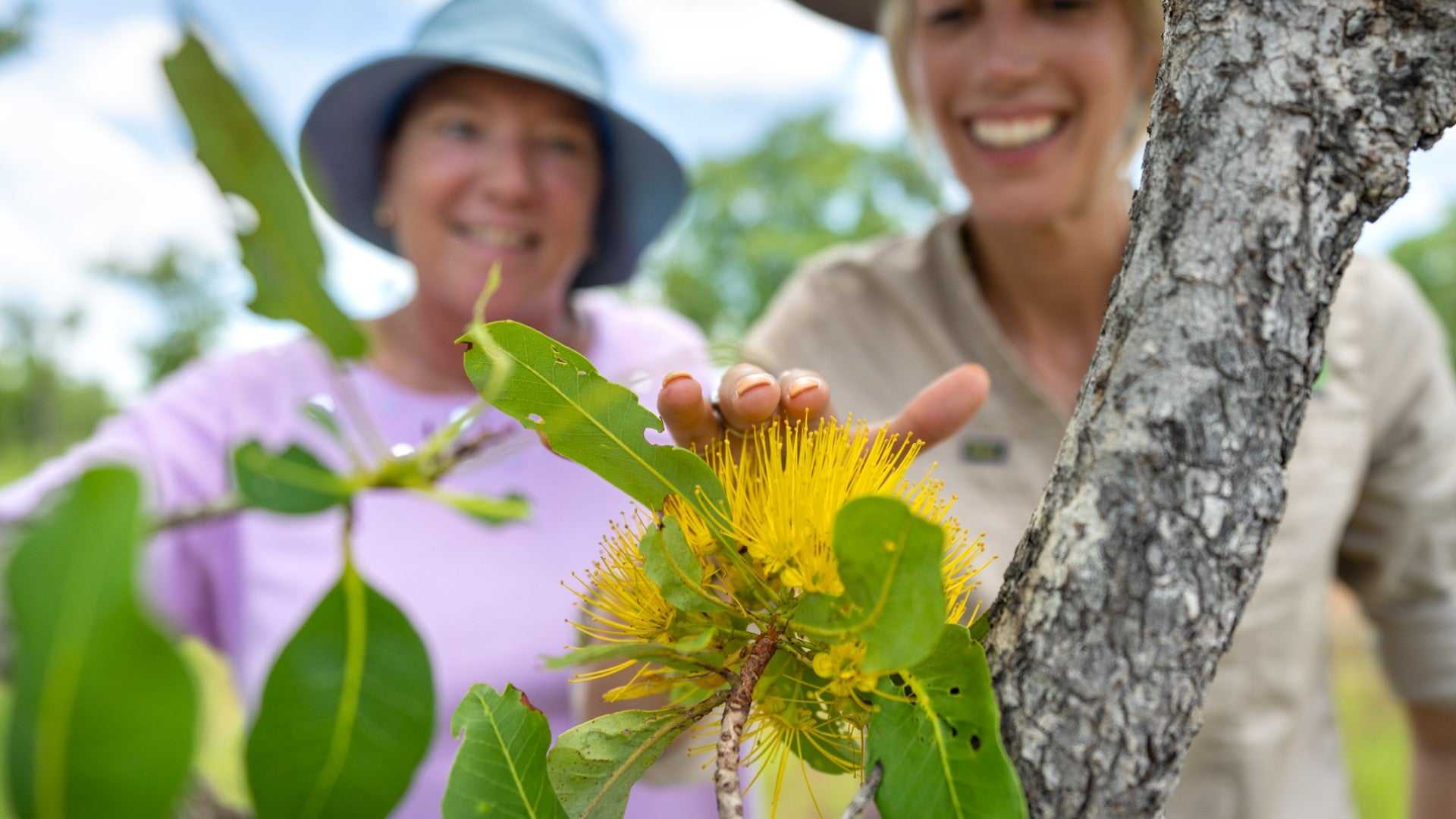
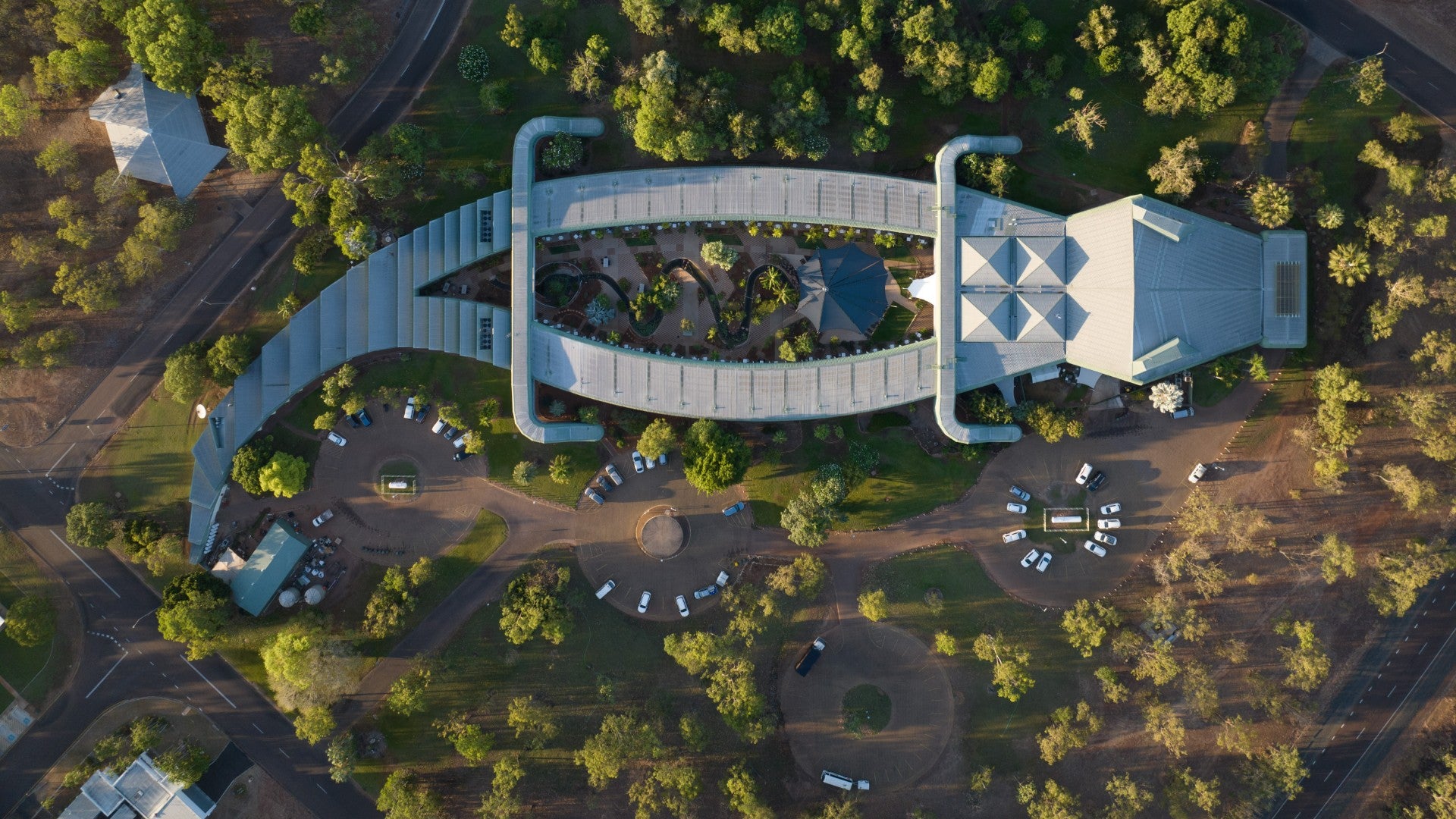
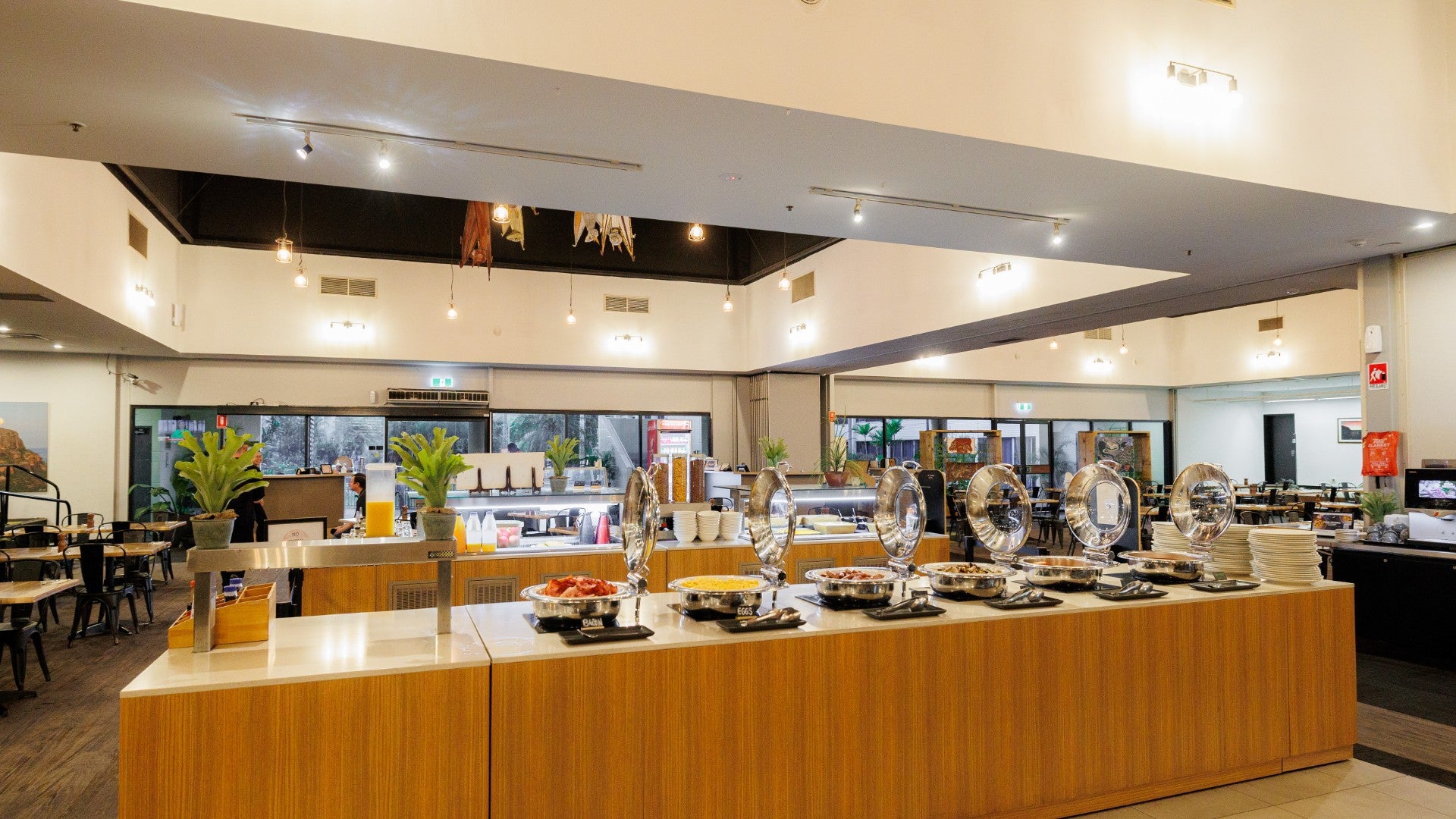
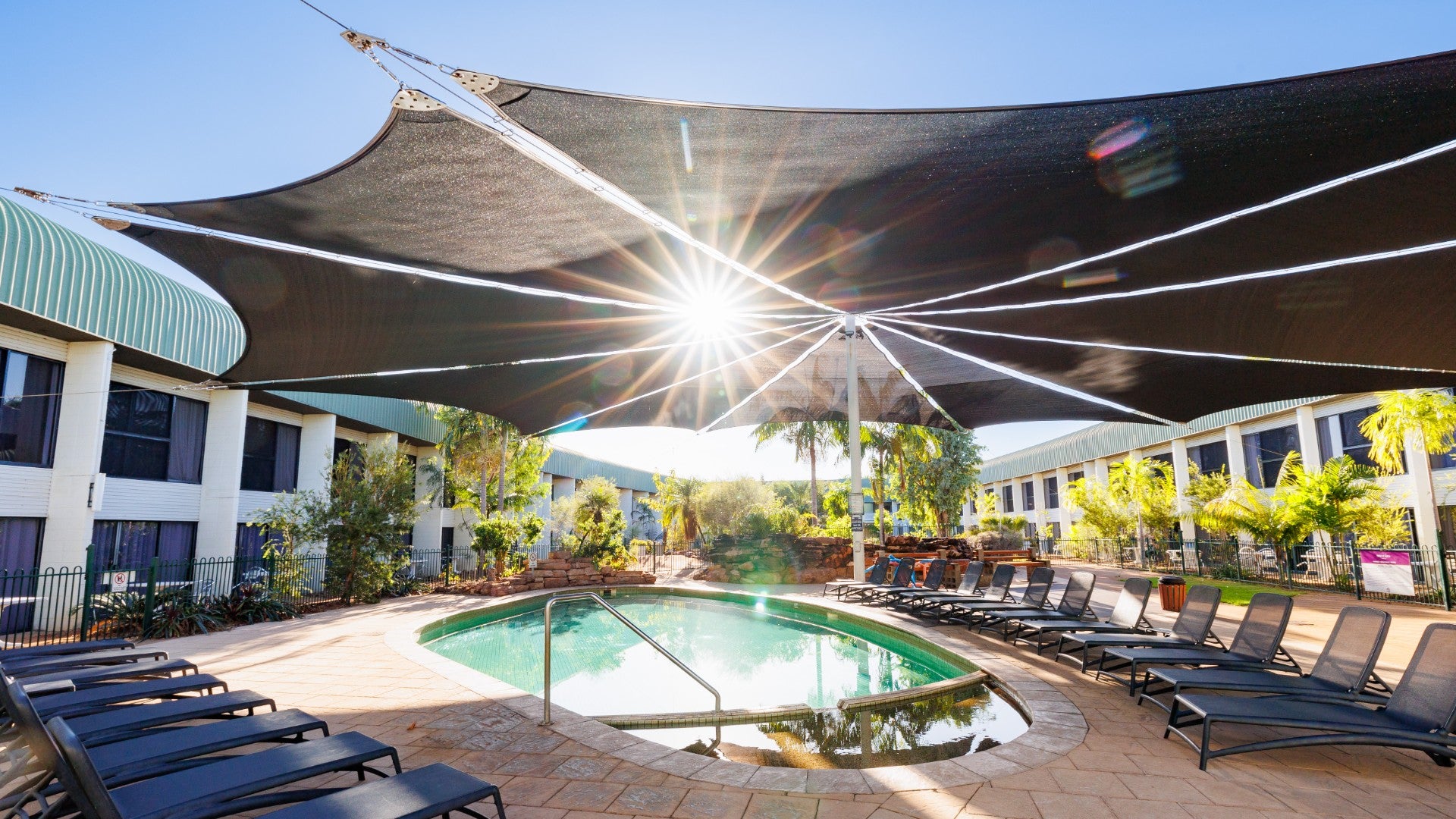
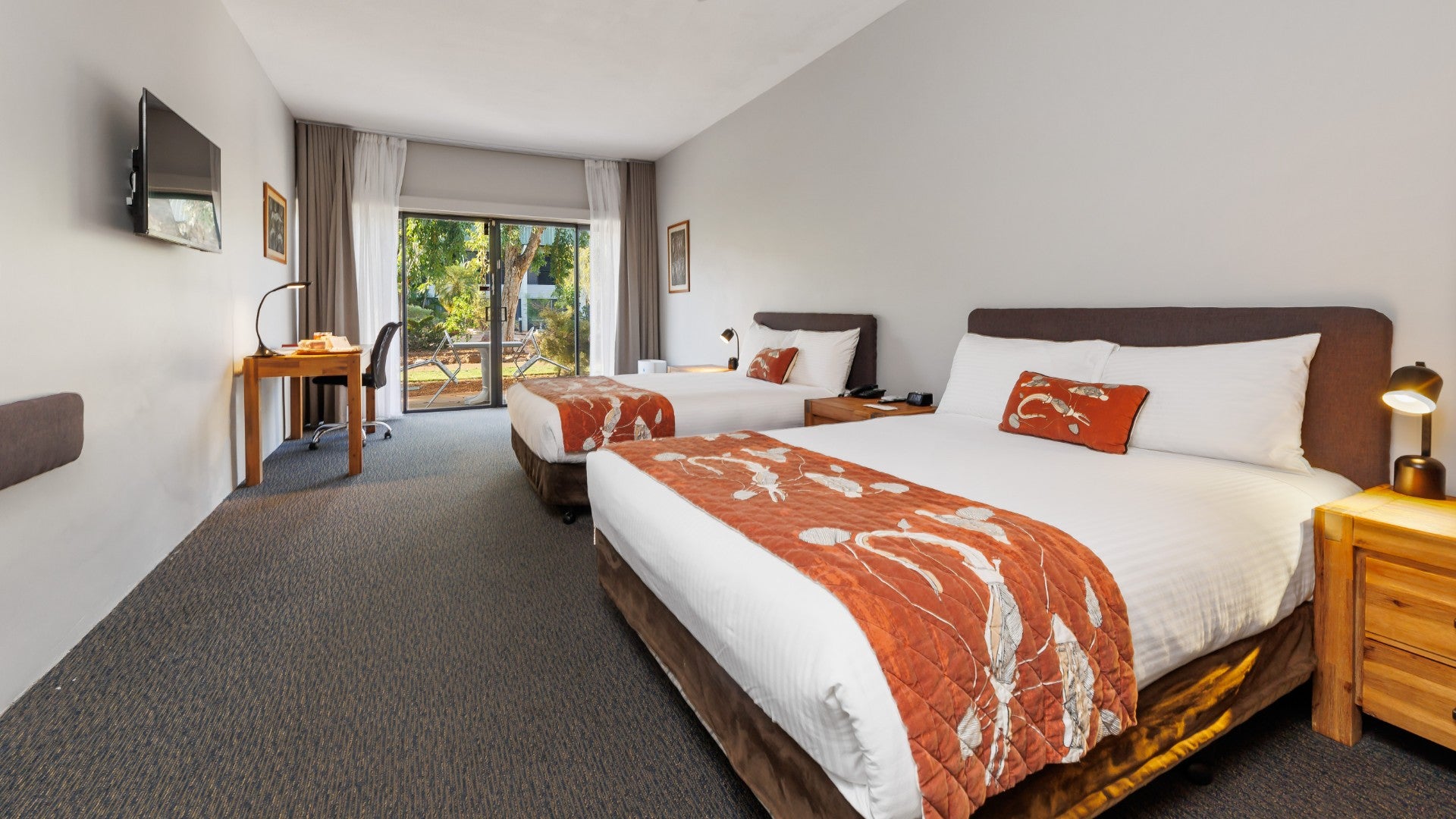
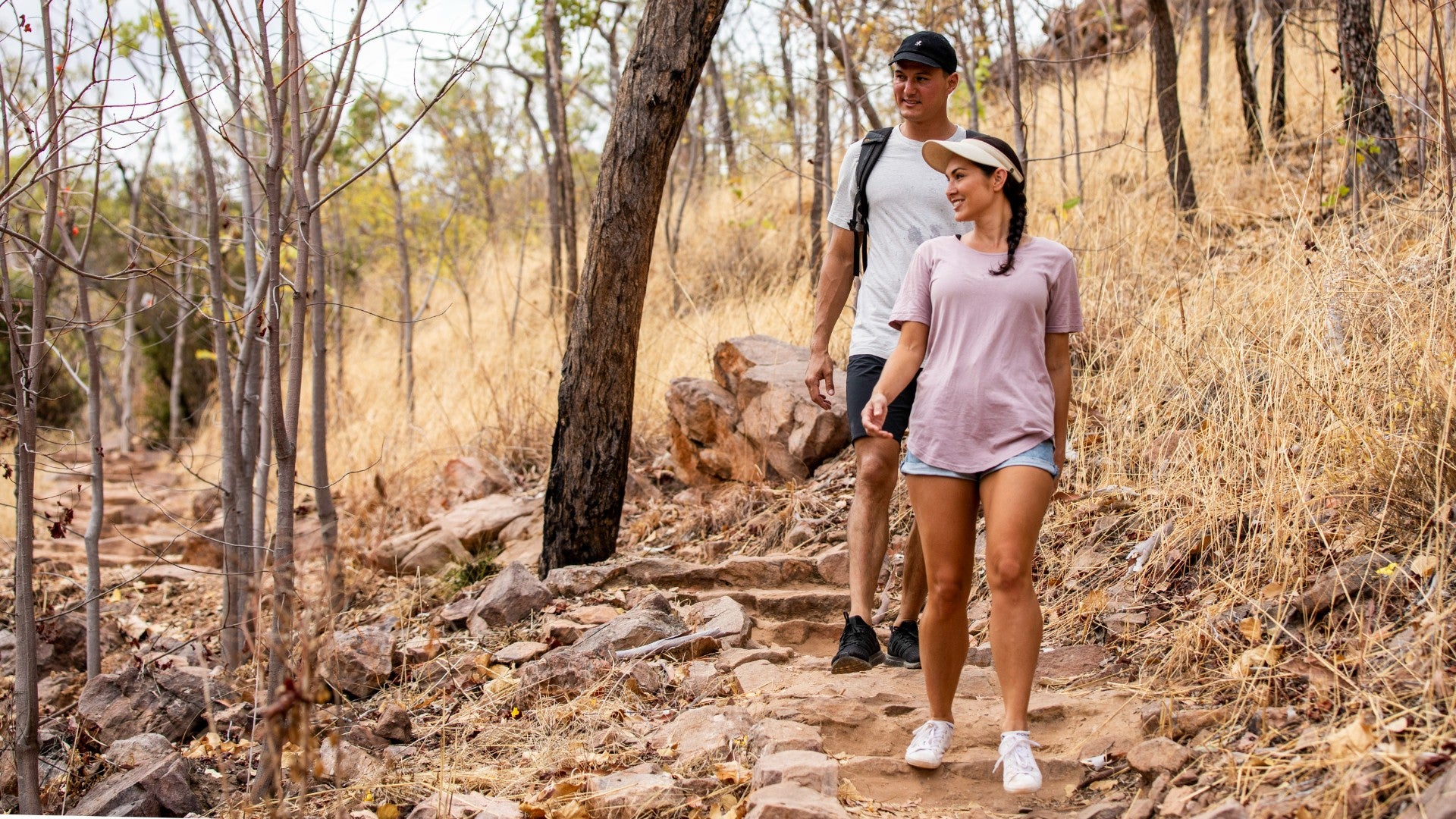
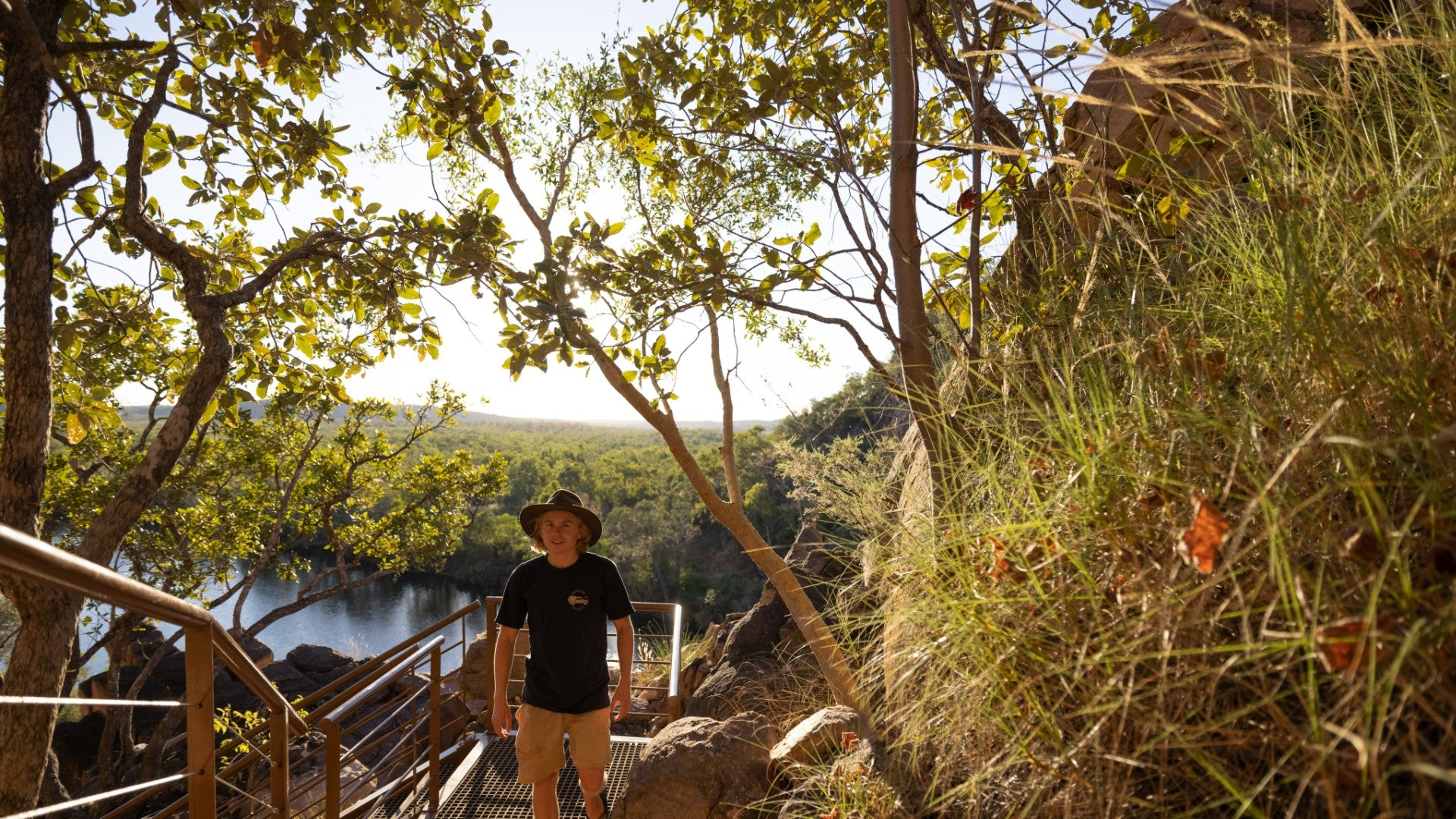
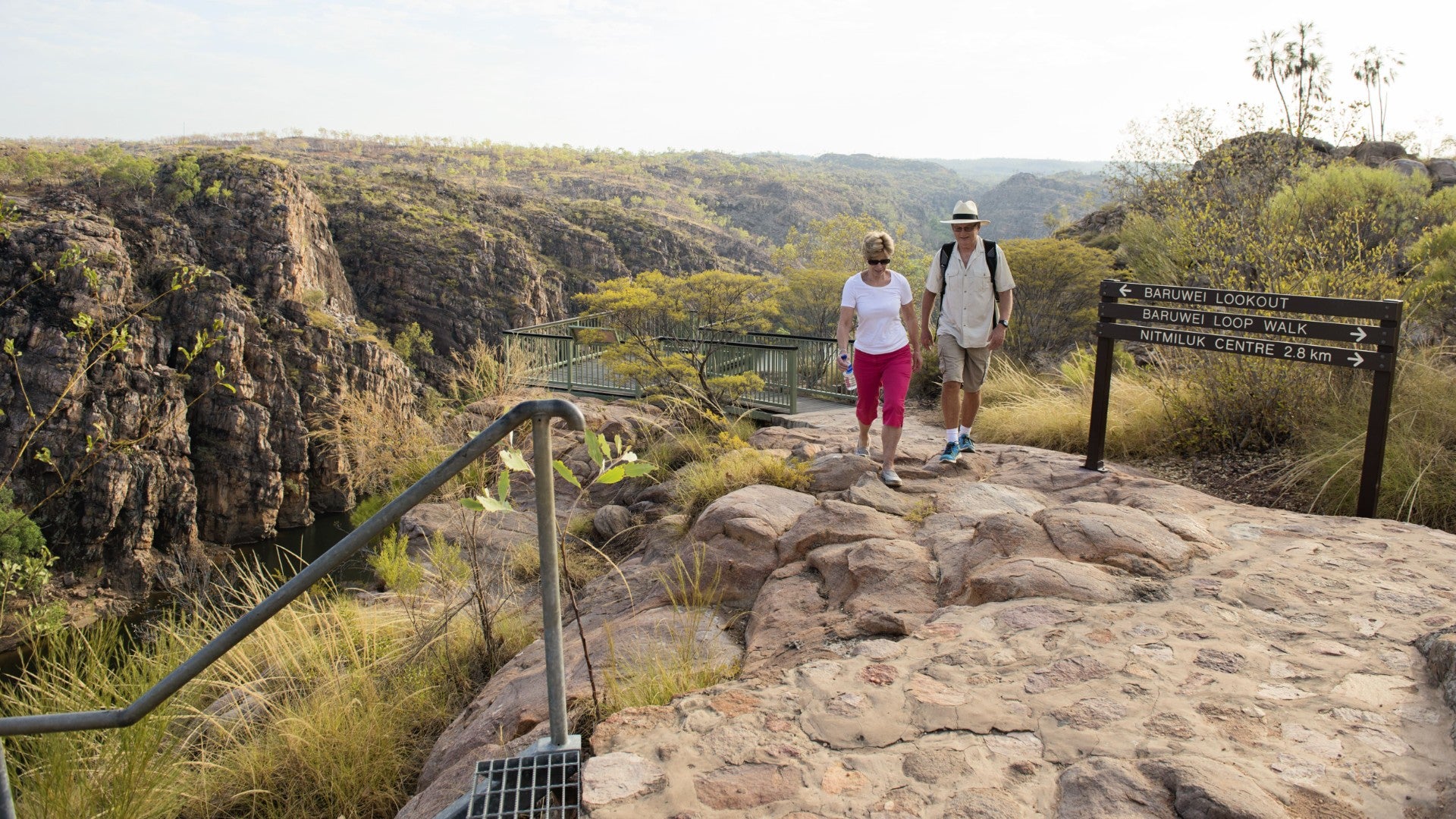
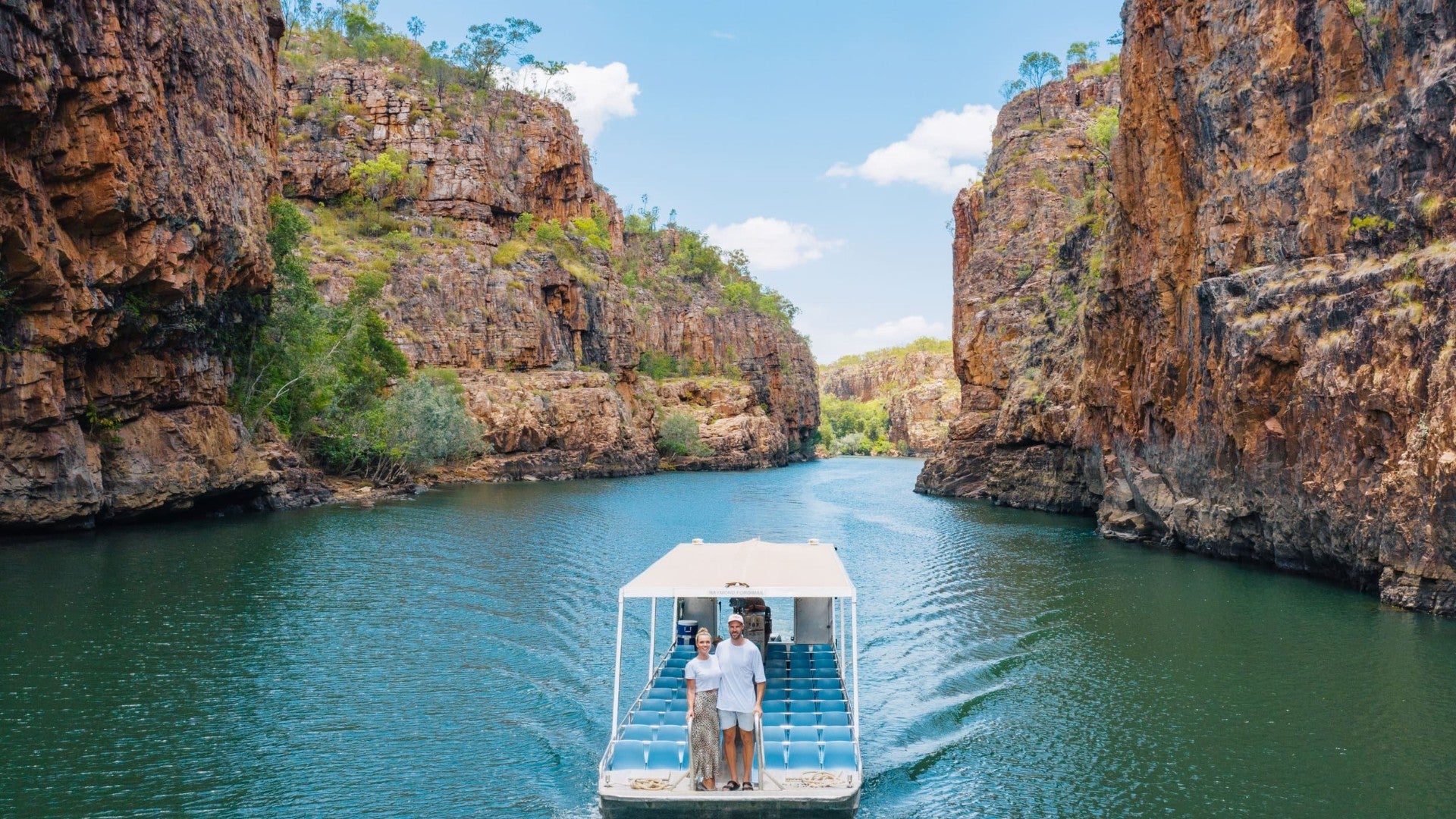
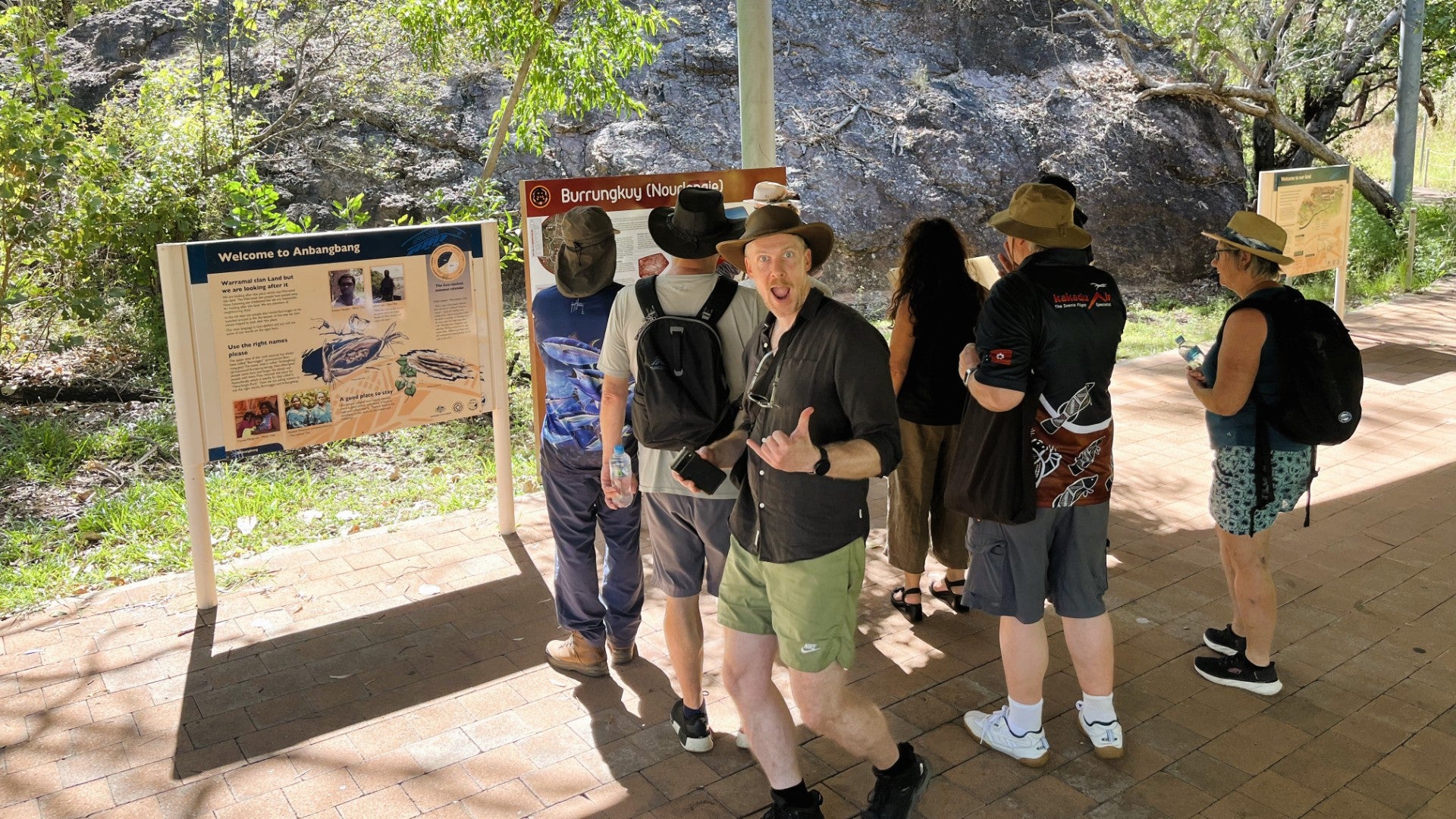
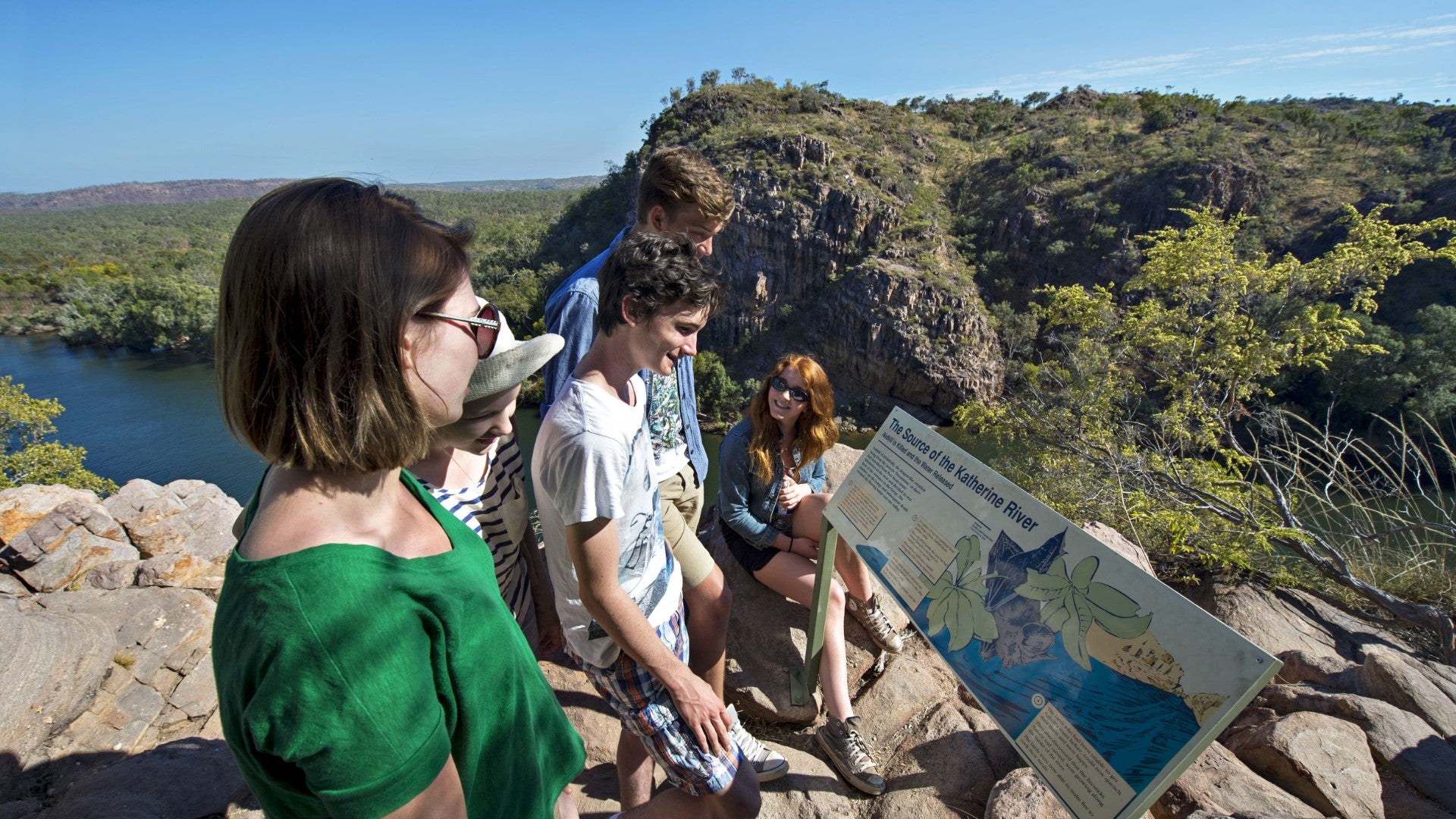
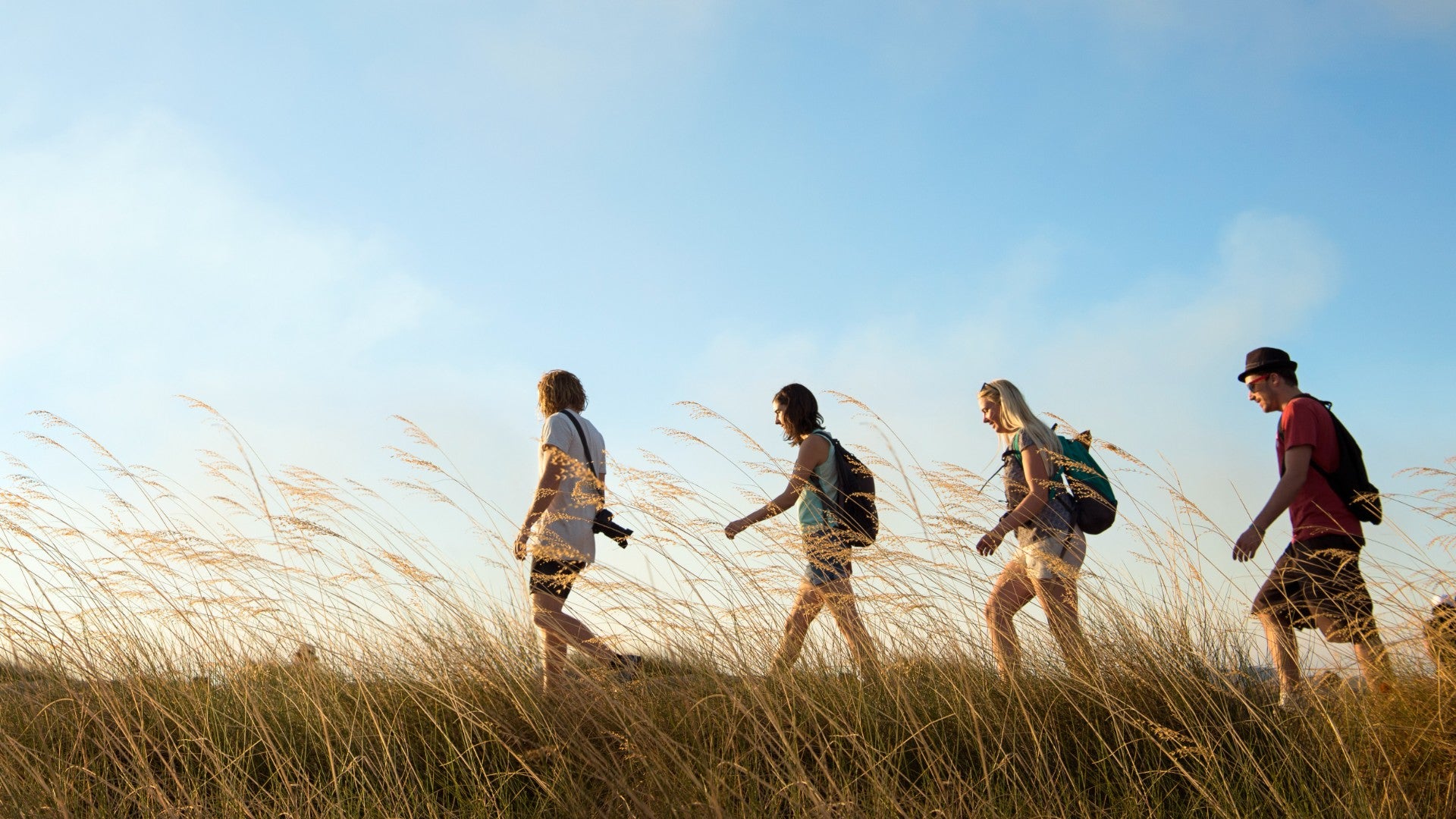
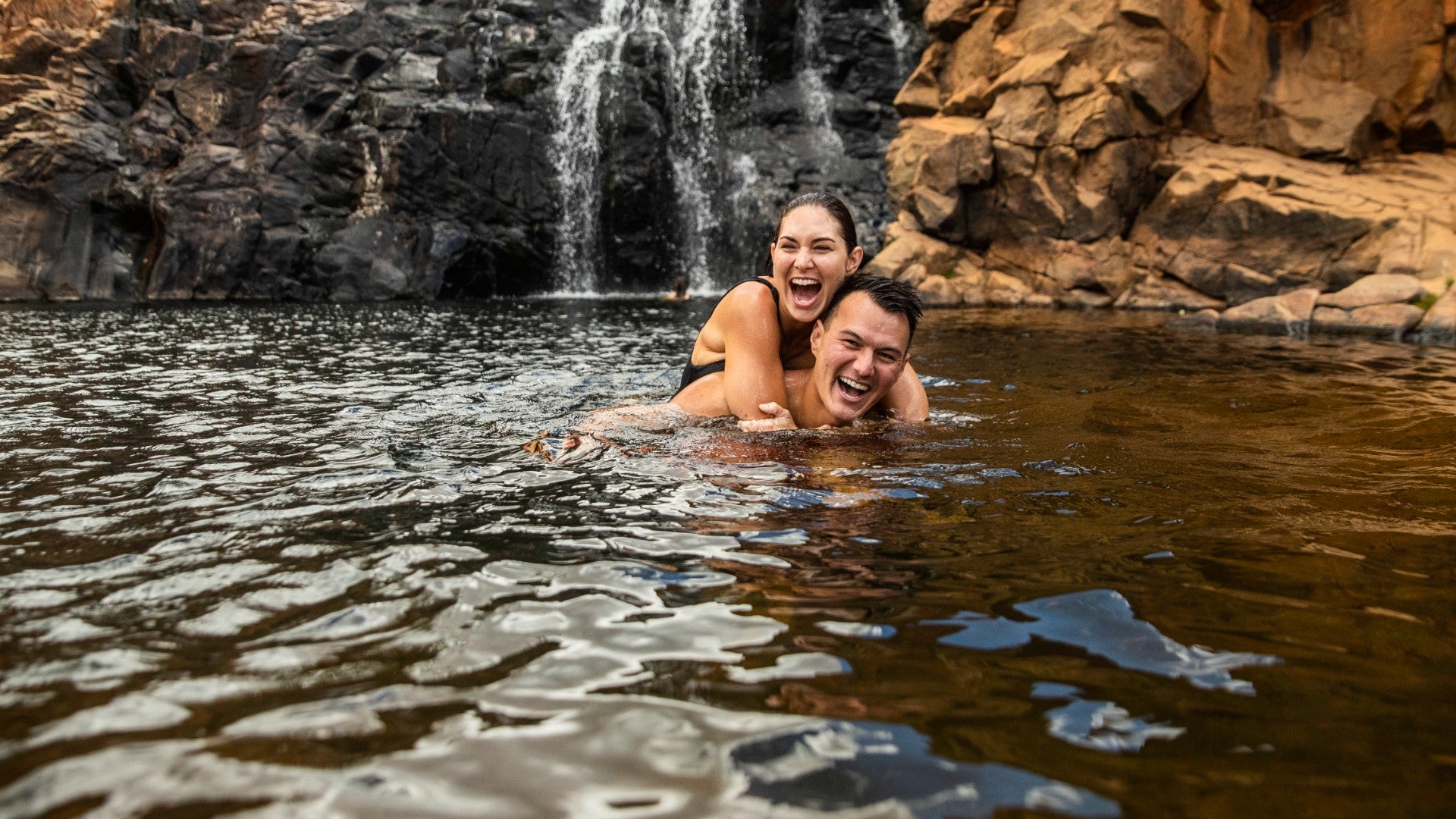
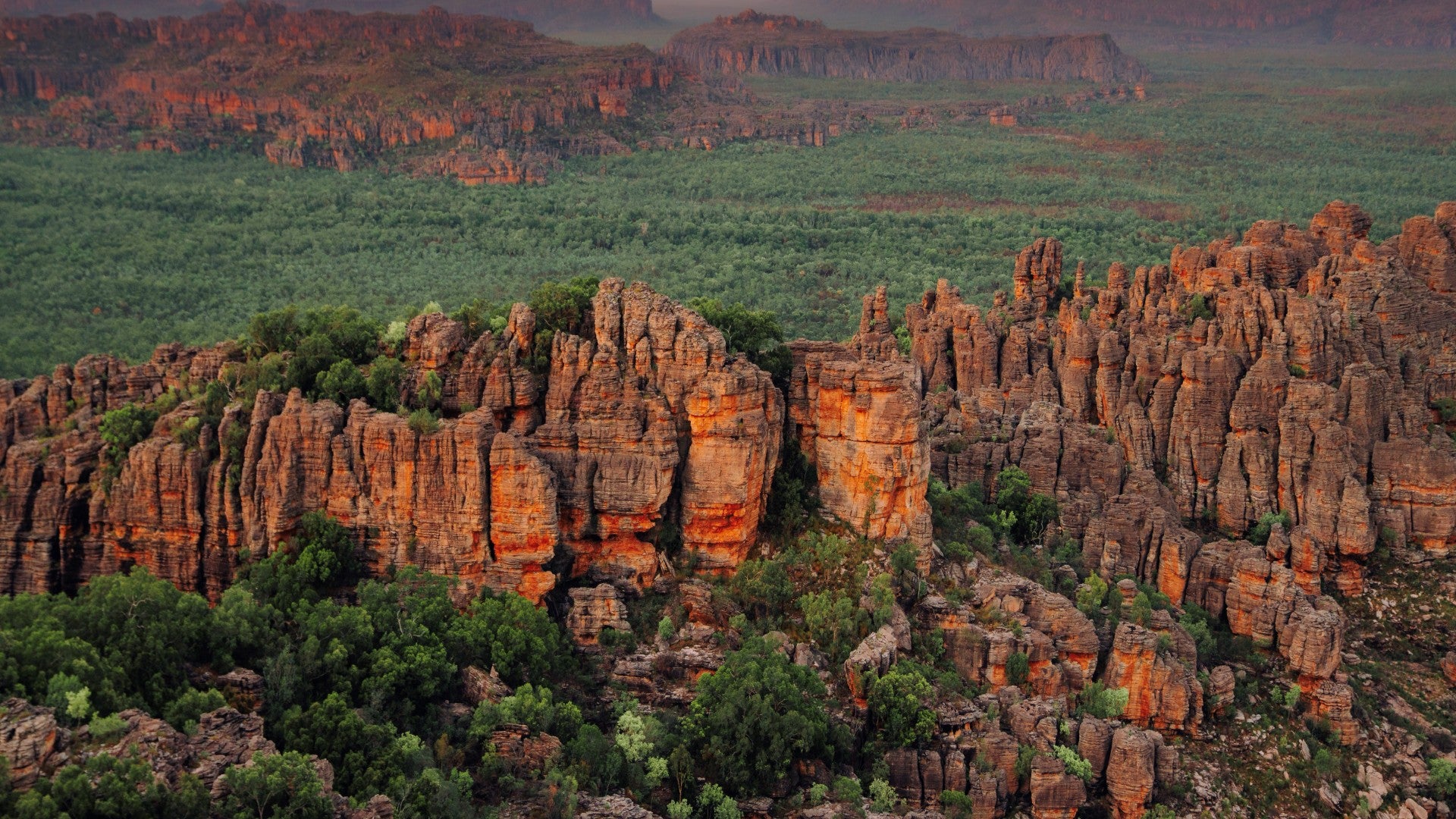
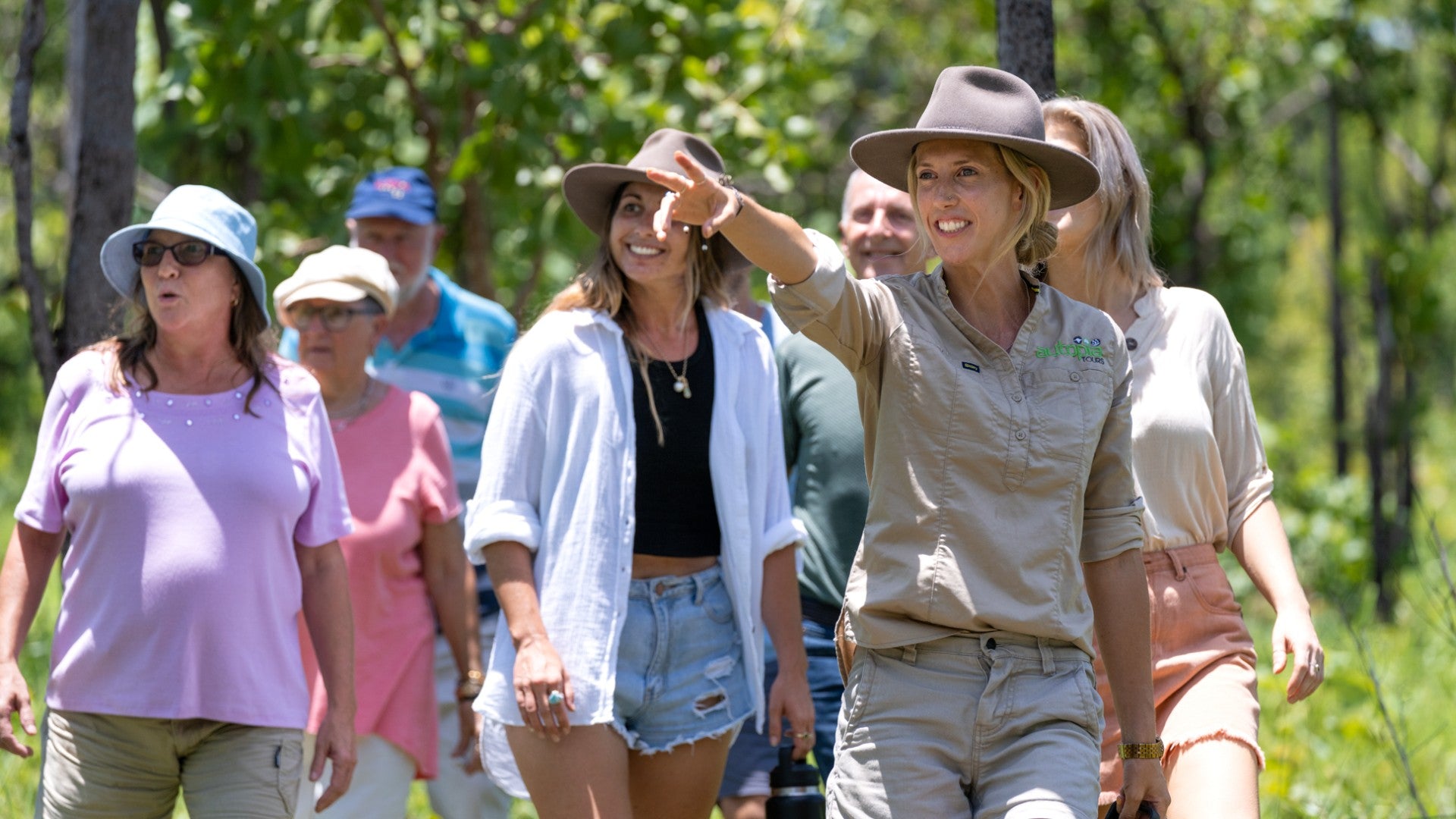
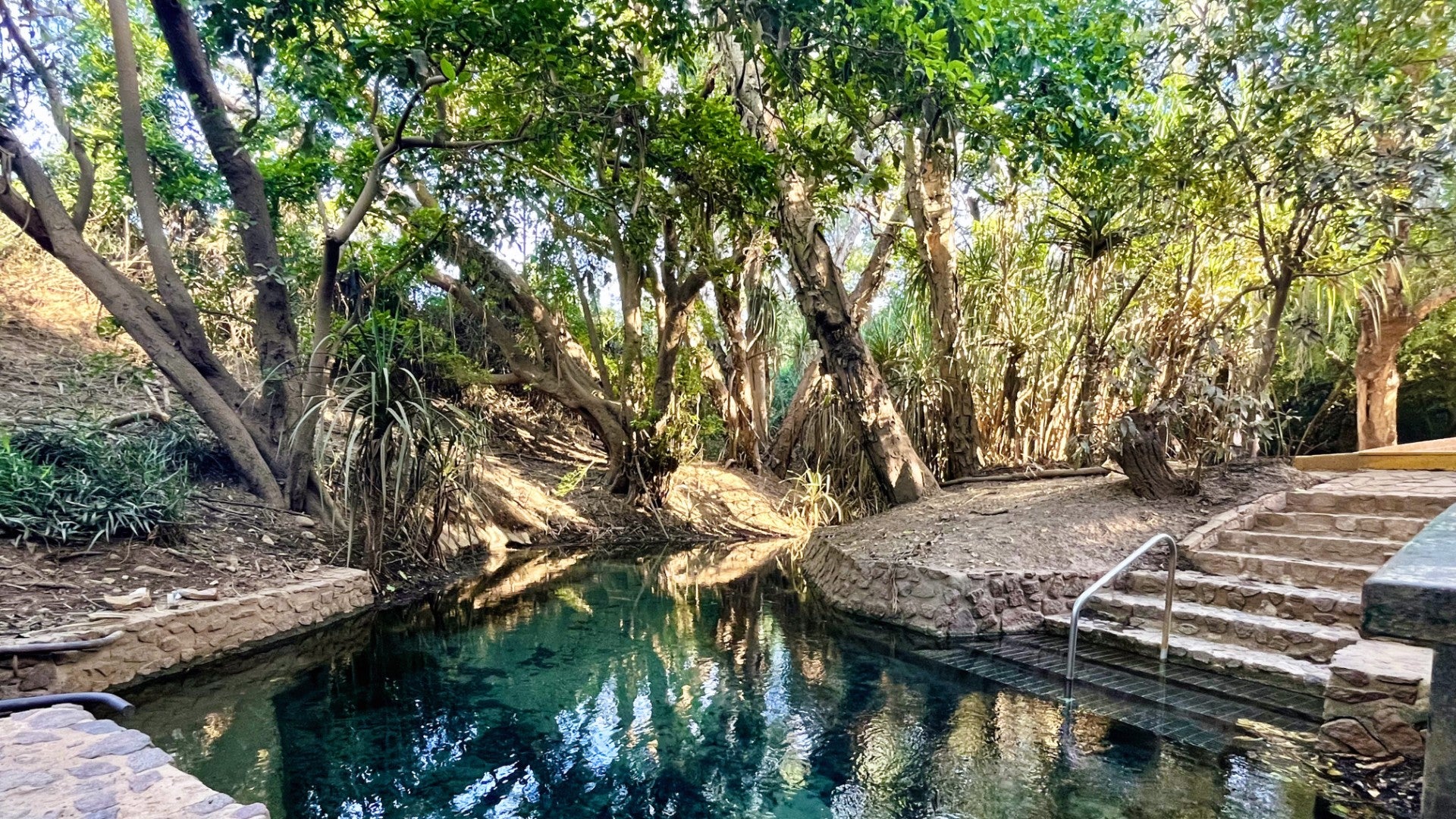
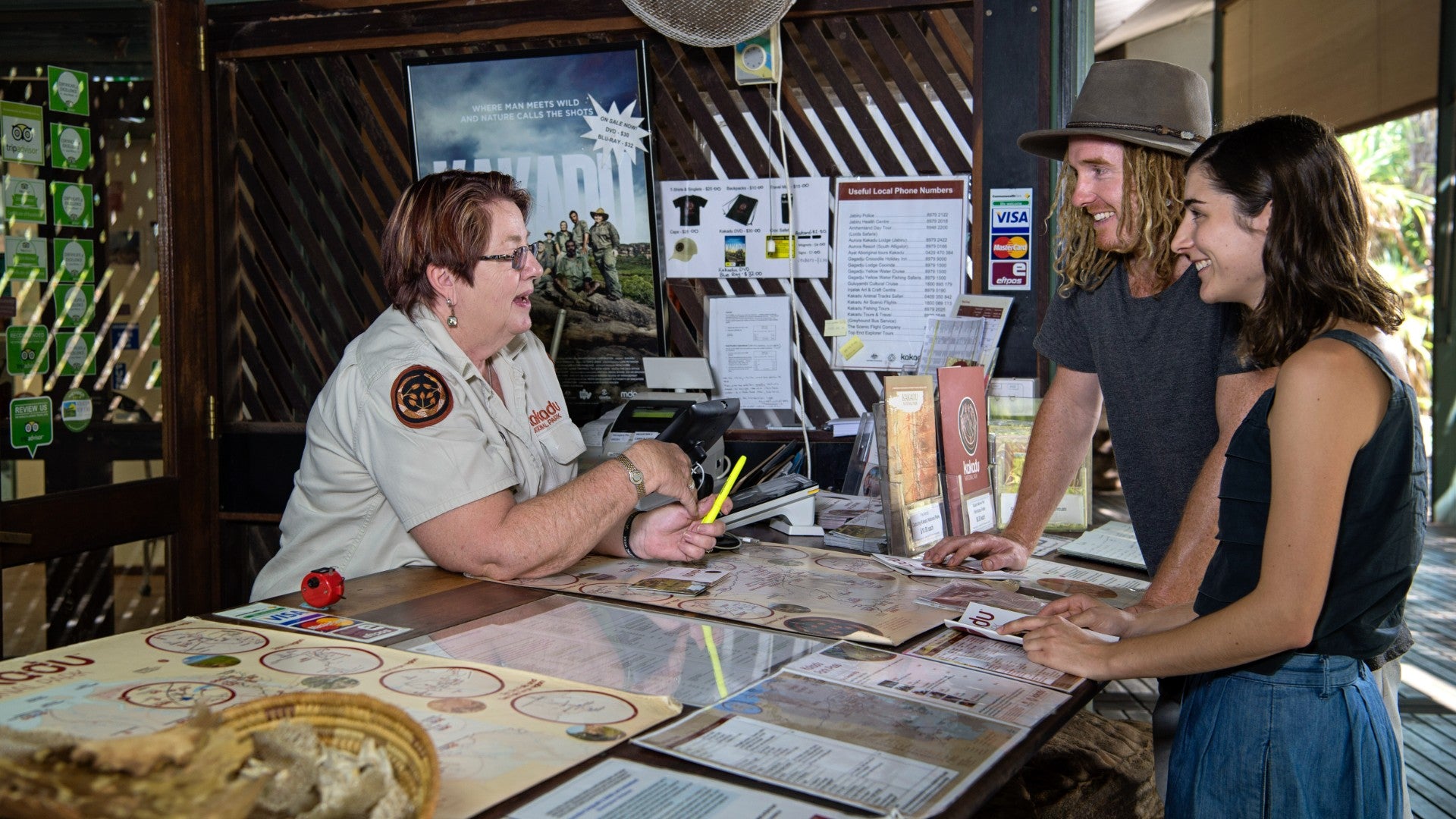
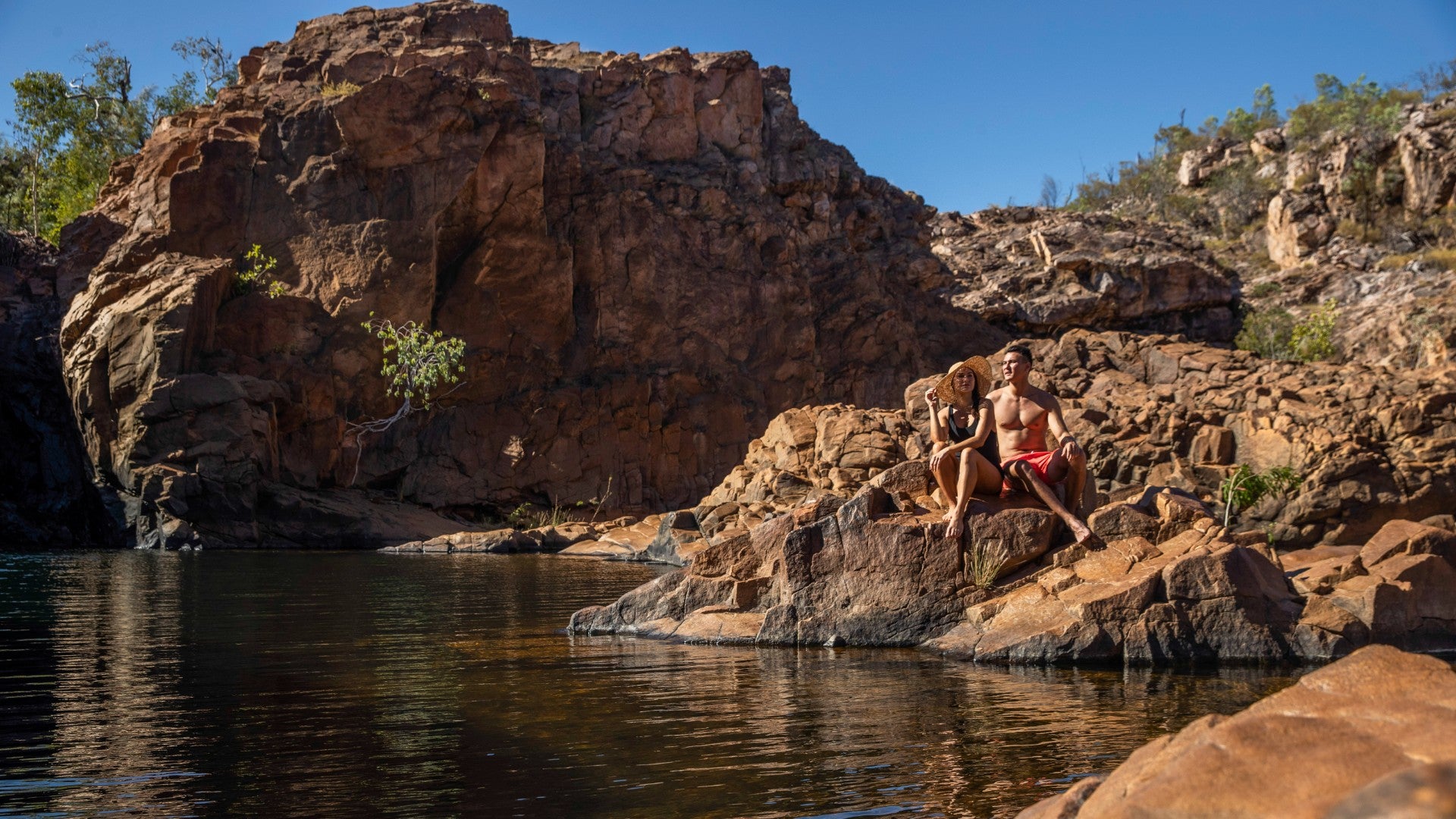
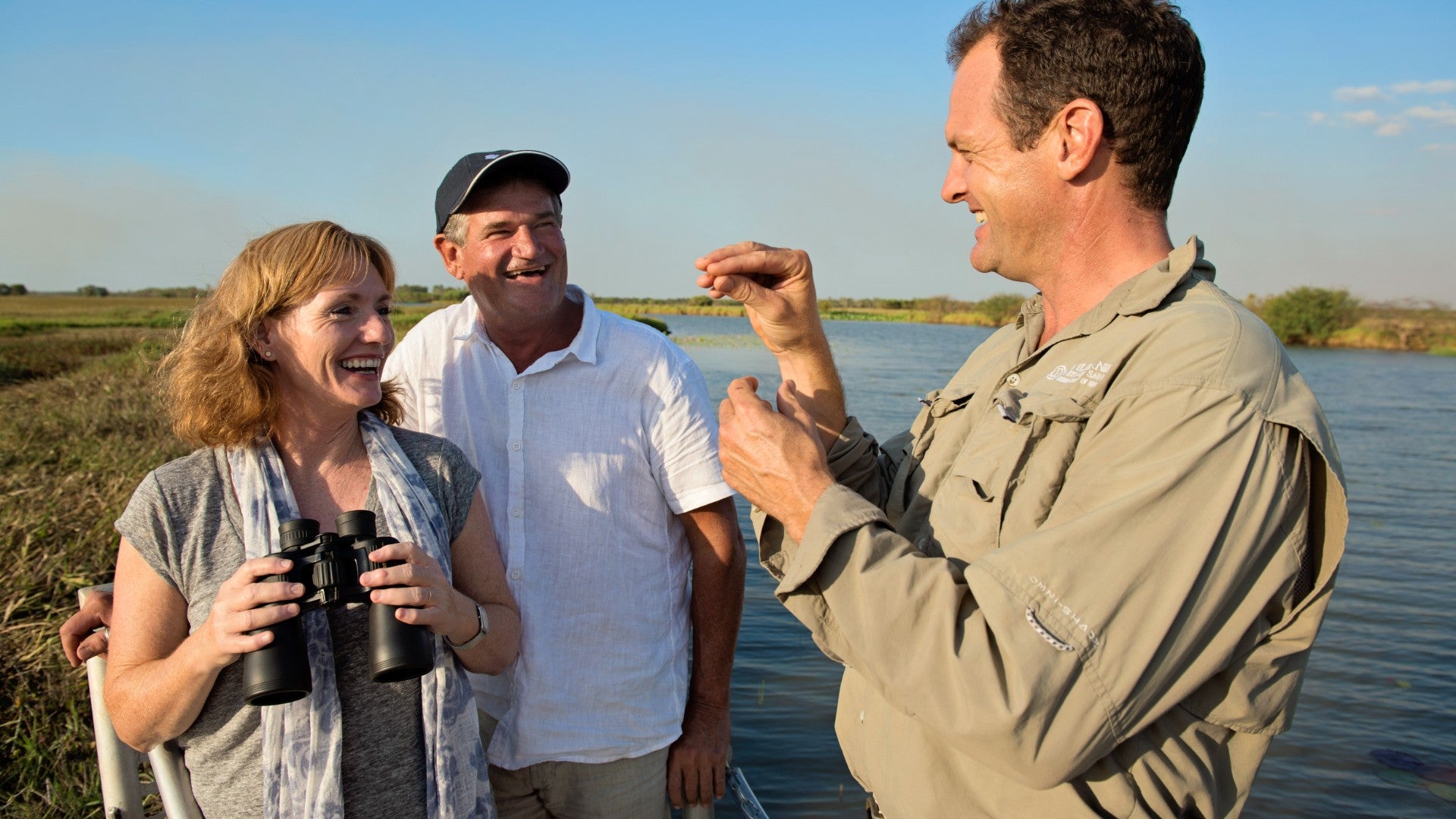
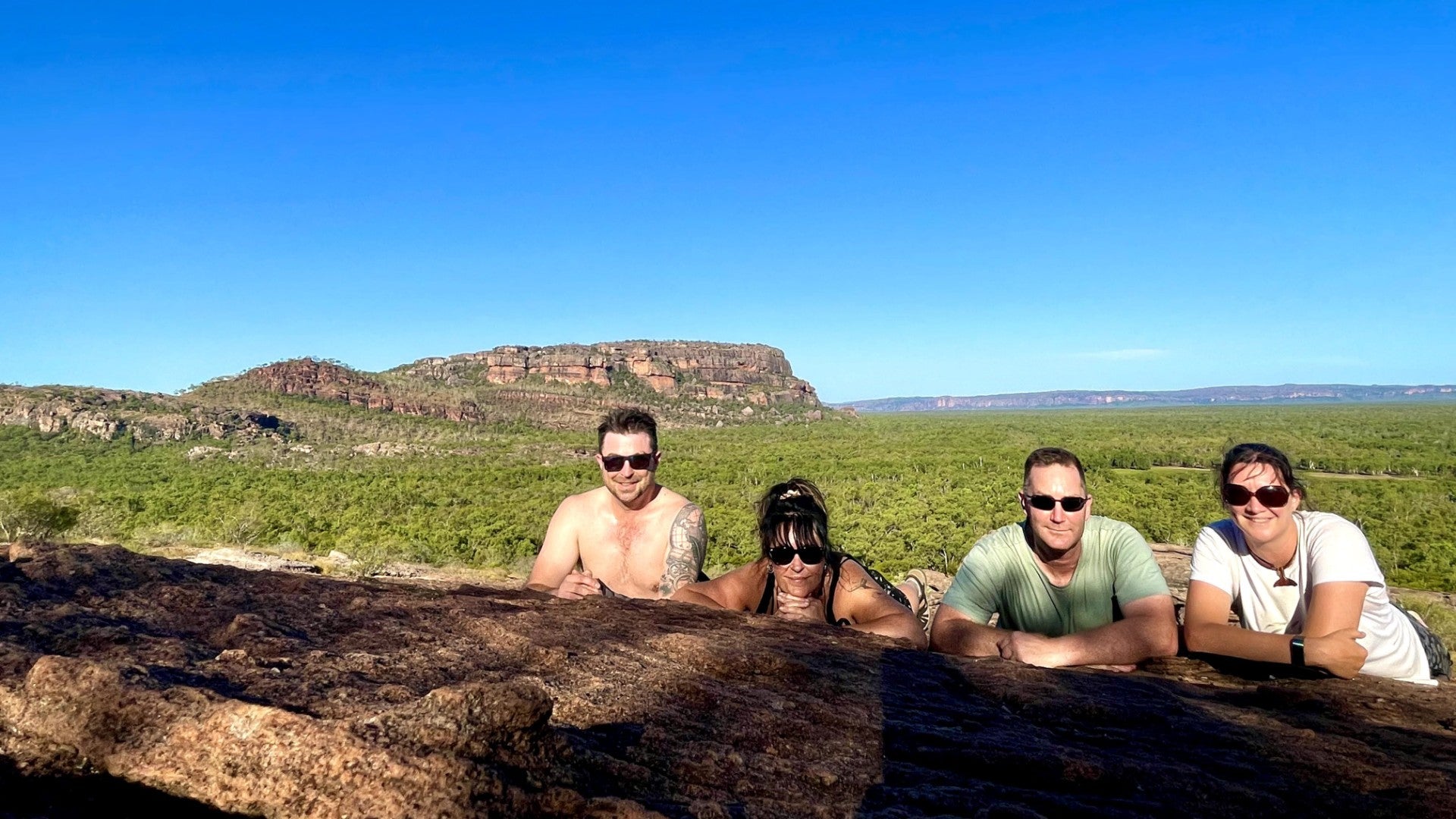
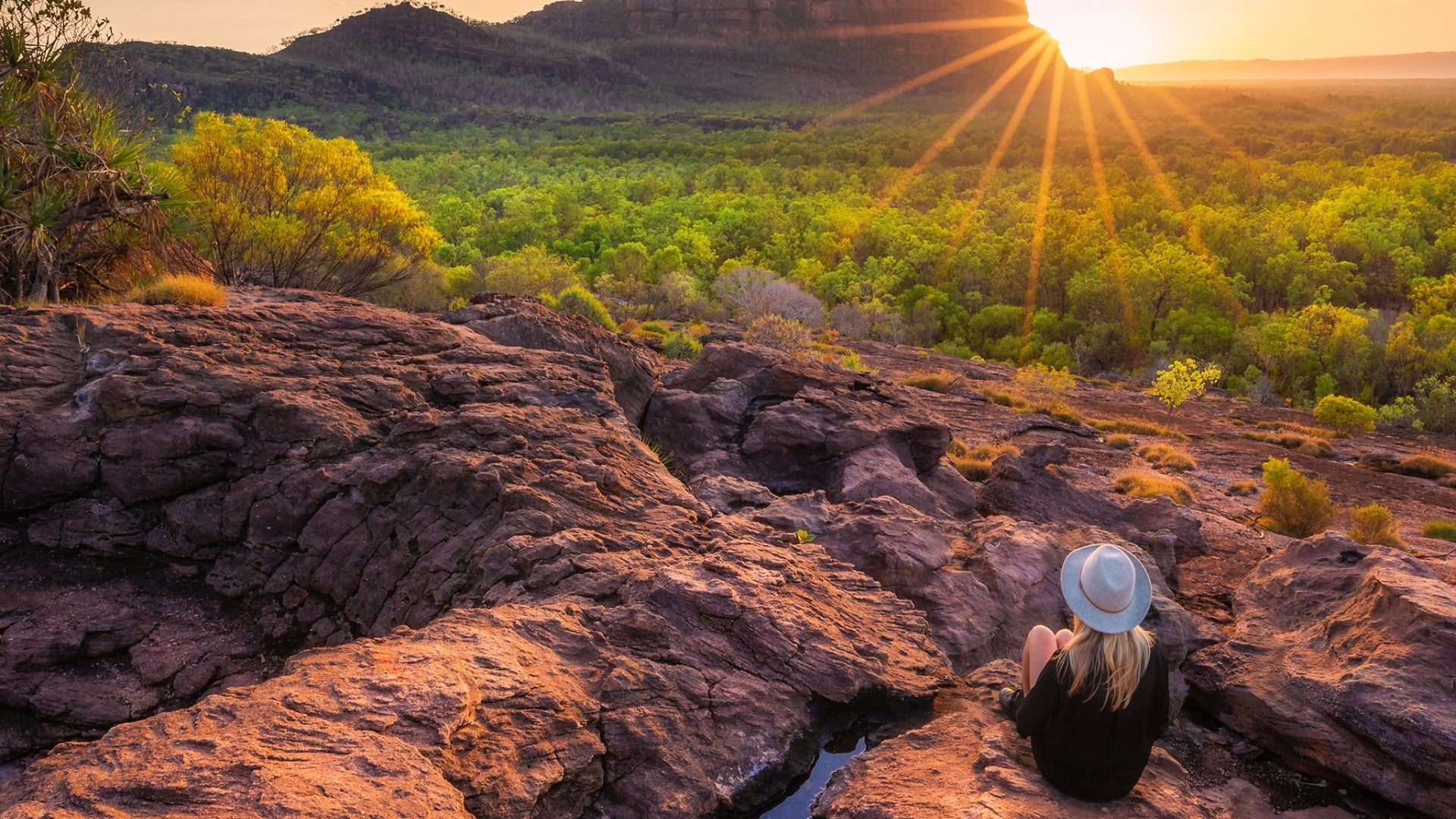
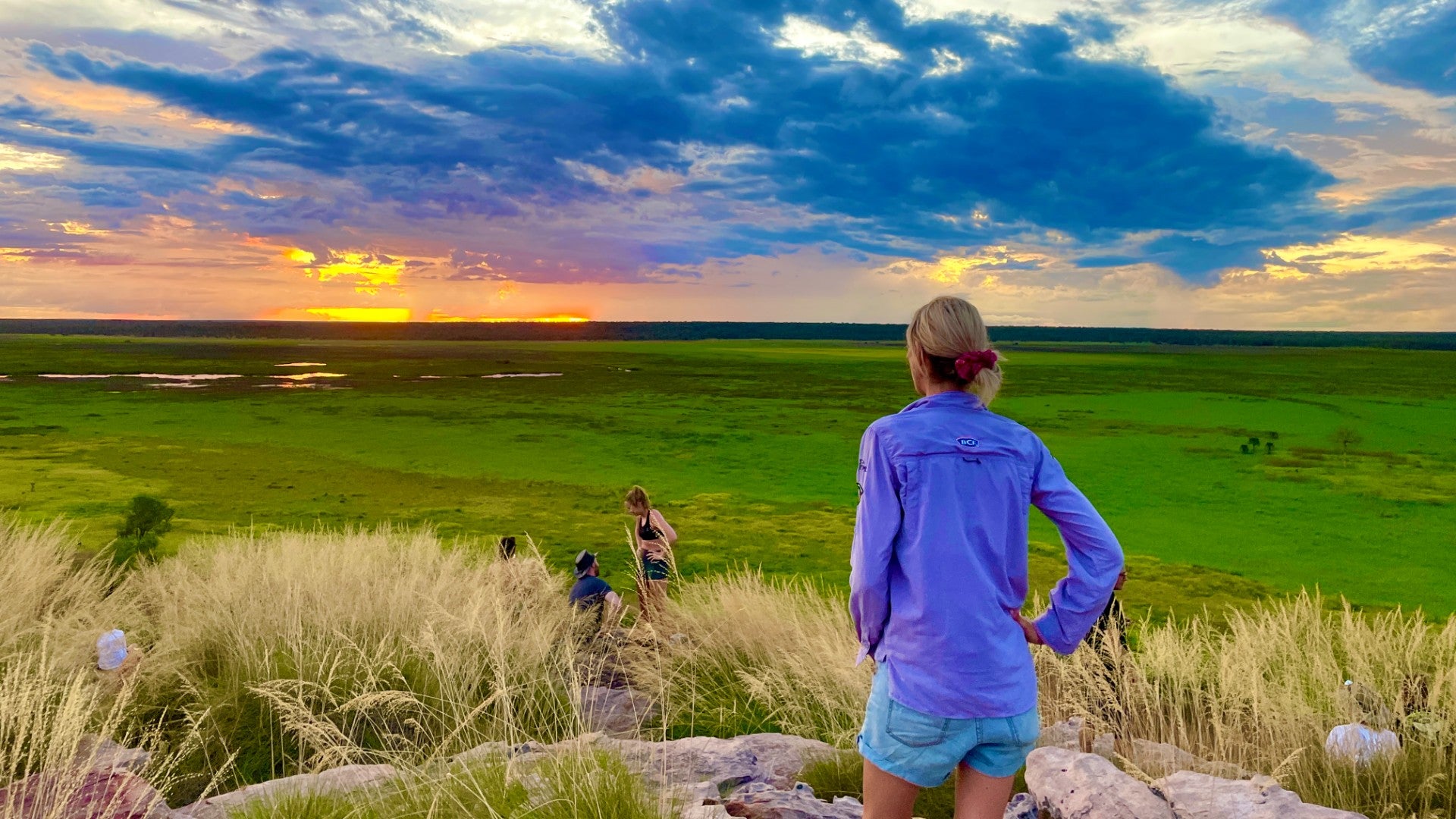
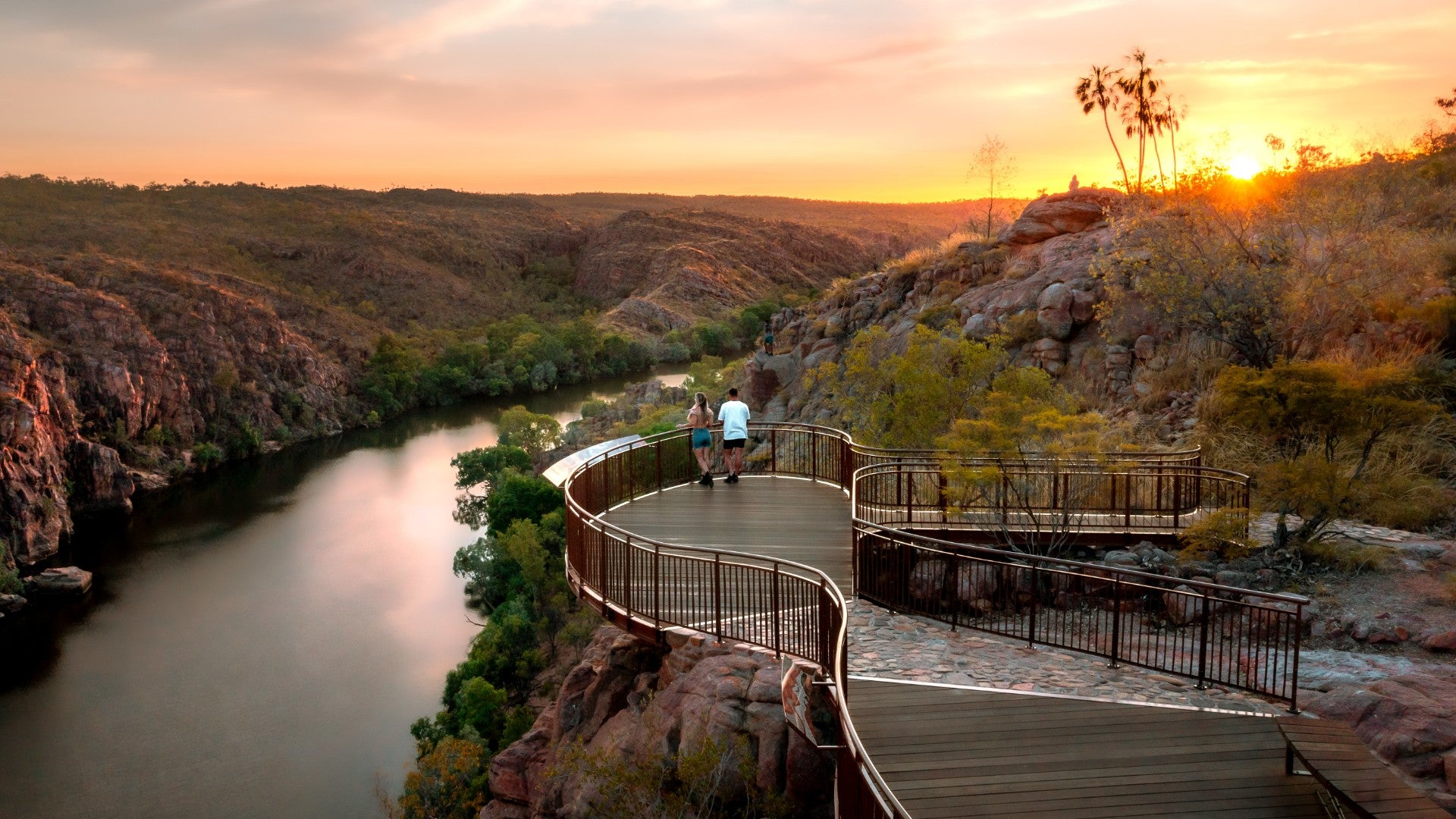
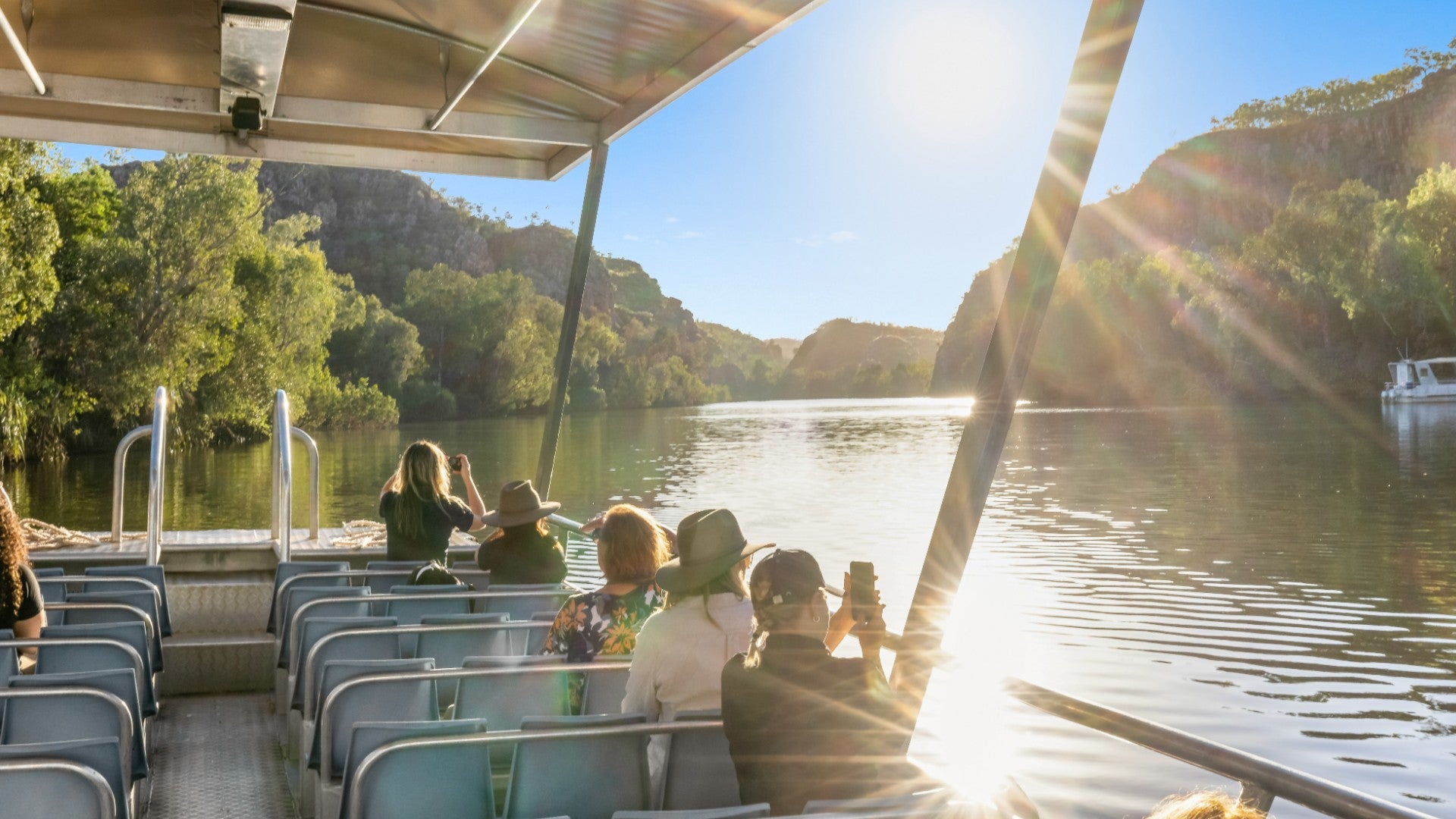
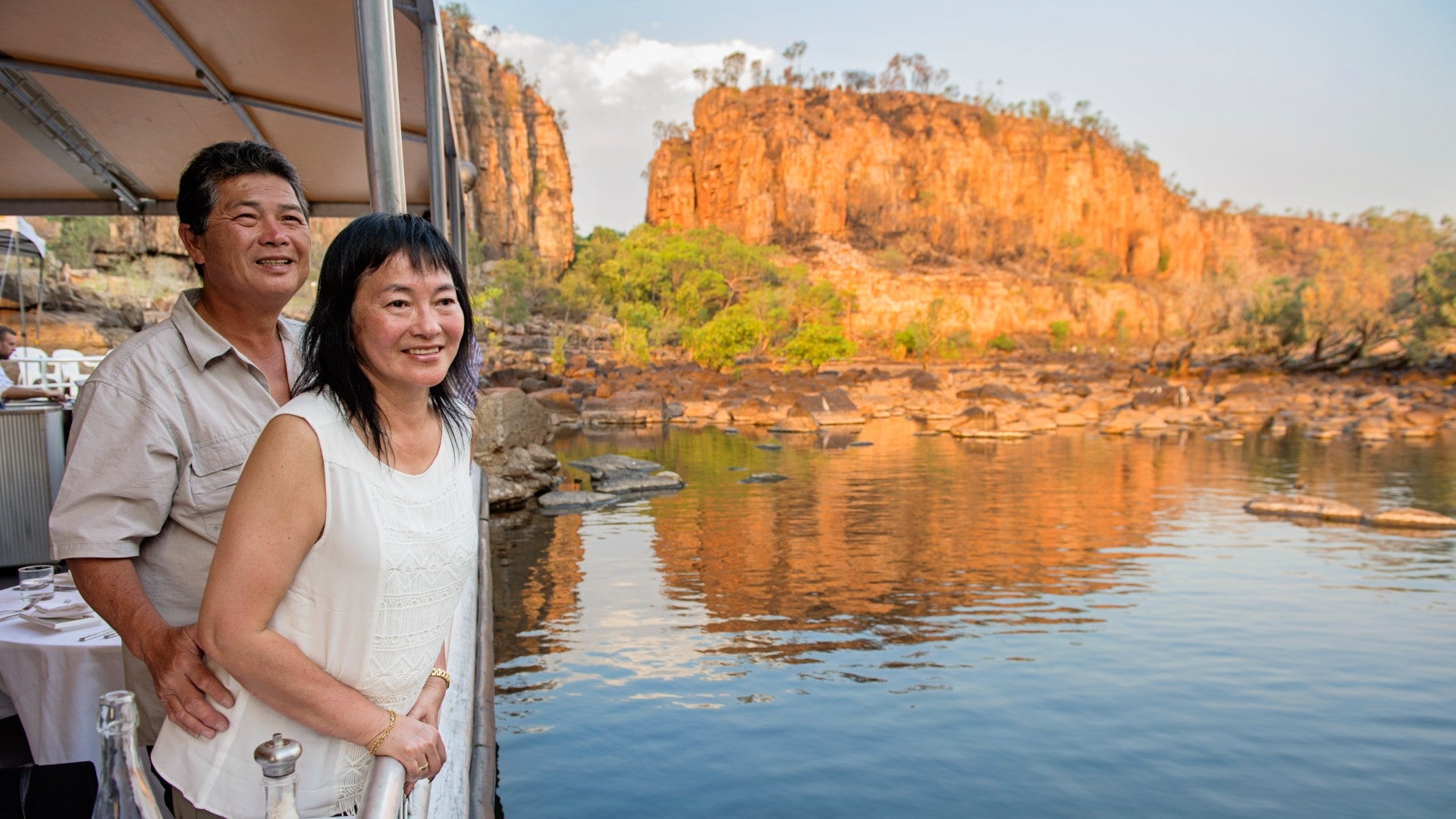
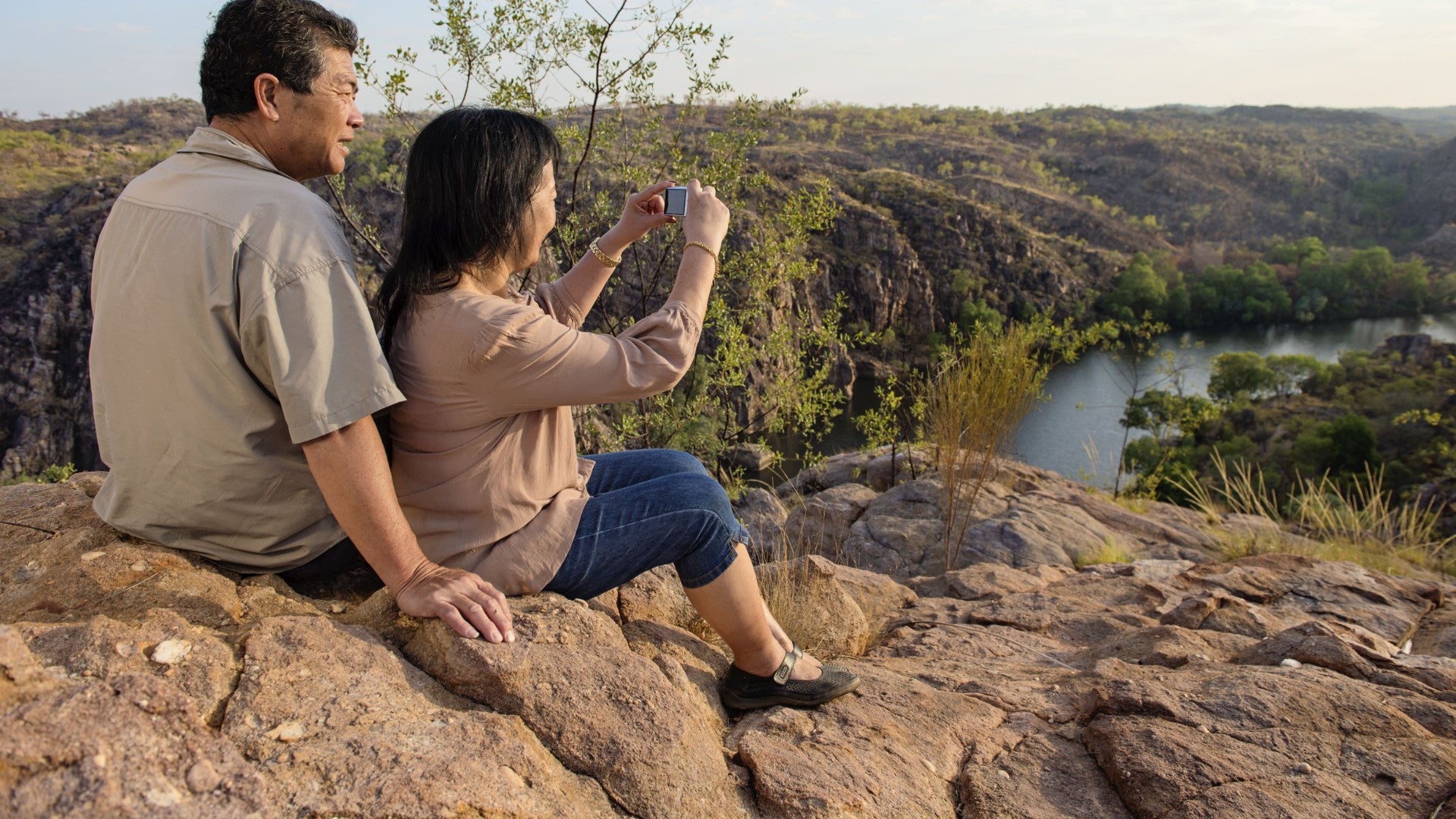
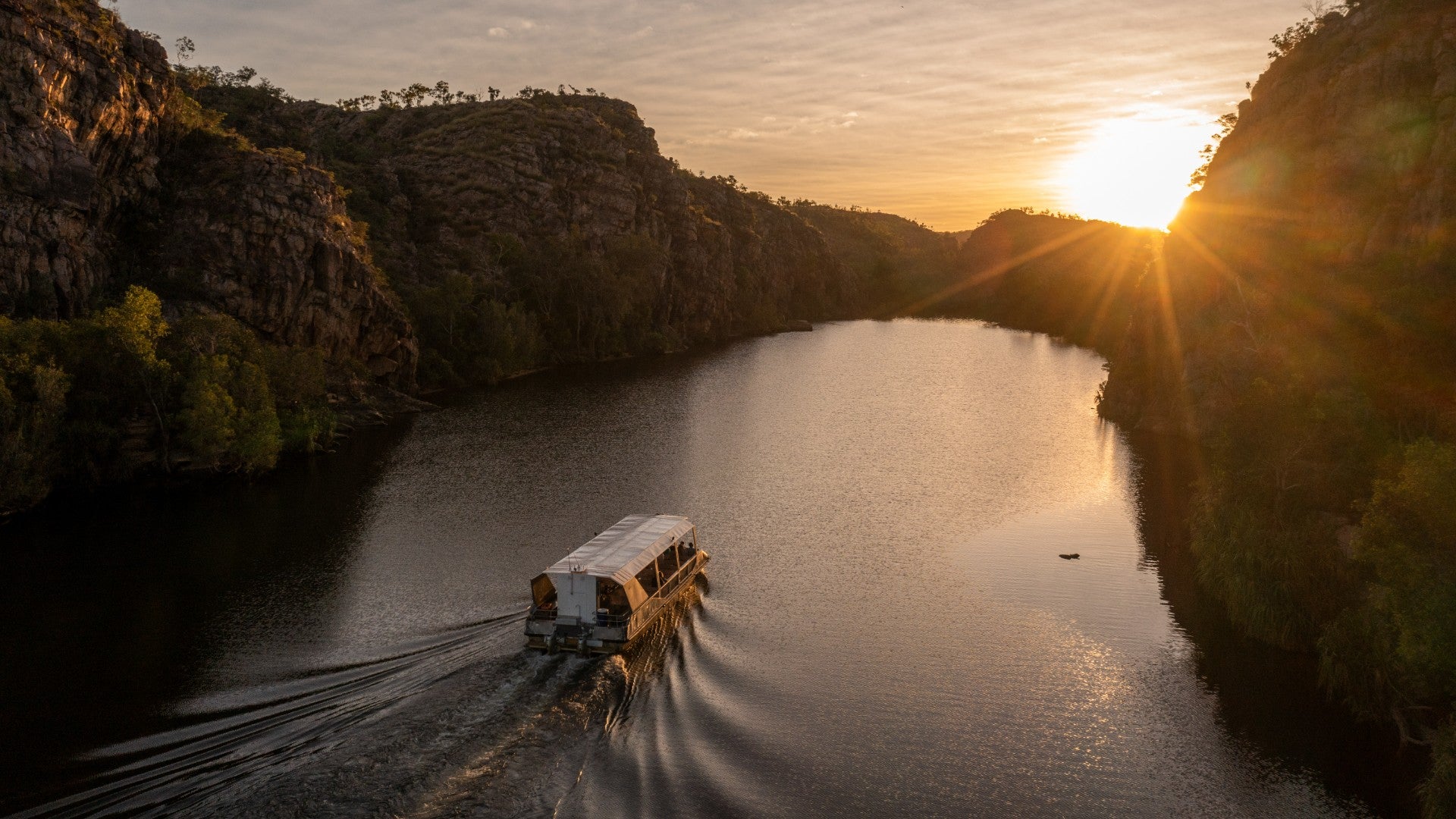
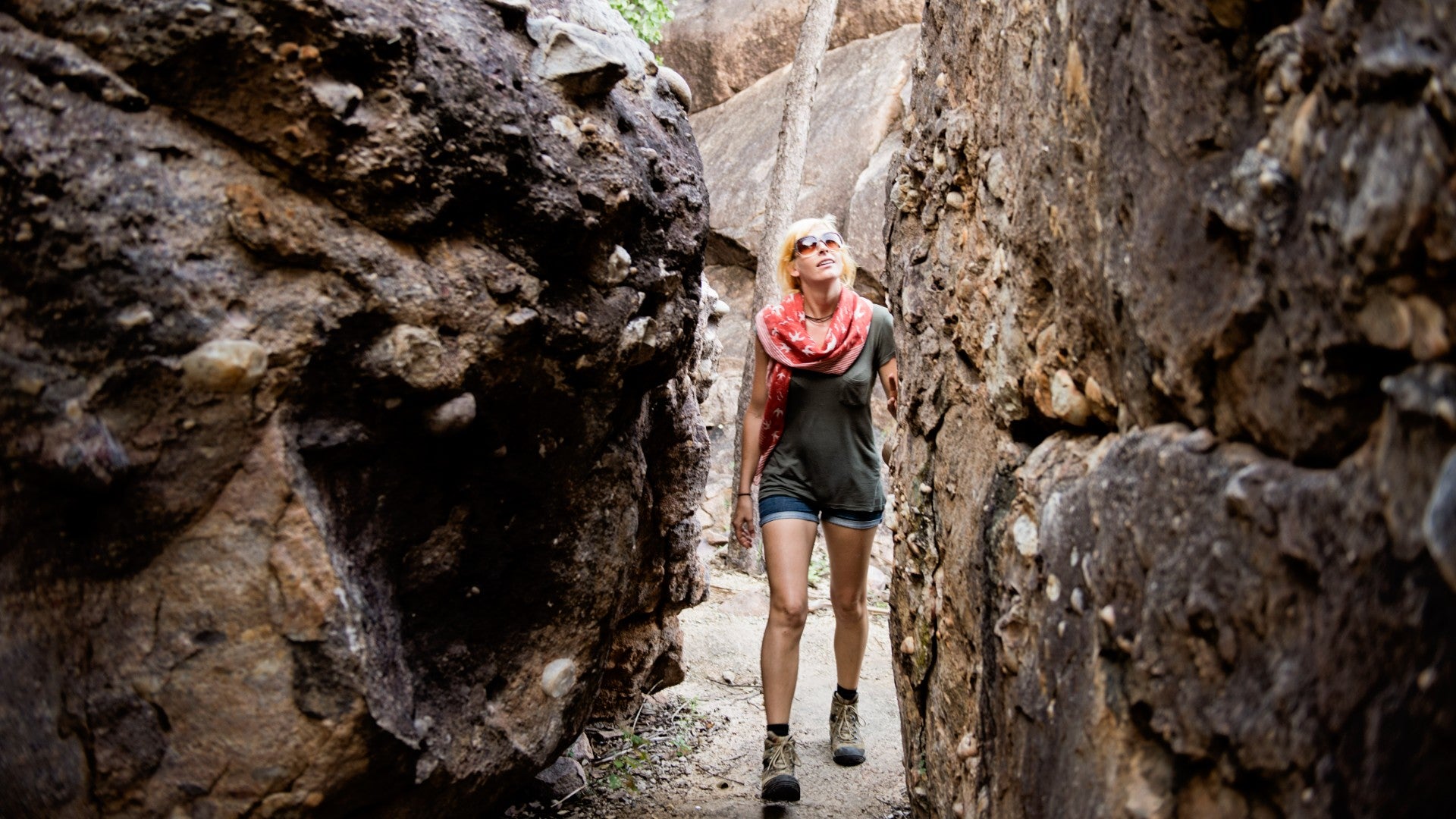
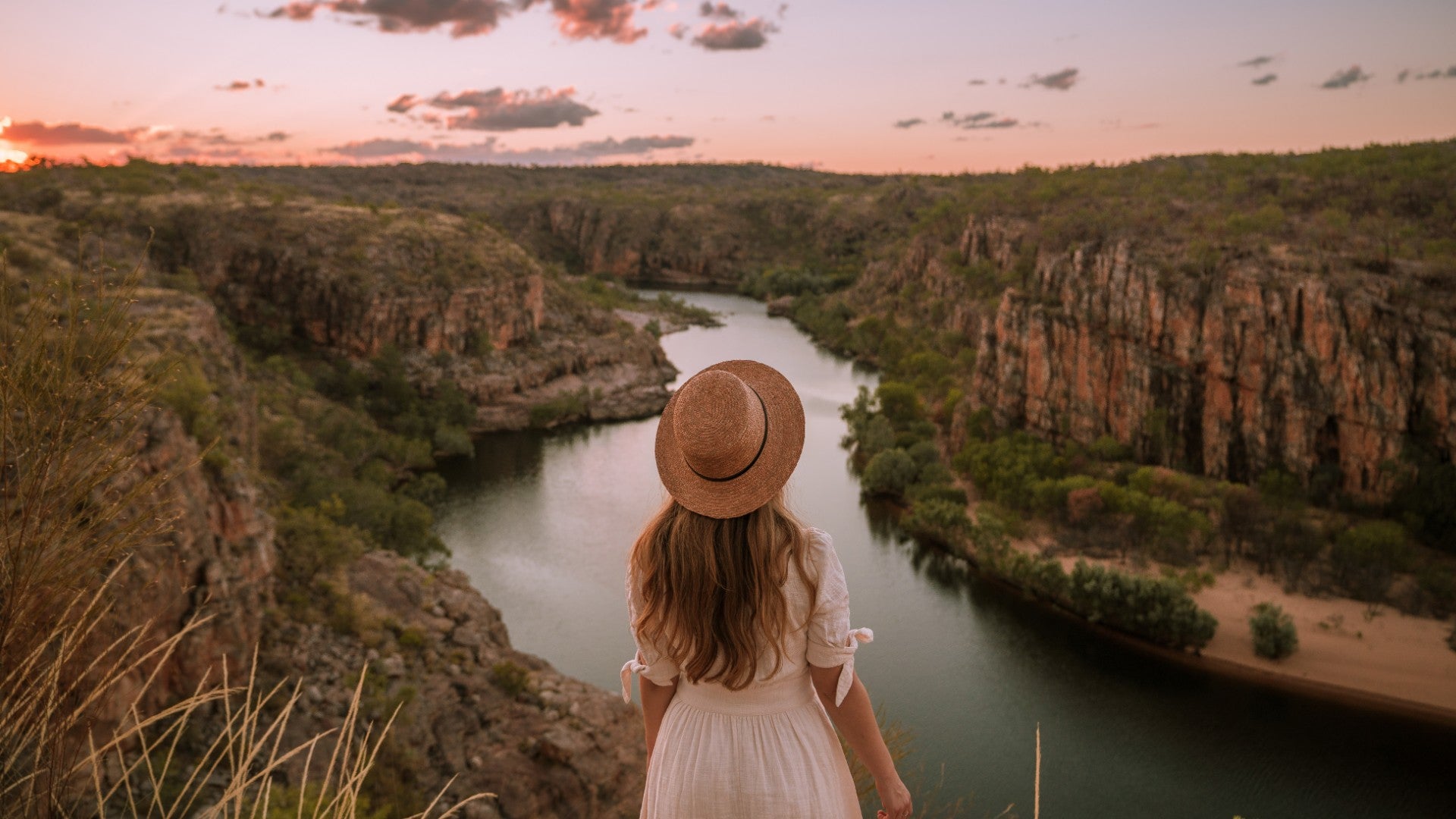
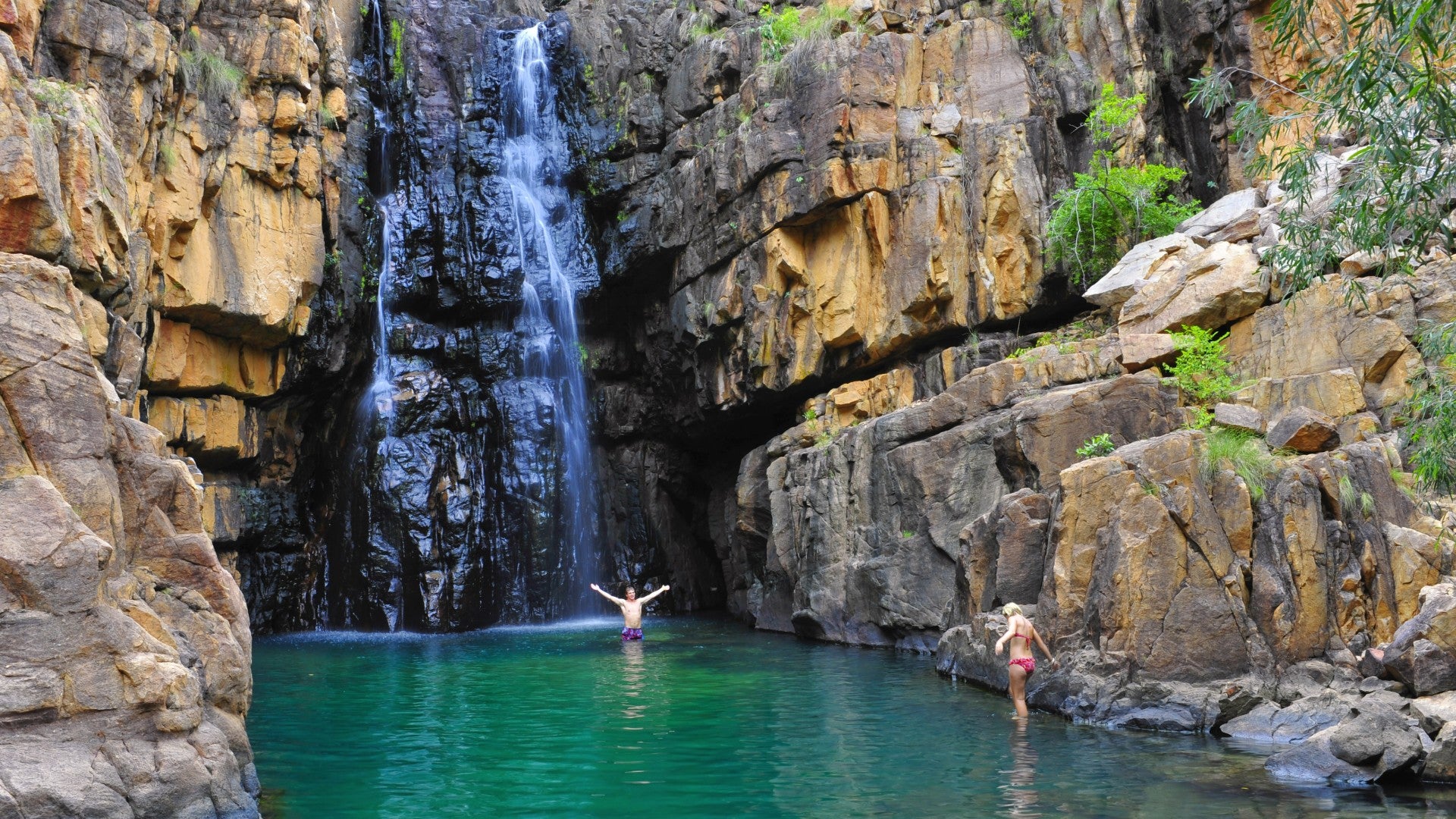
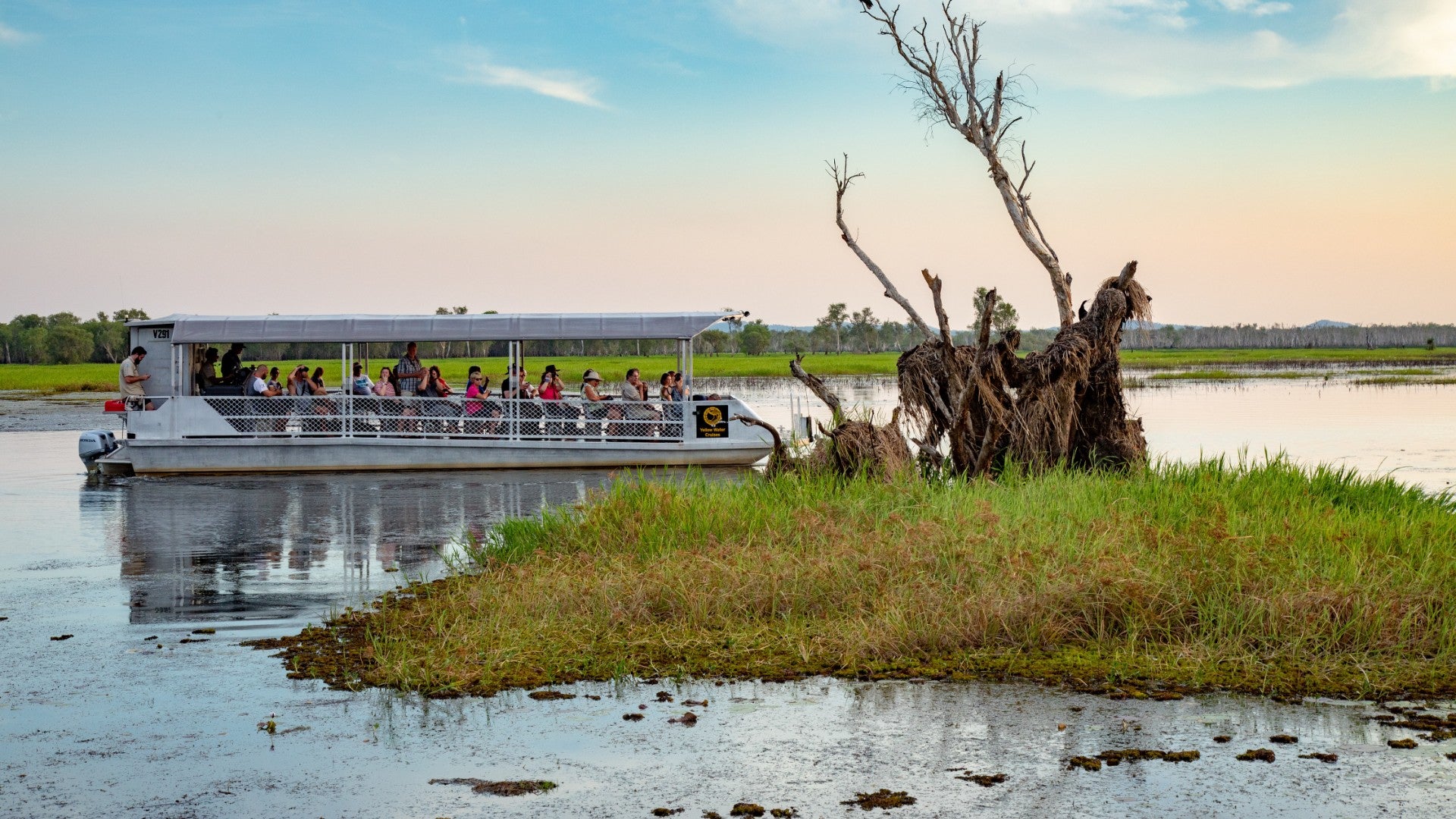
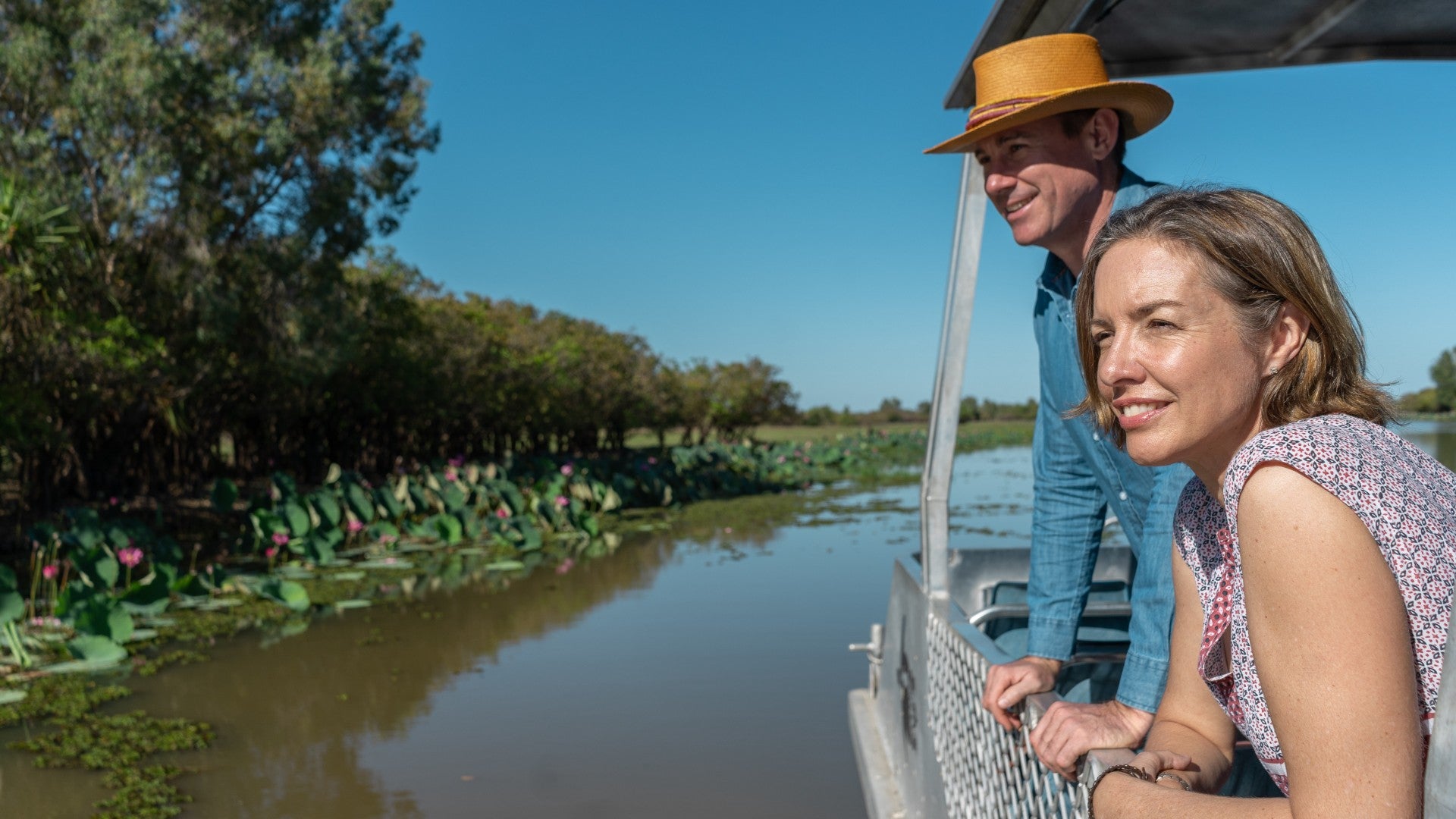
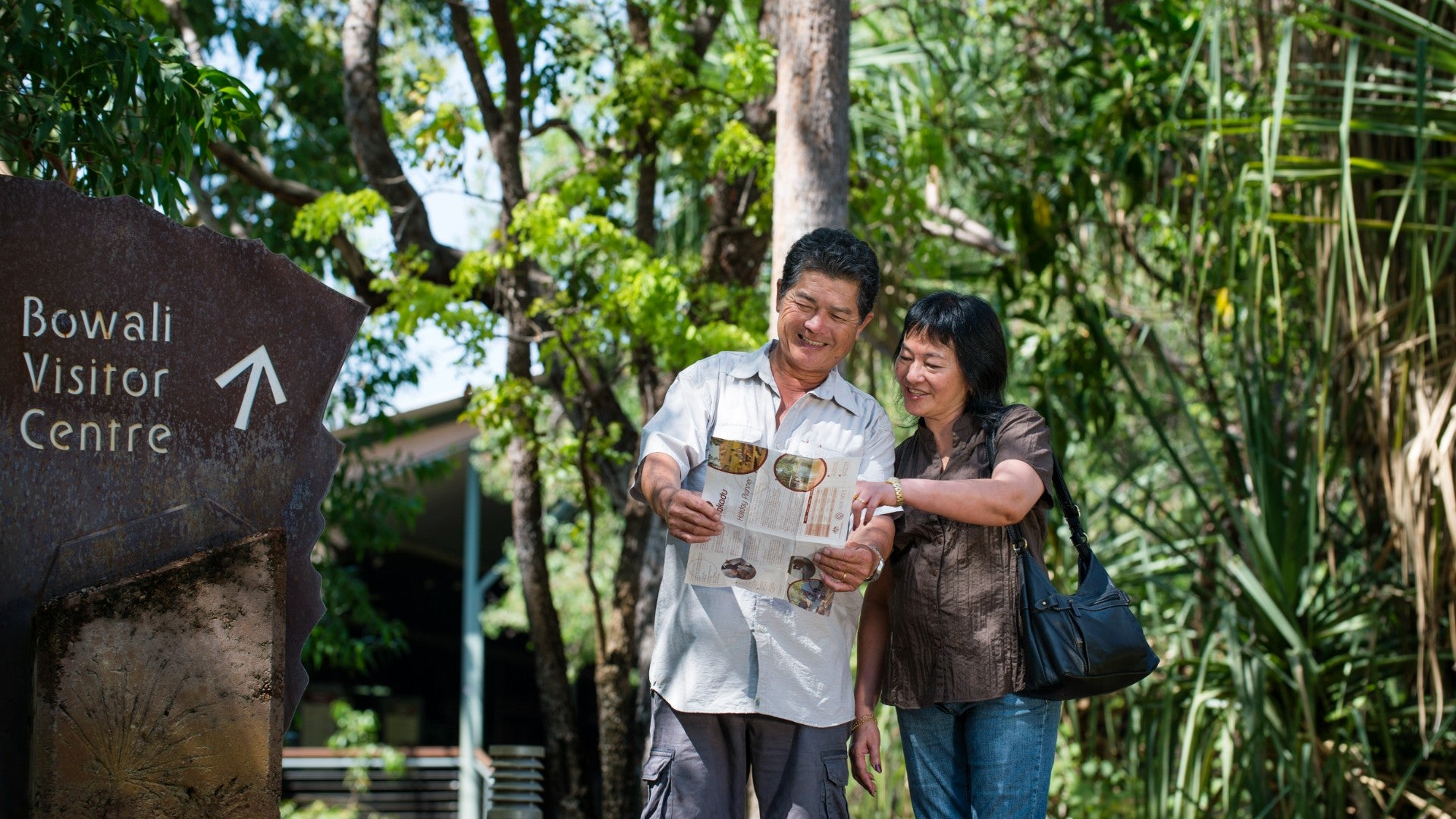
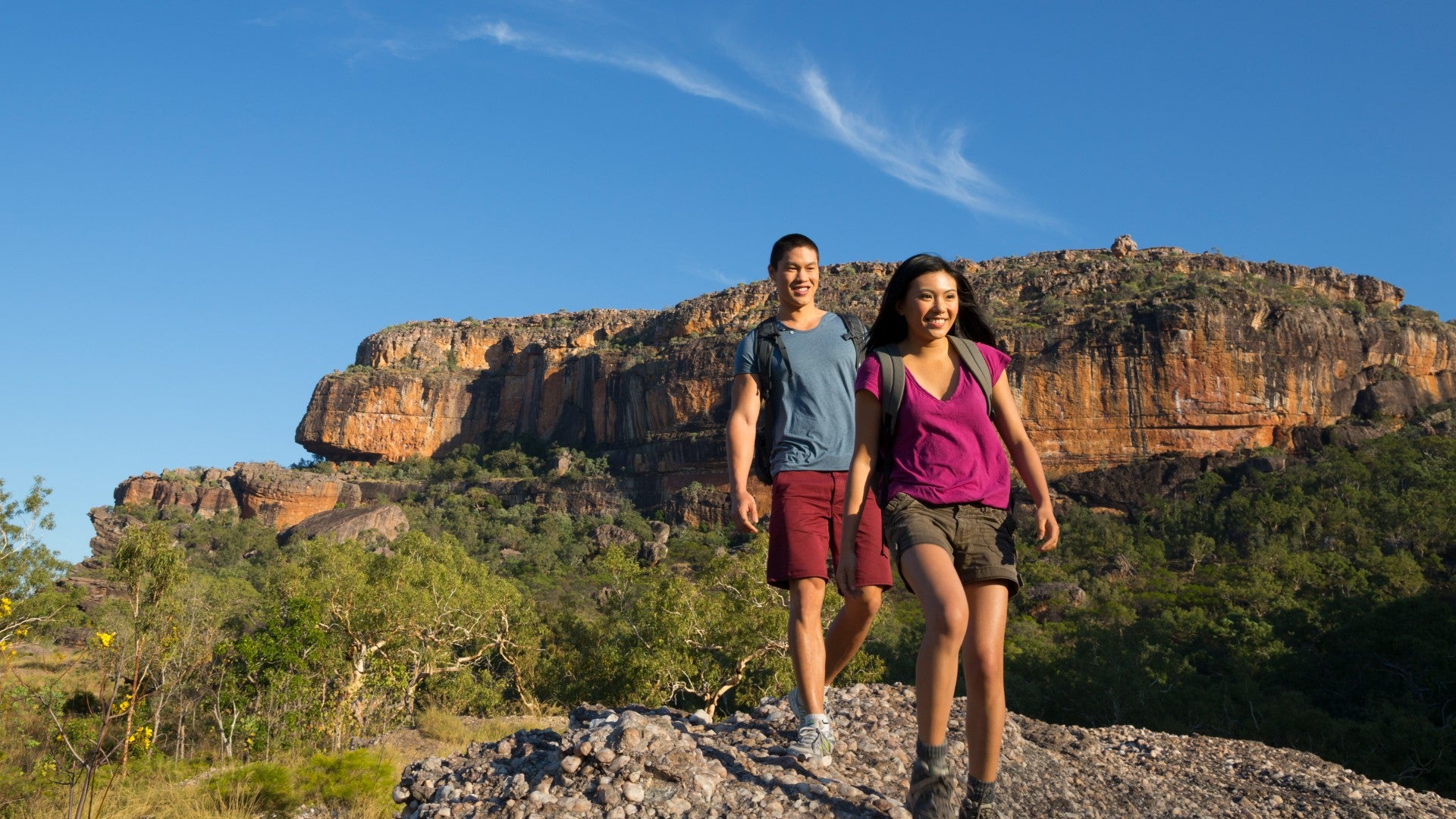
Tour Overview
Kakadu Highlights with Katherine Gorge | 4 Days in Comfort Stays
Kakadu’s ancient rock art and wide, wild wetlands meet Nitmiluk’s soaring sandstone on a 4-day small-group journey with comfort stays each night. Cruise the East Alligator with Indigenous guides, watch the sun slip over Ubirr, walk Burrungkuy (Nourlangie), drift through Katherine Gorge on the NitNit cruise, and cool off at Edith Falls. Seasonally flexible, culture-rich, and built for easy walking with time to breathe it all in.
Quick Facts
-
Duration: 4 days
-
Style: Small-group, accommodated (comfort)
-
Difficulty: Easy–Moderate (Grade 1–3 walks, up to ~3 km)
-
Start/Finish: Darwin → Kakadu → Katherine → Darwin
-
Transport: Air-conditioned mini-coach with accredited outback driver-guide
-
Stays: Mercure Kakadu Crocodile Hotel (Jabiru); Knotts Crossing Resort or Contour Hotel (Katherine), private ensuite rooms
Trip Highlights
-
Guluyambi Cultural Cruise on the East Alligator River (Kakadu/Arnhem Land border)
-
Ubirr rock art and an iconic Top End sunset
-
Guided art-site walks at Burrungkuy (Nourlangie) and Ubirr
-
NitNit Dreaming two-gorge cruise in Nitmiluk (Katherine Gorge)
-
Edith Falls (Leliyn) swim in a classic Top End plunge pool (conditions permitting)
-
Bowali Visitor Centre, Katherine Hot Springs, Top Didj Art Gallery & cultural time
-
Wildlife moments: crocs at Cahills Crossing, birdlife, wallabies (from safe viewpoints)
Seasonal Add-Ons (Optional)
-
Kakadu Air scenic flight (dry-season viewing)
-
Katherine Gorge scenic helicopter flight
(Optional experiences are subject to availability and paid locally.)
Good to Know
-
Operates Mondays, May–October.
-
Meals included across the tour: 3 breakfasts, 4 lunches, 3 dinners.
-
Itinerary adapts to weather, cultural ceremonies, and park access; falls often open late June onward.
-
Walking is on formed tracks; expect heat and humidity—carry water, hat, and sun protection.
-
Swimming only where ranger-advised; wildlife is wild—follow guide instructions at all times.
Book Twin Share
Book Private Twin
Book Private Single
Tour Itinerary
Day 1 | Darwin → Wetlands → East Alligator & Ubirr (Sunset)
Morning — Depart Darwin for the wetlands region known as WakWak, an hour from the city. Scan floodplains for birdlife and the Top End’s apex local, the crocodile. Continue into Kakadu National Park, settle into accommodation, then roll on to Bowali Visitor Centre for a primer on country, culture, and seasons.
Afternoon — Head to the East Alligator River on the Kakadu/Arnhem Land border for the Guluyambi Cultural Cruise. Hear creation stories from Indigenous guides, spot majestic birdlife, and (with luck) crocs from a safe distance.
Evening — Explore Ubirr rock art and climb to the stone lookout for a show-stopping Top End sunset. Dinner and overnight in Jabiru.
Meals: Lunch , Dinner
Walks: ~2 km loop, Grade 2–3
Driving: ~420 km
Stay: Mercure Kakadu Crocodile Hotel (ensuite: twin/double/single)
Day 2 | Burrungkuy (Nourlangie) Art Sites, Billabongs & Escarpment Views
Morning — A culture-rich day on foot through Burrungkuy (Nourlangie): Kunwarddewardde Lookout, Anbangbang Billabong, and Nawurlandja. Your guide weaves art, landscape, and lore together as escarpments, woodlands, and wetlands unfold.
Afternoon — Free time (typically 3:00–6:00 pm) to recharge, browse, or add an optional Kakadu Air scenic flight (dry-season viewing).
Evening — Return to Jabiru for dinner and a restful night.
Meals: Breakfast, Lunch, Dinner
Walks: ~3 km, Grade 2 (option to extend to Naguluwurr if conditions/season allow)
Driving: ~100 km
Stay: Mercure Kakadu Crocodile Hotel (ensuite)
Options: Kakadu Air Scenic Flight (subject to availability; additional cost)
Day 3 | Jabiru → Pine Creek Stories → Katherine & NitNit Dreaming Cruise
Morning — A relaxed start before heading southwest. Watch for Red-tailed Black Cockatoos, Agile Wallabies, brumbies, and buffalo as red-soil country slides by. Pause in Pine Creek for refreshments (yes, the homemade ice cream locals rave about) and stories of the Overland Telegraph and gold rush era.
Afternoon — Check in at Katherine, then enter Nitmiluk National Park for the NitNit Dreaming Two-Gorge Cruise. Drift between 70-metre sandstone walls, learn Jawoyn stories, and keep an eye out for wildlife in the shade.
Evening — Return to town for dinner and downtime.
Meals: B, L, D
Walks: ~1 km easy strolls
Driving: ~310 km
Stay: Katherine (Knotts Crossing Resort or Contour Hotel; ensuite)
Options: Katherine Gorge Scenic Helicopter Flight; free time typically 2:00–3:30 pm (subject to touring pace)
Day 4 | Katherine Hot Springs → Jawoyn Culture → Edith Falls → Darwin
Morning — Ease into the day with a swim at the Katherine Hot Springs. Then step into the Nitmiluk Cultural Centre for the immersive “Footsteps of our Ancestors” (approx. 2 hours): basket weaving, spear throwing, didgeridoo—hands-on activities explained by the Cultural Team (noting Men’s/Women’s Business where appropriate).
Midday — Lunch and gallery time at Top Didj Art Gallery.
Afternoon — Continue to Edith Falls (Leliyn) for a scenic Top End setting and a well-earned cool-off in the plunge pool beneath the falls (conditions permitting). Return to Darwin in the evening; drop-off at Mindil Markets available (make your own way onward) or at your accommodation.
Meals: B, L
Walks: ~1 km, Grade 1
Driving: ~350 km
Finish: Darwin (evening)
Important Notes
- This itinerary is seasonally adaptive and may change due to weather, cultural ceremonies, and park access. Falls are rarely open before late June. Your guide will optimise each day for safety, access, and the best experience.
- Swimming only where ranger-advised. Wildlife is wild—follow guide instructions at all times.
Key Tour Info
Food & Accommodation
Where You’ll Be Staying & What You’ll Be Eating
Stays — Comfort, Private Ensuite Rooms
- Nights 1–2: Jabiru — Mercure Kakadu Crocodile Hotel
Twin, double, or single rooms with private ensuite and air-conditioning. A comfortable base close to key Kakadu art sites and the Bowali Visitor Centre. - Night 3: Katherine — Knotts Crossing Resort or Contour Hotel
Twin, double, or single rooms with private ensuite. Allocation depends on touring date and availability; both are well-located for Nitmiluk (Katherine Gorge) and town services.
Meals — Included on Tour
- 3 × breakfasts — Hotel breakfasts to fuel early starts.
- 4 × lunches — Field or café lunches (often picnic-style in shaded spots between walks and cruises).
- 3 × dinners — Hearty evening meals at the hotel or local venues after a full day exploring.
What to Expect
- Early departures & siestas: Mornings are prime time for walking and wildlife; lunches are unhurried, with dinners back in town.
- Seasonal menus: Remote Top End touring means menus can vary with supply and weather—fresh, satisfying, and suited to the heat.
- Hydration: Carry a refillable bottle; there are regular water top-ups on the coach and at stops.
Notes: Rooming is on a twin share basis unless a single is selected. Specific properties and meal venues may vary slightly by date, conditions, and availability.
What's Included & What's Not
✅ What’s Included
Itinerary Activities
- Guluyambi Cultural Cruise on the East Alligator River (Kakadu/Arnhem Land border)
- Ubirr and Burrungkuy (Nourlangie) guided rock-art walks (conditions permitting)
- NitNit Dreaming two-gorge cruise in Nitmiluk (Katherine Gorge)
- Edith Falls (Leliyn) swim stop (seasonal, conditions permitting)
- Bowali Visitor Centre, Katherine Hot Springs, and Top Didj Art Gallery visit
Guides
- Accredited outback driver-guide (small-group touring) with cultural and natural history commentary
Accommodation
- 3 nights in comfort stays with private ensuite:Mercure Kakadu Crocodile Hotel (Jabiru) — 2 nightsKnotts Crossing Resort or Contour Hotel (Katherine) — 1 night
Meals
- 3 × breakfasts, 4 × lunches, 3 × dinners (touring days as per itinerary)
Transport
- Air-conditioned mini-coach small-group travel throughout
Equipment & Support
- Daily logistics, safety briefings, and walk guidance on graded tracks
Fees & Impact
- Kakadu National Park pass
- Guluyambi Cultural Cruise ticket
- NitNit Dreaming cruise ticket
- 200% CO₂ offset applied per guest (see CO₂ Footprint section for method overview)
🚫 What’s Not Included
- Flights to/from Darwin and pre/post-tour accommodation in Darwin
- Airport transfers and local transport outside scheduled tour movements
- Optional scenic flights (Kakadu Air; Katherine helicopter) and any optional activities not listed in “Included”
- Alcoholic drinks, barista coffee, and extra snacks outside stated meals
- Single supplement (if requesting your own room)
- Personal expenses & souvenirs
- Travel insurance (strongly recommended)
- Gratuities (optional)
Notes: Itinerary and inclusions may adjust due to weather, cultural ceremonies, and park access. Swimming occurs only where ranger-advised and when conditions allow.
Weather Expectations
Seasonal Weather Expectations — Kakadu, Katherine & the Top End
Big picture: The Top End runs on three broad seasons. Expect high UV year-round, heat that builds inland toward Katherine, and itineraries that adapt to access and safety.
Dry Season (May–Oct)
- Temps: 29–33 °C days, 12–22 °C nights (cooler nights around Katherine).
- Humidity: Low–moderate; clear skies, light breezes.
- Access: Best track and road access; waterfalls/swimming spots typically open from late June onward.
- Wildlife & visibility: Excellent for walks, lookouts, and cruises; smoke haze possible from cool burning.
Build-Up (Oct–Nov)
- Temps: 34–40 °C days, 22–27 °C nights; hottest part of the year, especially inland.
- Humidity: High; feels stormy and heavy.
- Access: Most dry-season sites still open, but heat management is key (early starts, shaded breaks).
- Storms: Increasing chance of afternoon cloud build and lightning (spectacular sunsets).
Wet Season/Monsoon (Dec–Apr) (this tour operates May–Oct)
- Temps: 31–35 °C days, 24–27 °C nights; very humid.
- Rain: Frequent downpours, tropical lows/cyclones possible; dramatic waterfalls.
- Access: Many unsealed roads and some sites close due to flooding; itineraries heavily rerouted.
On-Tour Realities
- Sun & UV: Extreme—wide-brim hat, long sleeves, sunglasses, SPF 50+, and frequent re-application.
- Heat: Guides prioritise early starts, shaded stops, and steady hydration (carry 2+ L per person).
- Insects: More active after rains and near wetlands—pack repellent.
- Swimming: Only where ranger-advised and conditions allow; sites can open/close at short notice.
- Flexibility: Seasonal weather and cultural events can change access; the guide will optimise each day.
Note: Waterfalls and some swim sites are rarely open before late June; late dry (Sep–Oct) brings hotter afternoons—pace is adjusted accordingly.
⭐ Reviews
Field Notes From Fellow Travelers
Verified Reviews from Past Tours
Our Kakadu trip on the 29/12/22 with our tour guide Lee was AWSOME & he is TOP BLOKE with plenty of knowledge & experience.
Would recommend Lee as a tour guide to everyone who wants to do a Darwin tour. Very funny guy too Thanks for the great wet tour Lee from Nikki & Danny ( Cairns ) read less
Nikki Field
Dec, 2022
Throughly recommend. Dani was our tour guide, assisted by Adrian, and she was absolutely brilliant.
Her knowledge and lived experience of the area brought everything to life. We felt very lucky to have Dani as our guide, as did others on the tour. Thank you!
Carol Lewer
April, 2025
I did the Kakadu and Litchfield tour and had an absolutely fantastic time. The National Parks and the spots that you visit are incredible and magical. Our guide was Andrea who was amazing!
She made sure that everybody had the best time and was happy to play paparazzi too. Andrea told the most amazing stories and was full of information about the landscape, the people, the wildlife and the flora - I’ve learned so much in such a short period of time.
Michelle Squire
May 2025
Fantastic tour to Kakadu. Rick our driver/guide was excellent and shared lots of information
Emma Davis
March , 2025
Our guide Dani gave us an excellent insight into origins and ecology of the park together with wonderful explanations of the rock art. She brought a lot to the experience.
Jennifer Sherwood
Mar, 2024
Great trip through Kakadu National Park, Katherine and Litchfield Park. Darrel was a superb guide.
Sebastian Arndt
March, 2025
What To Pack
What to Pack
Bags & Capacity
- Daypack (20–30 L) with space for water, hat, sunscreen, camera, and snacks.
- Soft overnight bag/carry-on–size duffel for clothing and toiletries (limited mini-coach space).
- Water capacity: carry 2–3 L per person (bottles or hydration bladder).
Clothing (Dry Season: May–Oct)
- 2–3 quick-dry shirts + 1 long-sleeve sun shirt (collared if possible).
- Lightweight long pants and 1 pair of shorts.
- Light warm layer (fleece or sweater) for cooler nights.
- Sleepwear and socks (breathable).
- Modest options for cultural centres and art sites.
Footwear
- Light hiking shoes or trail runners with grip.
- Sturdy sandals with a heel strap for water stops (optional).
- Flip-flops for the hotel.
Sun, Heat & Insects
- Wide-brim hat, UV-rated sunglasses, SPF 50+ (reapply often).
- Insect repellent (DEET or picaridin) + anti-itch cream.
- Electrolyte tablets/powders (one serve per activity block is a good rule of thumb).
- Neck buff/cooling cloth for hotter late-season days (Sep–Oct).
Swim & Wet Stuff
- Swimsuit and rash top for extra sun protection.
- Microfibre towel and 5–10 L dry bag for boat/wetland days.
- Note: Swimming only where ranger-advised and conditions allow.
Toiletries & Health
- Personal medications (bring enough for the full trip) + basic first aid (blister care, pain relief).
- Lip balm with SPF, moisturiser/after-sun.
- Hand sanitiser and tissues.
- If prone to motion sickness, a remedy for coach/boat travel.
Tech & Power
- Phone/camera, power bank, charging cables.
- Australia uses Type I plugs, 230–240 V.
Documents & Money
- Government-issued photo ID, travel insurance details, payment card, small cash for incidentals.
- Any pre-booked optional flight confirmations (if taking a scenic flight).
Optional Nice-to-Haves
- Head torch (evening wander to dinner or early starts).
- Compact rain jacket (build-up storms or breezy boats).
- Lightweight binoculars for birdlife.
- Small seat pad or sarong for picnics.
Leave or Avoid
- Bulky hard cases/esky-style coolers (coach space is limited).
- Drones without the appropriate permissions (parks and cultural areas have strict rules).
- Valuables you don’t need on tour.
Pack for heat, dress for respect, move like a breeze. Your guide will brief each day so you can bring exactly what you need—and nothing you don’t.
Local Insights
Local Insights — Kakadu & Katherine (Top End)
Country & Culture
- You’re visiting lands cared for by Bininj/Mungguy (Kakadu) and Jawoyn (Nitmiluk). Many art sites are living galleries—look, don’t touch, and follow signage about photography in culturally sensitive places.
- Cultural cruises and centre visits are not “shows”—they’re knowledge-sharing. Listen first, ask respectful questions, and avoid leaning on sites or rock surfaces.
Crocwise (Non-Negotiable)
- Assume every waterway has crocodiles unless a ranger sign clearly says it’s open for swimming.
- Stay well back from water edges, don’t linger on low banks, and never wade. No food scraps near water; keep packs zipped.
- At crossings (e.g., Cahills Crossing), view only from designated safe areas.
Seasonality & Access
- Dry season (May–Oct) brings clearer skies and better access; Edith Falls and some swim sites often open from late June.
- Tracks and sites can close without notice due to ceremony, fire, or conditions—your guide will pivot the plan to the best available options that day.
Heat & Hydration
- Expect high UV and hot afternoons, even in the dry. Carry 2–3 L water per person, reapply SPF 50+, and wear a wide-brim hat and light long sleeves.
- Walks are graded easy–moderate on formed tracks; pace is adjusted for heat.
Insects
- Mozzies and midges love wetlands and still evenings. Pack repellent (DEET/picaridin) and consider light long pants at dusk. Anti-itch cream earns hero status.
Connectivity & Cash
- Mobile reception is patchy outside towns; Telstra has the broadest coverage. Download playlists/podcasts ahead of time.
- ATMs/fuel/shops are available in Jabiru and Katherine; carry a small cash float for markets or remote stops.
Road Reality
- Highways to key sites are sealed; some park roads are unsealed and subject to closure. Your accredited driver handles conditions—sit back and enjoy the red-earth theatre.
Swimming Sense
- Only swim where ranger-advised and after the guide’s briefing. Rock platforms can be slick; use water shoes or sandals with a heel strap if you have them.
Photography Etiquette
- Dawn and late afternoon give the best light on escarpments; heat shimmer and smoke haze can add mood.
- Drones are heavily restricted in parks and culturally sensitive areas—assume no unless clearly permitted.
Markets & Moments
- Mindil Beach Sunset Market (dry season, select evenings) is a colourful finale—street food, crafts, and a sunset that goes full cinema.
Food & Water
- Tap water in towns/major facilities is generally safe to drink; do not drink from creeks/billabongs.
- Menus in the Top End track seasons and supply—expect fresh, simple, hearty over fancy.
Respect on Country
- Stay on formed paths at art sites; don’t point with a finger when discussing sacred imagery (open hand is more respectful).
- Leave rocks, shells, and artefacts where they are. Take only photos and a slightly smug grin.
Wildlife Reality Check
- Crocs, wallabies, cockatoos, and raptors are part of the backdrop—not performers. No guarantees of sightings, and always keep safe distances.
Packing Tweaks (beyond the basics)
- Electrolyte tabs, a neck buff/cooling cloth, and a 5–10 L dry bag for boat/wetland days.
- A head torch is handy for early/late starts; a power bank keeps cameras rolling between towns.
Accessibility & Fitness
- Most walks on this itinerary are short (~1–3 km) with steps/uneven surfaces at lookouts. If you manage a few km on formed trail in heat, you’ll be sweet.
Short version: stay crocwise, sun-smart, and curious. The Top End rewards travellers who move early, hydrate often, and tread with respect.
CO₂ Footprint Report
CO₂ Footprint
Topline Results (Summary)
- Estimated total per guest: ~1.97 t CO₂e
- Estimated total per tour: ~31.5 t CO₂e (assumes 16 guests, adjustable)
- Offset applied: 200% → ~3.94 t CO₂e offset per guest (≈ 63.0 t CO₂e per tour at 16 guests)
- Method note: High-estimate approach using DEFRA-aligned factors with well-to-tank (WTT) and radiative forcing (RF=1.9) for aviation; includes single-origin guest travel and all meals, plus boat day. +10% uncertainty uplift applied.
Key Tour Info
- Tour: Kakadu Highlights with Katherine Gorge — 4 days, comfort stays
- Route: Darwin ↔ Kakadu ↔ Katherine ↔ Darwin (loop)
- Season: May–Oct (dry-season operations)
- Group: Small-group, mini-coach
Scope & Boundaries
- Included:Guest travel to/from start using a single feeder hub (Sydney → Darwin → Sydney, economy).On-tour transport: mini-coach passenger-km.Accommodation: hotel stays (twin-share) via HCMI-style approach.Meals: all meals across the 4 tour days (12 total: included + off-tour).Activities: one boat/wildlife day (covered by East Alligator + NitNit cruises).+10% uncertainty uplift on subtotal.
- Excluded: Staff travel, embedded emissions in vehicles/equipment/buildings, guest shopping/souvenirs, personal add-ons not listed (e.g., optional scenic flights—see Sensitivities).
Emission Factors & Conservative Defaults (summary)
- Aviation (economy): high estimate with WTT + RF=1.9, distance-based.
- Mini-coach: higher passenger-km factor for small vehicles.
- Hotels: mid-scale electricity + services per room-night, apportioned per guest for twin-share.
- Meals: conservative per-meal factor (omnivorous default).
- Boats: diesel craft, per passenger-hour.
Activity Data (per guest)
- Flights: Sydney ↔ Darwin round-trip ≈ 6,290 km
- Coach: ≈ 1,180 km passenger-km over 4 days
- Hotels: 3 nights (twin-share)
- Meals: 12 (3 per day across 4 days; tour includes 10, +2 off-tour assumed)
- Boats: ~3.5 hours total (Guluyambi + NitNit)
Results — Per Guest (estimated)
- Flights: ~1,572.5 kg CO₂e
- On-tour coach: ~118.0 kg CO₂e
- Hotels (3 nights, twin-share): ~52.5 kg CO₂e
- Meals (12): ~36.0 kg CO₂e
- Boats (~3.5 h): ~10.5 kg CO₂e
- Subtotal: ~1,789.5 kg CO₂e
- +10% uncertainty uplift: ~178.9 kg CO₂e
- Estimated total per guest: ~1,968 kg CO₂e (~1.97 t CO₂e)
Results — Per Tour (example)
- Assumption: 16 guests
- Estimated tour total: ~31.5 t CO₂e
- Offset at 200%: ~63.0 t CO₂e
(Adjust totals linearly for different group sizes or a different origin city.)
Assumptions & Sensitivities
- Feeder hub: Sydney (NSW). Choosing Perth lowers flight emissions; Brisbane/Melbourne are similar to Sydney; international origins can be substantially higher.
- Rooming: Calculated on twin-share. Single supplement roughly doubles hotel emissions per night for that guest.
- Diet: Generic omnivore factor used. Lower-impact meal choices reduce totals.
- Optional scenic flights: Not included. If taken, add ~0.10–0.15 t CO₂e per 30-min helicopter per person (guide-level estimate).
- Access & routing: Park access changes can alter distances slightly; the +10% uplift is intended to cover typical variance.
Method (in brief)
- Define scope → guest return travel to start/end + all on-tour components (transport, hotels, meals, boat day).
- Quantify activity data → distances, nights, counts, durations from the itinerary and route.
- Apply high-estimate factors → DEFRA-aligned; aviation includes WTT and RF=1.9; conservative defaults for mini-coach, hotels, meals, boats.
- Add uncertainty → +10% to cover seasonal routing, load factors, weather/access changes.
- Report clearly → per guest and per tour, then apply the 200% offset commitment.
If you’d like, I can swap the feeder hub to Perth, Melbourne, Brisbane, or Singapore and recalc the headline numbers—your call, trailblazer.
Helpful Travel Tools
Save time planning with our helpful travel tools

Optimum Travel Time Heat-Map
Explore the best times of the year to visit your dream destinations so you get minimum crowds and maximum experience
Use Heat-Map
Point A - B Travel Time Estimator
Get an idea of just how long you can expect to travel from home to your dream destination including multiple travel modes
Use Time EstimatorCo2 Calculator
Do your own travel impact calculations using our multiple Co2 calculators.
Measure Your Co2Tour FAQ's
Where does the tour start and finish?
Starts/finishes in Darwin. Pick-up is from designated Darwin CBD locations on Day 1 (morning); return is evening of Day 4. Final timings and pick-up points appear on your booking voucher.
How hard is the walking?
Rated Easy–Moderate. Expect short, graded walks (≈1–3 km) on formed tracks with some steps/rocky sections, often in heat. If you can comfortably walk a few kilometres with a daypack, you’re set.
Can dietary needs be catered for?
Common requirements (vegetarian, vegan, gluten-free, dairy-free) are usually accommodated with advance notice. Add your diet in the booking notes so the operator can plan.
More FAQ's
Where will I sleep?
Comfortable ensuite hotel rooms: 2 nights Jabiru (Mercure Kakadu Crocodile Hotel) and 1 night Katherine (Knotts Crossing Resort or Contour Hotel). Rooming is twin share unless a single is selected.
Is there a single supplement? Can solo travellers join?
Yes—single rooms are available (supplement applies). Solo travellers are welcome; if booking twin share, you may be paired with a same-gender traveller where possible.
Are flights included?
No. Flights to/from Darwin and pre/post-tour accommodation are not included.
Are the scenic flights included?
No—optional Kakadu/Katherine scenic flights are at additional cost and subject to availability/conditions. Your guide can help with timing if you pre-arrange.
Can I swim? What about crocodiles?
Swimming is only at ranger-advised locations (e.g., Edith Falls when open). Always follow your guide’s instructions and stay well back from water edges elsewhere—Top End rule #1: be crocwise.
When are waterfalls and swim spots open?
Access is seasonal. Many popular sites don’t open until late June in a typical dry season. Openings/closures can change at short notice due to conditions or cultural reasons.
How hot does it get?
Dry season days ~29–33 °C (cooler nights), building hotter into Sep/Oct. High UV year-round. Bring a wide-brim hat, long-sleeve sun shirt, 2–3 L water capacity, electrolytes, and sunscreen.
Is the itinerary guaranteed?
It’s a plan, not a promise. Weather, park access, cultural ceremonies, and safety can require changes. The guide will optimise the day to deliver the best experience available.
How much time is on the road?
Approx. 1,180 km total over 4 days. Daily ranges: ~420 km, 100 km, 310 km, 350 km with scenic stops, walks, and cruise time woven in.
What should I pack?
Think light and breathable. Daypack, 2–3 L water, hat, SPF 50+, insect repellent, light hiking shoes, swimwear/rash top, microfibre towel, and a warm layer for cooler nights. (See What to Pack section for the full list.)
Is there luggage space on the mini-coach?
Yes, but limited. Bring a soft overnight bag/carry-on–size duffel plus a daypack rather than hard cases.
Is this suitable for children?
This is an adult-focused small-group trip with heat, steps, and long drives. Minimum ages and child policies depend on the operator—see the booking page for specifics.
Accessibility considerations?
Short walks include uneven surfaces and steps; vehicle access involves standard coach steps. If mobility is limited, please advise before booking to confirm suitability and options.
Do I need cash? Is there phone coverage?
ATMs and shops are in Jabiru and Katherine. Outside towns, coverage is patchy (Telstra is best). Carry a small cash float for markets/snacks.
Is a park pass included?
Yes—Kakadu National Park pass and tickets for the Guluyambi Cultural Cruise and NitNit Dreaming cruise are included.
Travel insurance—required or optional?
Strongly recommended for medical, cancellation, and weather-related disruptions.
What’s the group size and vehicle?
Small-group mini-coach with an accredited outback driver-guide. Group size varies by date; enough to be social, small enough to stay nimble.
How does the 200% CO₂ offset work?
A high-estimate per-guest emissions figure (including return travel to Darwin from a single origin hub, on-tour transport, hotels, meals, and a boat day) is calculated; then 200% of that amount is offset. See the CO₂ Footprint section for the method summary.
Can I be dropped at Mindil Markets at the end?
Yes—on market days, a drop-off option is usually offered. Continue home at your own pace from there, or ride through to your accommodation.
- 0 – 2t | Low
- 2 – 4t | Moderate
- 4 – 6t | High
- 6 – 8t | Very High
- 8t+ | Extreme
(T = tonnes CO₂e)
Still Searching? Check these out…
BOOKING & PAYMENT FAQ's
What’s the deposit & payment process?

Choose Tour

Pick Dates

Reserve Spot

Sort Logistics

Adventure Time!
Here’s how it works—clean, simple, no surprises:
A) "Book with Deposit"
- Place a deposit. You’ll pay the deposit at checkout.
- Tell us the details. You’ll receive an email asking for your tour name/date, passenger details, and any special requests (room type, extras, dietaries, etc.).
- We secure your spots. If everything’s clear, we confirm your booking by email so you can lock flights and plan the rest.
- If we need anything (e.g., room configuration, add-on activities), we’ll ask—then issue confirmation once sorted.
- Final balance invoice. After confirmation, you’ll be invoiced the remainder in line with the trips booking terms & conditions (each trip/partner has its own timeline but full payment is generally required at least 30 days prior to departure).
- If we are unable to confirm your spot: you’ll receive a full refund of your deposit. Zero stress.
B) Instant confirmation route (selected trips)
- Some departures use live operator booking calendars. These can deliver instant confirmation inside the operator’s system.
- If you book this way, the operator’s terms & conditions apply immediately (including payment schedules and change/cancellation rules).
Good to know
- Each trip may have slightly different deadlines and deposit rules—You can find the terms and conditions for your chosen booking on the listing page.
- You can still flag special requests after deposit—earlier is better for availability.
What’s your cancellation & refund policy?
Before your booking is confirmed
- If we can’t confirm your spots after you’ve paid a deposit, we’ll issue a full refund of that deposit.
After your booking is confirmed
- Cancellations follow the operator’s cancellation schedule (varies by trip and how close you are to departure).
- Expect possible fees or non-refundable items (e.g., internal flights, permits, certain accommodations).
- If a refund or credit is due, we’ll process it once the operator releases the funds and pass it back to your original payment method.
Instant-confirmation bookings (live operator calendars)
- The operator’s T&Cs apply immediately on these. Some departures are non-refundable or have stricter windows.
How to cancel
- Email us your booking reference, names on the booking, and a one-line request (“Please cancel”).
- We’ll reply with the exact penalties/refund or credit per your operator before proceeding.
If the operator cancels or significantly changes your trip
- You’ll be offered an alternative date, a travel credit, or a refund according to that operator’s policy. We’ll advocate for the best outcome for you.
Good to know
- Refunds are returned to the original payment method; bank/FX fees aren’t usually recoverable.
- Travel insurance is your friend for recovering non-refundable costs.
- The earlier you contact us, the better your options typically are.
Can I change dates or transfer my booking?
Short answer: Usually yes, but it depends on the operator’s rules and how close you are to departure.
Date changes
- We’ll check new-date availability with the operator.
- If a change is possible, you’ll pay any applicable operator change fee plus any price difference for the new date.
- The closer to departure, the tighter (and costlier) changes become; some trips treat late changes as a cancel + rebook under the operator’s policy.
Transfer to another person (name change)
- Many operators allow a name change/transfer up to a certain cut-off.
- Fees and deadlines vary by operator and services booked (e.g., flights may be non-transferable).
Instant-confirmation bookings
- If you booked via a live operator calendar, the operator’s T&Cs apply immediately. Some departures are non-changeable or have stricter windows.
How to request a change
- Email us with your booking reference, preferred new date/person’s details, and any flexibility.
- We’ll confirm options, fees, and any price differences before making changes.
Pro tips
- Ask early—more seats = more options, lower fees.
- Consider travel insurance that covers change/cancellation costs.
- Always check booking terms and conditions, links displayed on each tour page under the overview.
Are you accredited / is my money protected?
Yes. Your money is protected by our own accreditation and safeguards, plus the protections of our tour partners and the payment methods we use.
Our business safeguards
- Legally registered business with documented booking & refund policies.
- Commercial insurance appropriate to our operations.
- VTIC Quality Tourism Accreditation (Quality Tourism Accredited Business) confirming we meet industry standards for customer service, safety, and risk management.
Operator-level protection
- We partner only with established operators who maintain their own financial protections and clear refund/credit policies.
- When you book via a live operator calendar, payment is processed directly by the operator and their protections/terms apply immediately.
How your payment is handled
- All card payments run through a secure, PCI-compliant gateway; we don’t store your full card details.
- If you book through a live operator calendar, payment is processed directly into the operator’s system, and their terms & protections apply immediately.
Your legal rights
- Your purchase is also covered by consumer laws in your country/state (fair trading/refund rights). We reference the applicable jurisdiction on your paperwork.
Extra peace of mind
- Paying by credit card may add chargeback protection from your card issuer.
- We strongly recommend travel insurance to cover situations outside operator/consumer protections (your own cancellation, medical, delays).
Do you offer price matching?
Absolutely. Our prices update live from the operator, but if you spot the same tour on the same dates with the same inclusions and terms advertised for less — even in a public sale or promo — we’ll match it.
Already booked? We’ll refund the difference to your original payment method (eligibility applies, based on the final checkout price including taxes/fees from an authorised seller). And yes, the matched price still includes our 200% carbon offset — no dilution of benefits.
Do I need travel insurance?
Not for every trip—but for most travellers, we strongly recommend it
Some itineraries and partner operators do require insurance (especially remote treks, glacier walks, or bookings made via live operator calendars with mandatory cover).
When it’s required
- Certain partners/departures make insurance compulsory and may ask for proof before departure. If you book one of these, their T&Cs apply immediately.
What good cover includes
- Medical treatment & emergency evacuation/repatriation (high limits).
- Trip cancellation/interruption (protects your deposit and balance if plans change).
- Baggage & travel delay, and supplier default where available.
- Coverage for all activities on your itinerary (e.g., trekking, glacier hikes, kayaking) and any relevant altitudes/conditions.
- 24/7 assistance hotline and a clear claims process.
When to buy
- At booking. That way, cancellation benefits start immediately and you’re covered if something crops up before you travel.
How to share proof
- Email us your policy certificate (names, policy number, assistance phone).
- If you booked via an instant-confirmation operator calendar, follow their proof instructions and deadlines exactly.
Are departures guaranteed?
Most departures run as planned, but guarantees depend on the operator and minimum numbers. If there’s a wobble, we’ll tell you fast and give you options.
How it works
- Minimum group size: Most partners need a minimum number of travellers to confirm a trip.
- When we confirm: Each operator has a confirmation window (often 30–60 days before departure). We monitor load and update you as status changes.
- Any listing from "G-Adventures" will be guaranteed to run with a booking
If a trip is under-subscribed
- We’ll contact you with clear options:
Move to another date (same tour)
Switch to a comparable trip
Full refund of monies paid (per the operator’s terms)
- Any price differences for new dates/trips will be discussed before you decide.
If a trip is suspended (weather, park closures, strikes, force majeure)
- First, we’ll look to re-route or adjust (e.g., alternative park, similar activities).
- If that’s not viable, you can move dates, choose a different trip, or receive a refund/credit according to the operator’s policy.
Our promise
- Proactive comms: We’ll keep you posted as soon as we know more—no last-minute surprises if we can help it.
- No pressure choices: You pick the outcome; we handle the admin.
- Flight advice: Until your tour is confirmed, book flexible/refundable flights or add insurance that covers schedule changes.




